Submitted:
09 June 2024
Posted:
13 June 2024
You are already at the latest version
Abstract
Keywords:
1. Introduction
2. Non-Relativistic Self-Gravitating Systems
3. Relativistic Gravity Coupled to Point Particles
- The stress-energy of the particles generates spacetime curvature in as simple a manner as possible.
- The curvature of spacetime guides the motion of each particle in accord with the equivalence principle, in the absence of any extraneous forces.
- The dynamics of the system is self-consistent.
4. Canonical Formalism for Particle Dynamics
4.1. Neutral Particles
4.2. Charged Particles
5. The 2-Body Problem
5.1. Solution for 2 Charged Particles
5.2. Test Particle Limit
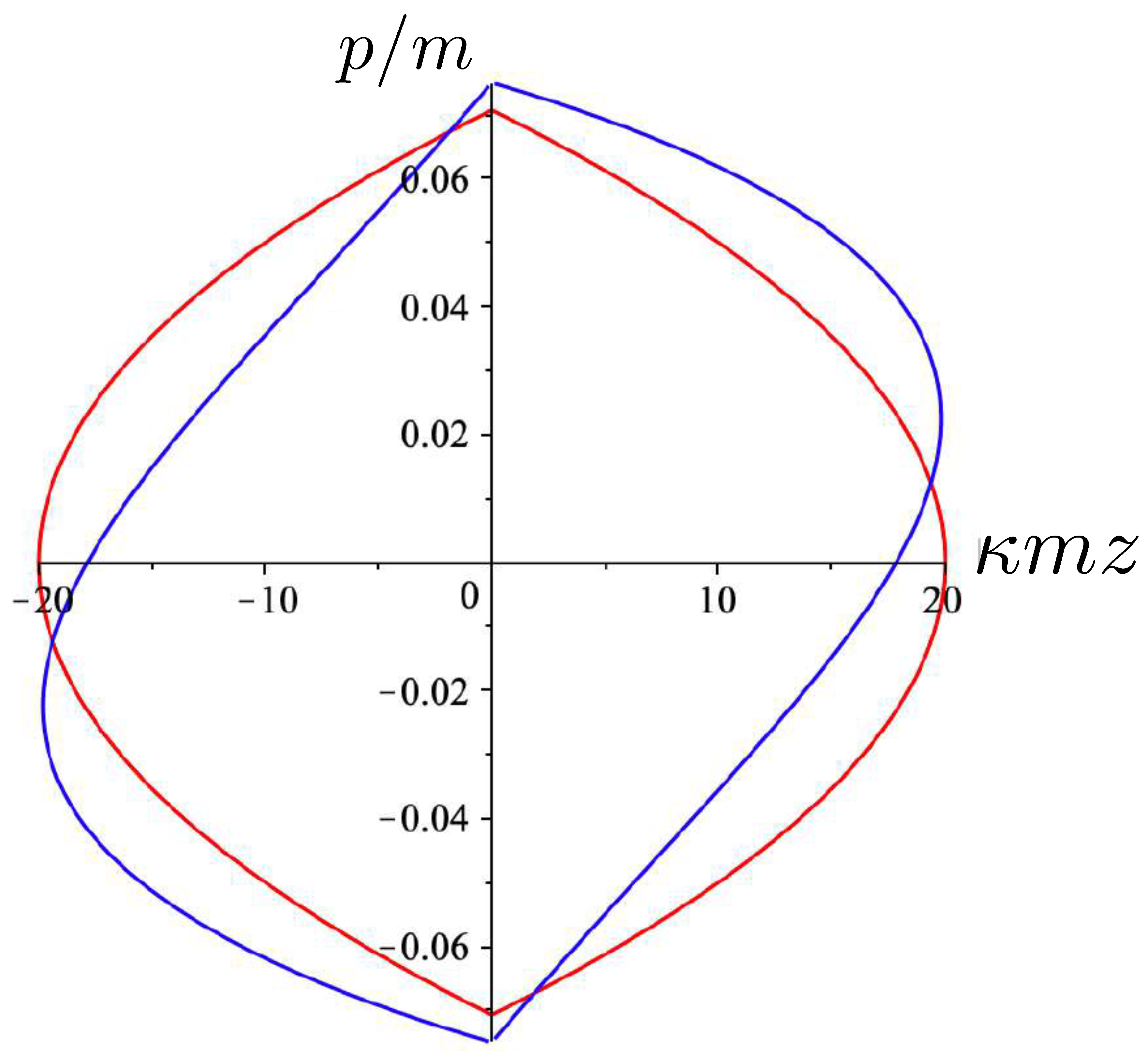
5.3. Exact Equal Mass Two-Body Motion for
5.4. Exact Two-Body Motion with Equal Masses and Arbitrary Charges
5.4.1. Neutral Particle Motion
- As , where is finite. In this case the particle never becomes lightlike.
- As , . In this case the particle becomes lightlike, but this happens in an infinite amount of proper time (and coordinate time). The standard example is , the constant acceleration example.
- The function as , where is finite. In this case the particle asymptotes to a lightlike trajectory in a finite amount of proper time, but an infinite amount of coordinate time; an example is . The acceleration increases as a function of proper time, diverging at . This last situation is realized by the exact solutions (123) with .
5.4.2. Charged Particle Motion with
5.4.2.1 The attractive case:
- the non-relativistic motion described by the Hamiltonian
- the linear approximation in , whose Hamiltonian is
- the limit, which is special-relativistic electrodynamics in (1+1)-dimensional flat space-time ; its Hamiltonian is
5.4.2.2 The repulsive case: ,
5.4.2.3 The repulsive case: ,
5.4.3. Charged Particle Motion with
5.5. Exact Two-Body Motion with Unequal Masses
5.6. Static Balance
6. The 3-Body Problem
6.1. 3-Body Constraint Equations
6.2. Effective Potential
6.3. Relativistic Equal Mass 3-Body Trajectories
6.3.1. General Features of the Motion
6.3.2. Annulus Orbits
6.3.3. Pretzel Orbits
6.3.4. Chaotic Orbits
6.4. Poincaré Plots
6.5. Unequal Masses
6.5.1. Trajectories
6.5.2. Poincaré Plots
6.6. Charge and Cosmological Constant
6.6.1. Neutral Configurations with
6.6.2. Charged Configurations
7. The 4-Body Problem
7.1. 4-Body Potential
7.2. Motion Classification
7.3. Equal Mass Trajectories
7.4. Poincaré Plots
8. The N-Body Problem
8.1. Motion Classification
8.2. Post-Newtonian Canonical Ensemble
8.3. Other Statistical Features
9. The Circular N-Body Problem
10. Conclusions
-
Relativistic Chaos at High EnergyAll studies of relativistic 3-body chaos have been at energies below the cross-sectional maximum of the potential in (177). The regions of chaos in the R system are distortions of their N system counterparts, but do not increase. It would be of great interest to know what the chaotic behaviour is for energies larger than the cross-sectional maximum, where very strong relativistic effects are present. Will the chaotic regions in the Poincaré plots grow or shrink? Such studies would provide further insight into the effects of strong gravity on chaotic systems.
-
4-body ChaosThe largest value of N in the N-body problem for which equipotential surfaces can be visualized is . As noted in Section 7, only the N system has been investigated for its motions and chaotic behaviour. The R system has yet to be investigated along these lines. It is conceivable that qualitatively new features will be observed in this case.
-
Fully relativistic Statistical MechanicsThe scope for exploration here is very broad. Only the statistical properties of the neutral pN system have been studied. The effects of charge and cosmological expansion are not known, and a full study of the statistical properties of the R system remain to be carried out. This latter problem will be quite technically challenging, since the distributions functions cannot be analytically integrated. Some novel blend of analytic and numerical methods will need to be employed.
-
Circular N-body DynamicsA novel feature of the N-body ROGS is that it admits two distinct spatial topologies: linear and circular. In the latter case there are no dynamical solutions for . These will likely need to be found numerically. It would be particularly interesting to investigate 3-body chaos in this setting to see what effects circular topology has on chaotic phenomena.
-
The 2-dimensional N-body problemSince there is no gravitational radiation in 2 spatial dimensions the N-body problem in this setting is of considerable interest, all the more so since general relativity will provide the foundation for the field equations. This problem has been considered from a topological perspective [133], from which an implicit solution for the metric and the motion of N particles was obtained [134]. The solution becomes explicit for . However the relationship between this approach and the canonical approach has only been explored to a limited extent [135,136]. A thorough analysis should be carried out, particularly since particle collisions can form black holes [137] and quite possibly lead to other interesting spacetime effects.
-
Extensions to Dilaton GravityThe theory (10) has provided the context for exploring the relativistic N-body problem since it is the limit of general relativity [27]. However a broad class of 2-dimensional theories of gravity exist [71] and are of physical interest for a variety of reasons. Exploring the N-body problem in this broader context could lead to new physical insights into chaos, relativity, and quantum gravity.
-
The Quantum N-body ProblemThe Hamiltonian (76) is the exact energy functional of all degrees of freedom in the relativistic charged 2-body system. Consequently its quantization will be tantamount to fully quantization of gravity coupled to charged matter in one spatial dimension. The N system can be fully quantized, with energy eigenfunctions given in terms of Airy functions, and the associated eigenvalues in terms of their zeroes. Perturbative solutions to the quantum pN system have been obtained [138], but a full analysis of the quantum R system has yet to be carried out. This problem is of considerable interest, since there is experimental evidence that the energy states of neutrons are given by the eigenstates of the N system [139], confirming the test-mass limit of the quantum N-system. A better understanding of the quantum R-system could conceivably lead to experimental tests of relativistic quantum gravity.
Funding
Data Availability Statement
Acknowledgments
Conflicts of Interest
Abbreviations
| OGS | One-dimensional Self Gravitating System |
| ROGS | Relativistic One-dimensional Self Gravitating System |
| N system | Non-relativistic System |
| pN system | post-Newtonian System |
| R system | Relativistic System |
References
- Barrow-Green, J. The Princeton Companion to Mathematics; Princeton University Press, 2010; p. 726––728. [CrossRef]
- Šuvakov, M.; Dmitrašinović, V. Three Classes of Newtonian Three-Body Planar Periodic Orbits. Phys. Rev. Lett. 2013, 110, 114301. arXiv:1303.0181. [CrossRef]
- Lehtihet, H.; Miller, B. Numerical study of a billiard in a gravitational field. Physica D: Nonlinear Phenomena 1986, 21, 93–104. [CrossRef]
- Rybicki, G.B. EXACT STATISTICAL MECHANICS OF A ONE-DIMENSIONAL SELF-GRAVITATING SYSTEM. Astrophys. Space Sci. 14: No. 1, 56-72(Nov 1971). [CrossRef]
- Yawn, K.R.; Miller, B.N. Equipartition and Mass Segregation in a One-Dimensional Self-Gravitating System. Phys. Rev. Lett. 1997, 79, 3561–3564. [CrossRef]
- Wright, H.L.; Miller, B.N.; Stein, W.E. The Relaxation Time of a One-Dimensional Self-Gravitating System. Astrophys. Space Sci. 1982, 84, 421–429. [CrossRef]
- Rouet, J.; Feix, M.; Navet, M. One-dimensional numerical simulation and homogeneity of the expanding universe. Vistas in Astronomy 1990, 33, 357–370. [CrossRef]
- Shiozawa, Y.; Miller, B.N. Cosmology in one dimension: A two-component model. Chaos Solitons Fractals 2016, 91, 86–91. arXiv:1506.06777. [CrossRef]
- Oort, J.H. The force exerted by the stellar system in the direction perpendicular to the galactic plane and some related problems. Bull. Astron. Institutes Neth. 1932, 6, 249.
- Hénon, M. Intial Collapse and Dynamical Mixing of a Spherical Cluster. Liege International Astrophysical Colloquia, 1967, Vol. 15, Liege International Astrophysical Colloquia, p. 243.
- Valageas, P. Thermodynamics and dynamics of a 1d gravitational system. Astron. Astrophys. 2006, 450, 445, [astro-ph/0601390]. [CrossRef]
- Koyama, H.; Konishi, T. Emergence of power - law correlation in 1-dimensional self - gravitating system. Phys. Lett. A 2001, 279, 226–230, [astro-ph/0008208]. [CrossRef]
- Whelan, N.D.; Goodings, D.A.; Cannizzo, J.K. Two balls in one dimension with gravity. Phys. Rev. A 1990, 42, 742–754. [CrossRef]
- Bukta, D.; Karl, G.; Nickel, B.G. The linear baryon. Canadian Journal of Physics 2000, 78, 449, [arXiv:nlin.CD/chao-dyn/9910026]. arXiv:1506.06777. [CrossRef]
- Valageas, P. Relaxation of a 1D gravitational system. Phys. Rev. E 2006, 74, 016606, [astro-ph/0604263]. [CrossRef]
- Anderson, K.; Villet, C. Computational Study of the Dynamics of an Asymmetric Wedge Billiard. International Journal of Bifurcation and Chaos 2021, 31, 2130006. [CrossRef]
- Wojtkowski, M.P. A system of one-dimensional balls with gravity. Communications in Mathematical Physics 1990, 126, 507 – 533. [CrossRef]
- Miller, B.N.; Youngkins, V.P. Dynamics of a pair of spherical gravitating shells. Chaos: An Interdisciplinary Journal of Nonlinear Science 1997, 7, 187–197, [https://pubs.aip.org/aip/cha/article-pdf/7/1/187/18301044/187_1_online.pdf]. [CrossRef]
- Gabrielli, A.; Joyce, M.; Sicard, F. One-dimensional gravity in infinite point distributions. Phys. Rev. E 2009, 80, 041108. arXiv:0812.4249. [CrossRef]
- Gabrielli, A.; Joyce, M. Gravitational force in an infinite one-dimensional Poisson distribution. Phys. Rev. E 2010, 81, 021102. arXiv:0909.5034. [CrossRef]
- Manfredi, G.; Rouet, J.L.; Miller, B.; Shiozawa, Y. Cosmology in One Dimension: Vlasov Dynamics. Phys. Rev. E 2016, 93, 042211. arXiv:1505.06948. [CrossRef]
- Teitelboim, C. Gravitation and Hamiltonian Structure in Two Space-Time Dimensions. Phys. Lett. B 1983, 126, 41–45. [CrossRef]
- Jackiw, R. Lower Dimensional Gravity. Nucl. Phys. B 1985, 252, 343–356. [CrossRef]
- Brown, J.D.; Henneaux, M.; Teitelboim, C. Black Holes in Two Space-time Dimensions. Phys. Rev. D 1986, 33, 319–323. [CrossRef]
- Penington, G.; Shenker, S.H.; Stanford, D.; Yang, Z. Replica wormholes and the black hole interior. JHEP 2022, 03, 205. arXiv:1911.11977. [CrossRef]
- Harvey, J.A.; Strominger, A. Quantum aspects of black holes. Spring School on String Theory and Quantum Gravity (To be followed by Workshop on String Theory 8-10 Apr), 1993, pp. 175–223, [hep-th/9209055].
- Mann, R.B.; Ross, S.F. The D —> 2 limit of general relativity. Class. Quant. Grav. 1993, 10, 1405–1408, [gr-qc/9208004]. [CrossRef]
- Burnell, F.J.; Mann, R.B.; Ohta, T. Chaos in a relativistic three-body selfgravitating system. Phys. Rev. Lett. 2003, 90, 134101, [gr-qc/0208044]. [CrossRef]
- Burnell, F.J.; Malecki, J.J.; Mann, R.B.; Ohta, T. Chaos in an exact relativistic three-body selfgravitating system. Phys. Rev. E 2004, 69, 016214, [gr-qc/0301099]. [CrossRef]
- Weinberg, S. Gravitation and Cosmology: Principles and Applications of the General Theory of Relativity; John Wiley and Sons: New York, 1972.
- Mann, R.B.; Shiekh, A.; Tarasov, L. Classical and Quantum Properties of Two-dimensional Black Holes. Nucl. Phys. B 1990, 341, 134–154. [CrossRef]
- Mann, R.B. Lower dimensional black holes. Gen. Rel. Grav. 1992, 24, 433–449. [CrossRef]
- Mann, R.B. Lowest dimensional gravity. 4th Canadian Conference on General Relativity and Relativistic Astrophysics, 1991.
- Sikkema, A.E.; Mann, R.B. Gravitation and Cosmology in Two-dimensions. Class. Quant. Grav. 1991, 8, 219–236. [CrossRef]
- Mann, R.B.; Steele, T.G. Thermodynamics and quantum aspects of black holes in (1+1)-dimensions. Class. Quant. Grav. 1992, 9, 475–492. [CrossRef]
- Mann, R.B.; Morsink, S.M.; Sikkema, A.E.; Steele, T.G. Semiclassical gravity in (1+1)-dimensions. Phys. Rev. D 1991, 43, 3948–3957. [CrossRef]
- Lemos, J.P.S.; Sa, P.M. Nonsingular constant curvature two-dimensional black hole. Mod. Phys. Lett. A 1994, 9, 771–774, [gr-qc/9309023]. [CrossRef]
- Lemos, J.P.S.; Sa, P.M. The Two-dimensional analog of general relativity. Class. Quant. Grav. 1994, 11, L11–L14, [gr-qc/9310041]. [CrossRef]
- Verbin, Y. Lower dimensional gravity. Phys. Rev. D 1994, 50, 7318–7322. [CrossRef]
- Stoetzel, B. Two-dimensional gravitation and Sine-Gordon solitons. Phys. Rev. D 1995, 52, 2192–2201, [gr-qc/9501033]. [CrossRef]
- Creighton, J.D.E.; Mann, R.B. Quasilocal thermodynamics of two-dimensional black holes. Phys. Rev. D 1996, 54, 7476–7482. [CrossRef]
- Ivanov, B.V. Electrically induced gravity in two-dimensions. Phys. Lett. A 1996, 210, 255–257. [CrossRef]
- Landsberg, P.T.; Mann, R.B. Thermodynamic classifications and dilatonic black holes. Gen. Rel. Grav. 1997, 29, 1269–1281. [CrossRef]
- Yan, J.; Qiu, X.M. Sinh-Gordon matter field and a solvable model in two-dimensional gravity. Gen. Rel. Grav. 1998, 30, 1319–1329. [CrossRef]
- Moayedi, S.K.; Darabi, F. Families of exact solutions of a 2-D gravity model minimally coupled to electrodynamics. J. Math. Phys. 2001, 42, 1229–1235, [gr-qc/0012062]. [CrossRef]
- Yan, J.; Wang, S.J.; Tao, B.Y. A solvable model in two-dimensional gravity coupled to a nonlinear matter field. Commun. Theor. Phys. 2001, 35, 19–21.
- Alves, M.; Barcelos-Neto, J.; Novello, M.; Salim, J.M. Time dependent cosmological constant in the Jackiw-Teitelboim cosmology. EPL 2003, 61, 715–720, [hep-th/0207239]. [CrossRef]
- Djama, T. 2D(1+1) quantum gravity: Gravitational quantum stationary Hamilton-Jacobi equation 2004. [hep-th/0406255].
- Boozer, A.D. Nordstrom gravity coupled to point particles in (1+1) dimensions. Phys. Rev. D 2010, 81, 064022. [CrossRef]
- Boozer, A.D. Nordstrom gravity in (1+1) dimensions coupled to matter. Phys. Rev. D 2011, 84, 024035. [CrossRef]
- Estrada-Jiménez, S.; Gómez-Díaz, J.R.; López-Ortega, A. Quasinormal modes of a two-dimensional black hole. Gen. Rel. Grav. 2013, 45, 2239–2250. arXiv:1308.5943. [CrossRef]
- Laurent, G. Locally Inertial Approximations of Balance Laws Arising in (1+1)-Dimensional General Relativity. SIAM J. Appl. Math. 2015, 75, 1301–1328. [CrossRef]
- Frassino, A.M.; Mann, R.B.; Mureika, J.R. Lower-Dimensional Black Hole Chemistry. Phys. Rev. D 2015, 92, 124069. arXiv:1509.05481. [CrossRef]
- Takahashi, K.; Kobayashi, T. Generalized 2D dilaton gravity and kinetic gravity braiding. Class. Quant. Grav. 2019, 36, 095003. arXiv:1812.08847. [CrossRef]
- Alonso Izquierdo, A.; García Fuertes, W.; Mateos Guilarte, J. Self-gravitating kinks in two-dimensional pseudo-Riemannian universes. Phys. Rev. D 2020, 101, 036020. arXiv:1911.08167. [CrossRef]
- Ai, W.Y. A note on the novel 4D Einstein–Gauss–Bonnet gravity. Commun. Theor. Phys. 2020, 72, 095402. arXiv:2004.02858. [CrossRef]
- Fernandes, P.G.S.; Carrilho, P.; Clifton, T.; Mulryne, D.J. Derivation of Regularized Field Equations for the Einstein-Gauss-Bonnet Theory in Four Dimensions. Phys. Rev. D 2020, 102, 024025. arXiv:2004.08362. [CrossRef]
- Hennigar, R.A.; Kubizňák, D.; Mann, R.B.; Pollack, C. On taking the D → 4 limit of Gauss-Bonnet gravity: theory and solutions. JHEP 2020, 07, 027. arXiv:2004.09472. [CrossRef]
- Casadio, R.; Micu, O.; Mureika, J. Compact sources and cosmological horizons in lower dimensional bootstrapped Newtonian gravity. Class. Quant. Grav. 2021, 38, 065020. arXiv:2008.13465. [CrossRef]
- Zhong, Y. Revisit on two-dimensional self-gravitating kinks: superpotential formalism and linear stability. JHEP 2021, 04, 118. arXiv:2101.10928. [CrossRef]
- Zhong, Y.; Li, F.Y.; Liu, X.D. K-field kinks in two-dimensional dilaton gravity. Phys. Lett. B 2021, 822, 136716. arXiv:2108.10166. [CrossRef]
- Yan, J. The phonon mass and the Hawking temperature in the two-dimensional acoustic black hole model. Phys. Lett. B 2021, 818, 136359. [CrossRef]
- Gera, S.; Sengupta, S. Two-dimensional gravity from vanishing metrical dimensions. Phys. Rev. D 2021, 104, 124050. arXiv:2110.06252. [CrossRef]
- Zhong, Y. Normal modes for two-dimensional gravitating kinks. Phys. Lett. B 2022, 827, 136947. arXiv:2112.08683. [CrossRef]
- Lima, F.C.E.; Almeida, C.A.S. Aspects of Kink-Like Structures in 2D Dilaton Gravity. Fortsch. Phys. 2023, 71, 2300051. arXiv:2205.11570. [CrossRef]
- Feng, J.; Zhong, Y. Scalar perturbation of gravitating double-kink solutions. EPL 2022, 137, 49001. arXiv:2202.02946. [CrossRef]
- Andrade, I.; Bazeia, D.; Lobão Jr., A.S.; Menezes, R. Generalized Jackiw-Teitelboim gravity in presence of Block brane-like models*. Chin. Phys. C 2022, 46, 125102. arXiv:2208.04210. [CrossRef]
- Zhong, Y.; Guo, H.; Liu, Y.X. Kink solutions in generalized 2D dilaton gravity. Phys. Lett. B 2024, 849, 138471. arXiv:2308.13786. [CrossRef]
- Christensen, D.; Mann, R.B. The Causal structure of two-dimensional space-times. Class. Quant. Grav. 1992, 9, 1769–1786, [hep-th/9203050]. [CrossRef]
- Chan, K.C.K.; Mann, R.B. Cosmological models in two space-time dimensions. Class. Quant. Grav. 1993, 10, 913–930, [gr-qc/9210015]. [CrossRef]
- Grumiller, D.; Kummer, W.; Vassilevich, D.V. Dilaton gravity in two-dimensions. Phys. Rept. 2002, 369, 327–430, [hep-th/0204253]. [CrossRef]
- Morsink, S.M.; Mann, R.B. Black hole radiation of Dirac particles in (1+1)-dimensions. Class. Quant. Grav. 1991, 8, 2257–2268. [CrossRef]
- Mann, R.B. Quantum evaporation of Liouville black holes. Proceedings of the Cornelius Lanczos Centenary Conference, 1991, pp. 545–547.
- Mann, R.B. Liouville black holes. Nucl. Phys. B 1994, 418, 231–256, [hep-th/9308034]. [CrossRef]
- Klosch, T.; Strobl, T. Classical and quantum gravity in (1+1)-Dimensions. Part 1: A Unifying approach. Class. Quant. Grav. 1996, 13, 965–984, [gr-qc/9508020]. [Erratum: Class.Quant.Grav. 14, 825 (1997)], . [CrossRef]
- Darabi, F.; Moayedi, S.K.; Ahmadi, A.R. Exact solutions of Dirac equation on (1+1)-dimensional spacetime coupled to a static scalar field. Int. J. Theor. Phys. 2010, 49, 1232–1235, [quant-ph/0507119]. [CrossRef]
- Farrugia, P.S.; Mann, R.B.; Scott, T.C. N-body Gravity and the Schroedinger Equation. Class. Quant. Grav. 2007, 24, 4647–4660, [gr-qc/0611144]. [CrossRef]
- Mann, R.B.; Mureika, J.R. (1+1)-Dimensional Entropic Gravity. Phys. Lett. B 2011, 703, 167–171. arXiv:1105.5925. [CrossRef]
- Mureika, J.R.; Nicolini, P. Aspects of noncommutative (1+1)-dimensional black holes. Phys. Rev. D 2011, 84, 044020. arXiv:1104.4120. [CrossRef]
- Bilal, K.; El Boukili, A.; Nach, M.; Sedra, M.B. Liouville Black Hole In A Noncommutative Space 2011. arXiv:1109.3206.
- Mureika, J.; Nicolini, P. Self-completeness and spontaneous dimensional reduction. Eur. Phys. J. Plus 2013, 128, 78. arXiv:1206.4696. [CrossRef]
- Cruz, M.; Gonzalez-Espinoza, M.; Saavedra, J.; Vargas-Arancibia, D. Scalar perturbations of two-dimensional Horava–Lifshitz black holes. Eur. Phys. J. C 2016, 76, 75. arXiv:1508.00650. [CrossRef]
- Pedernales, J.S.; Beau, M.; Pittman, S.M.; Egusquiza, I.L.; Lamata, L.; Solano, E.; del Campo, A. Dirac Equation in ( 1+1 )-Dimensional Curved Spacetime and the Multiphoton Quantum Rabi Model. Phys. Rev. Lett. 2018, 120, 160403. arXiv:1707.07520. [CrossRef]
- Casadio, R.; Giusti, A.; Mureika, J. Lower dimensional corpuscular gravity and the end of black hole evaporation. Mod. Phys. Lett. A 2019, 34, 1950174. arXiv:1805.10444. [CrossRef]
- Collas, P.; Klein, D. The Dirac Equation in Curved Spacetime: A Guide for Calculations; SpringerBriefs in Physics, Springer, 2019. arXiv:1809.02764. [CrossRef]
- Ghosh, S. Duality Between Dirac Fermions in Curved Spacetime and Optical solitons in Non-Linear Schrodinger Model: Magic of 1+1-Dimensional Bosonization. Eur. Phys. J. C 2019, 79, 980. arXiv:1903.03391. [CrossRef]
- Yang, R.Q.; Liu, H.; Zhu, S.; Luo, L.; Cai, R.G. Simulating quantum field theory in curved spacetime with quantum many-body systems. Phys. Rev. Res. 2020, 2, 023107. arXiv:1906.01927. [CrossRef]
- Deger, A.; Horner, M.D.; Pachos, J.K. AdS/CFT correspondence with a three-dimensional black hole simulator. Phys. Rev. B 2023, 108, 155124. arXiv:2211.15305. [CrossRef]
- Knutt-Wehlau, M.E.; Mann, R.B. Supergravity from a massive superparticle and the simplest super black hole. Nucl. Phys. B 1998, 514, 355–378, [hep-th/9708126]. [CrossRef]
- Knutt-Wehlau, M.E.; Mann, R.B. Super black hole from cosmological supergravity with a massive superparticle. Phys. Lett. B 1998, 435, 25–30, [hep-th/9801203]. [CrossRef]
- Knutt-Wehlau, M.E.; Mann, R.B. Cosmological supergravity from a massive superparticle and supercosmological black holes. Class. Quant. Grav. 1999, 16, 937–952, [hep-th/9809082]. [CrossRef]
- Kamnitzer, J.; Mann, R.B. SuperLiouville black holes. Nucl. Phys. B 2001, 609, 429–441, [hep-th/0103016]. [CrossRef]
- Chen, Q.; Chu, Y.; Cai, J. Simulating superluminal propagation of Dirac particles using trapped ions. Phys. Rev. A 2022, 105, 042609. arXiv:2110.01155. [CrossRef]
- Shi, Y.H.; others. Quantum simulation of Hawking radiation and curved spacetime with a superconducting on-chip black hole. Nature Commun. 2023, 14, 3263. arXiv:2111.11092. [CrossRef]
- Deser, S.; Arnowitt, R.; Misner, C.W. Consistency of Canonical Reduction of General Relativity. J. Math. Phys. 1960, 1, 434. [CrossRef]
- Arnowitt, R.L.; Deser, S.; Misner, C.W. Canonical variables for general relativity. Phys. Rev. 1960, 117, 1595–1602. [CrossRef]
- Arnowitt, R.L.; Deser, S.; Misner, C.W. The Dynamics of general relativity. Gen. Rel. Grav. 2008, 40, 1997–2027, [gr-qc/0405109]. [CrossRef]
- Ohta, T.; Mann, R.B. Canonical reduction of two-dimensional gravity for particle dynamics. Class. Quant. Grav. 1996, 13, 2585–2602, [gr-qc/9605004]. [CrossRef]
- Ohta, T.; Okamura, H.; Kimura, T.; Hiida, K. Coordinate Condition and Higher Order Gravitational Potential in Canonical Formalism. Prog. Theor. Phys. 1974, 51, 1598. [CrossRef]
- Ohta, T.; Kimura, T. The Theory of Classical and Quantum Gravity (ch. 6); McGraw-Hill (in Japanese), 1989; p. ch. 6.
- Mann, R.B.; Potvin, G.; Raiteri, M. Energy for N body motion in two-dimensional gravity. Class. Quant. Grav. 2000, 17, 4941–4958, [gr-qc/0008072]. [CrossRef]
- Mann, R.B.; Robbins, D.; Ohta, T. Exact relativistic two-body motion in lineal gravity. Phys. Rev. Lett. 1999, 82, 3738–3741, [gr-qc/9811061]. [CrossRef]
- Mann, R.B.; Robbins, D.; Ohta, T. Exact solutions of relativistic two-body motion in lineal gravity. Phys. Rev. D 1999, 60, 104048, [gr-qc/9906066]. [CrossRef]
- Mann, R.B.; Robbins, D.; Ohta, T.; Trott, M.R. Exact solutions to the motion of two charged particles in lineal gravity. Nucl. Phys. B 2000, 590, 367–426, [gr-qc/0005082]. [CrossRef]
- Damour, T. THE PROBLEM OF MOTION IN NEWTONIAN AND EINSTEINIAN GRAVITY. 300 Years of Gravity: A Conference to Mark the 300th Anniversary of the Publication of Newton’s Principia, 1986.
- Mann, R.B.; Ohta, T. Exact solution for the metric and the motion of two bodies in (1+1)-dimensional gravity. Phys. Rev. D 1997, 55, 4723–4747, [gr-qc/9611008]. [CrossRef]
- Mann, R.B.; Ohta, T. Exact solution for relativistic two-body motion in dilaton gravity. Class. Quant. Grav. 1997, 14, 1259–1266, [gr-qc/9607016]. [CrossRef]
- Mann, R.B.; Ohta, T. Exact charged two-body motion and the static balance condition in lineal gravity. Class. Quant. Grav. 2000, 17, 4059, [gr-qc/0105030]. [CrossRef]
- Aurilia, A.; Kissack, R.S.; Mann, R.B.; Spallucci, E. Relativistic Bubble Dynamics: From Cosmic Inflation to Hadronic Bags. Phys. Rev. D 1987, 35, 2961. [CrossRef]
- Corless, R.M.; Gonnet, G.H.; Hare, D.E.G.; Jeffrey, D.J.; Knuth, D.E. On the Lambert W function 1996. 5, 329–359. [CrossRef]
- Majumdar, S.D. A Class of Exact Solutions of Einstein’s Field Equations. Phys. Rev. 1947, 72, 390–398. [CrossRef]
- Papaetrou, A. A Static solution of the equations of the gravitational field for an arbitrary charge distribution. Proc. Roy. Irish Acad. A 1947, 51, 191–204.
- Gautreau, R.; Hoffmann, R.; Armenti, A. Static multiparticle systems in general relativity. Nuovo Cimento 7B.
- Whelan, N.D.; Goodings, D.A.; Cannizzo, J.K. Two balls in one dimension with gravity. Phys. Rev. A 1990, 42, 742–754. [CrossRef]
- Bukta, D.; Karl, G.; Nickel, B.G. The linear baryon. Can. J. Phys. 2000, 78, 449–459. [CrossRef]
- Milner, V.; Hanssen, J.L.; Campbell, W.C.; Raizen, M.G. Optical Billiards for Atoms. Phys. Rev. Lett. 2001, 86, 1514–1517. [CrossRef]
- Malecki, J.J.; Mann, R.B. Three body dynamics in a (1+1)-dimensional relativistic selfgravitating system. Phys. Rev. E 2004, 69, 066208, [gr-qc/0306046]. [CrossRef]
- Koop, M.J.; Mann, R.B.; Bachmann, S. Chaos in a 3-body Self-Gravitating Cosmological Spacetime. Phys. Rev. D 2007, 76, 104051, [astro-ph/0607070]. [CrossRef]
- Koop, M.J.; Mann, R.B.; Rohanizadegan, M. Chaotic behavior in a charged three-body self-gravitating system. Journal of Mathematical Physics 2009, 50, 082703, [https://pubs.aip.org/aip/jmp/article-pdf/doi/10.1063/1.3190103/15818967/082703_1_online.pdf]. [CrossRef]
- Kolmogorov, A. Dokl. Akad. Nauk. SSSR 1954, 98, 525.
- Arnol’d, V.I.V.I.; Avez, A.A. Ergodic problems of classical mechanics / [by] V. I. Arnold and A. Avez.; The Mathematical physics monograph series, Benjamin: New York, 1968.
- Arnol’d, V.I. SMALL DENOMINATORS AND PROBLEMS OF STABILITY OF MOTION IN CLASSICAL AND CELESTIAL MECHANICS. Russian Mathematical Surveys 1963, 18, 85. [CrossRef]
- Moser, J. Nachr. Akad. Wiss. Goettingen Math. Phys. 1962, K1, 1.
- Reichl, L.E.; Zheng, W.M., NONLINEAR RESONANCE AND CHAOS IN CONSERVATIVE SYSTEMS. In Directions in Chaos — Volume 1; pp. 17–90, https://www.worldscientific.com/doi/pdf/10.1142/97898144157120002. [CrossRef]
- Koop, M.; Mann, R.; Rohanizadegan, M. Chaotic behavior in a charged three-body self-gravitating system. Journal of Mathematical Physics 2009, 50. [CrossRef]
- Laurtizen, A.; Gustainis, P.; Mann, R.B. The 4-Body Problem in a (1+1)-Dimensional Self-Gravitating System 2013. arXiv:1306.3594.
- Birman, J.S., Recent Developments in Braid and Link Theory. In Mathematical Conversations: Selections from The Mathematical Intelligencer; Springer New York: New York, NY, 2001; pp. 381–392. [CrossRef]
- Mann, R.B.; Chak, P. Statistical mechanics of relativistic one-dimensional selfgravitating systems. Phys. Rev. E 2002, 65, 026128, [gr-qc/0101106]. [CrossRef]
- Mann, R.B. Particles on a circle in canonical lineal gravity. Class. Quant. Grav. 2001, 18, 3427–3462, [gr-qc/0105008]. [CrossRef]
- Kerner, R.; Mann, R.B. Dynamical N body equilibrium in circular dilaton gravity. Class. Quant. Grav. 2003, 20, L133–L138, [gr-qc/0206029]. [CrossRef]
- Kerner, R.; Mann, R.B. Dynamical charged N-body equilibrium in circular dilaton gravity. Class. Quant. Grav. 2004, 21, 5789–5818, [gr-qc/0410059]. [CrossRef]
- Moncrief, V. Reduction of the Einstein equations in (2+1)-dimensions to a Hamiltonian system over Teichmuller space. J. Math. Phys. 1989, 30, 2907–2914. [CrossRef]
- Bellini, A.; Valtancoli, P. Exact quasistatic particle scattering in (2+1) gravity. Phys. Lett. B 1995, 348, 44–50. [CrossRef]
- Bellini, A.; Ciafaloni, M.; Valtancoli, P. Solving the n body problem in (2+1) gravity. Nucl. Phys. B 1996, 462, 453–492, [hep-th/9511207]. [CrossRef]
- Yale, A.; Mann, R.B.; Ohta, T. Analysis of Two-Particle Systems in 2 + 1 Gravity Through Hamiltonian Dynamics. Class. Quant. Grav. 2010, 27, 245005. arXiv:1010.4568. [CrossRef]
- Ciafaloni, M.; Munier, S. Hamiltonian solutions of the 3-body problem in (2+1)-gravity. Class. Quant. Grav. 2011, 28, 195018. arXiv:1012.3263. [CrossRef]
- Matschull, H.J. Black hole creation in (2+1)-dimensions. Class. Quant. Grav. 1999, 16, 1069–1095, [gr-qc/9809087]. [CrossRef]
- Mann, R.B.; Young, M.B. Perturbative quantum gravity coupled to particles in (1+1)-dimensions. Class. Quant. Grav. 2007, 24, 951–964, [gr-qc/0610116]. [CrossRef]
- Nesvizhevsky, V.V.; others. Study of the neutron quantum states in the gravity field. Eur. Phys. J. C 2005, 40, 479–491, [hep-ph/0502081]. [CrossRef]
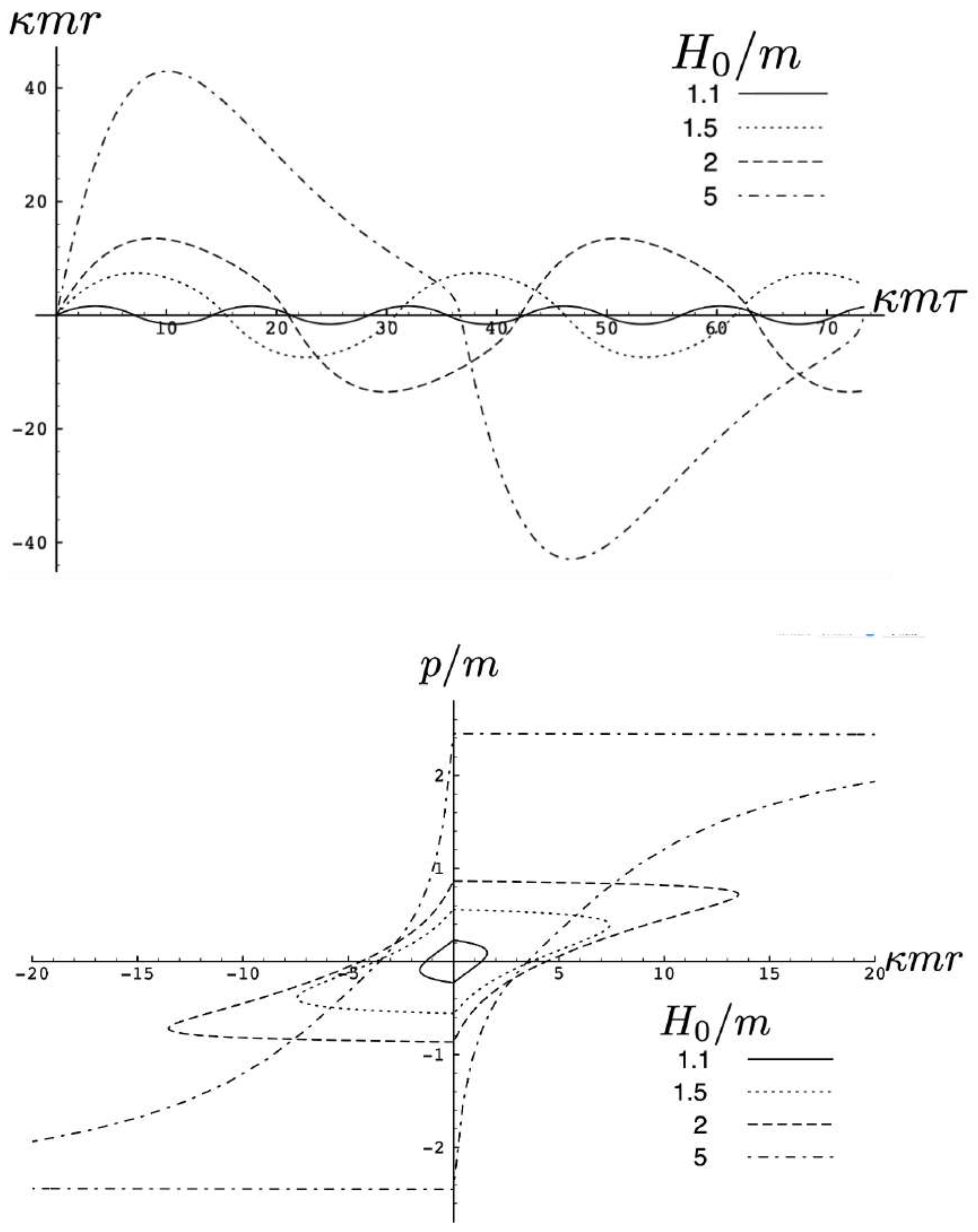
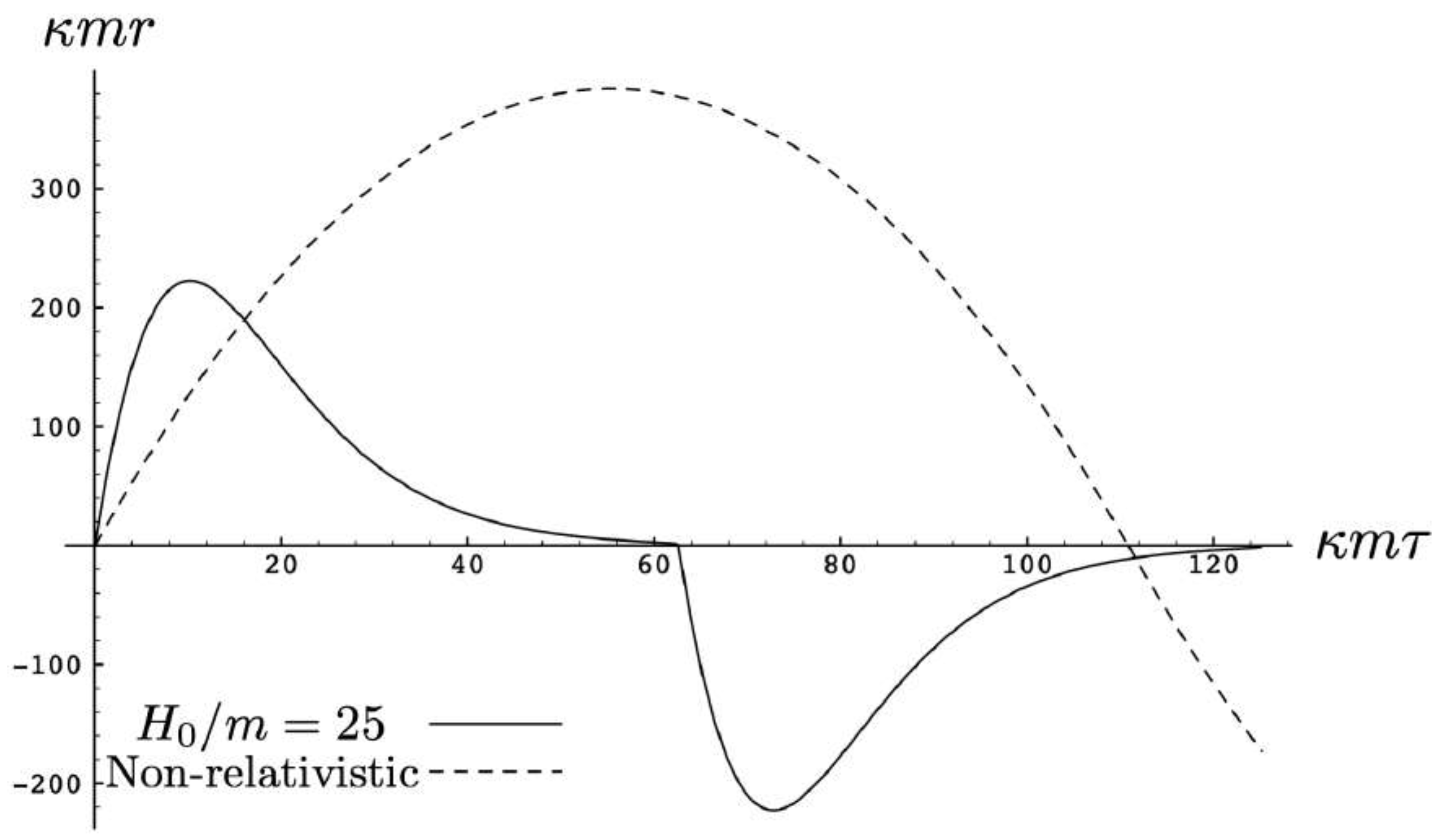
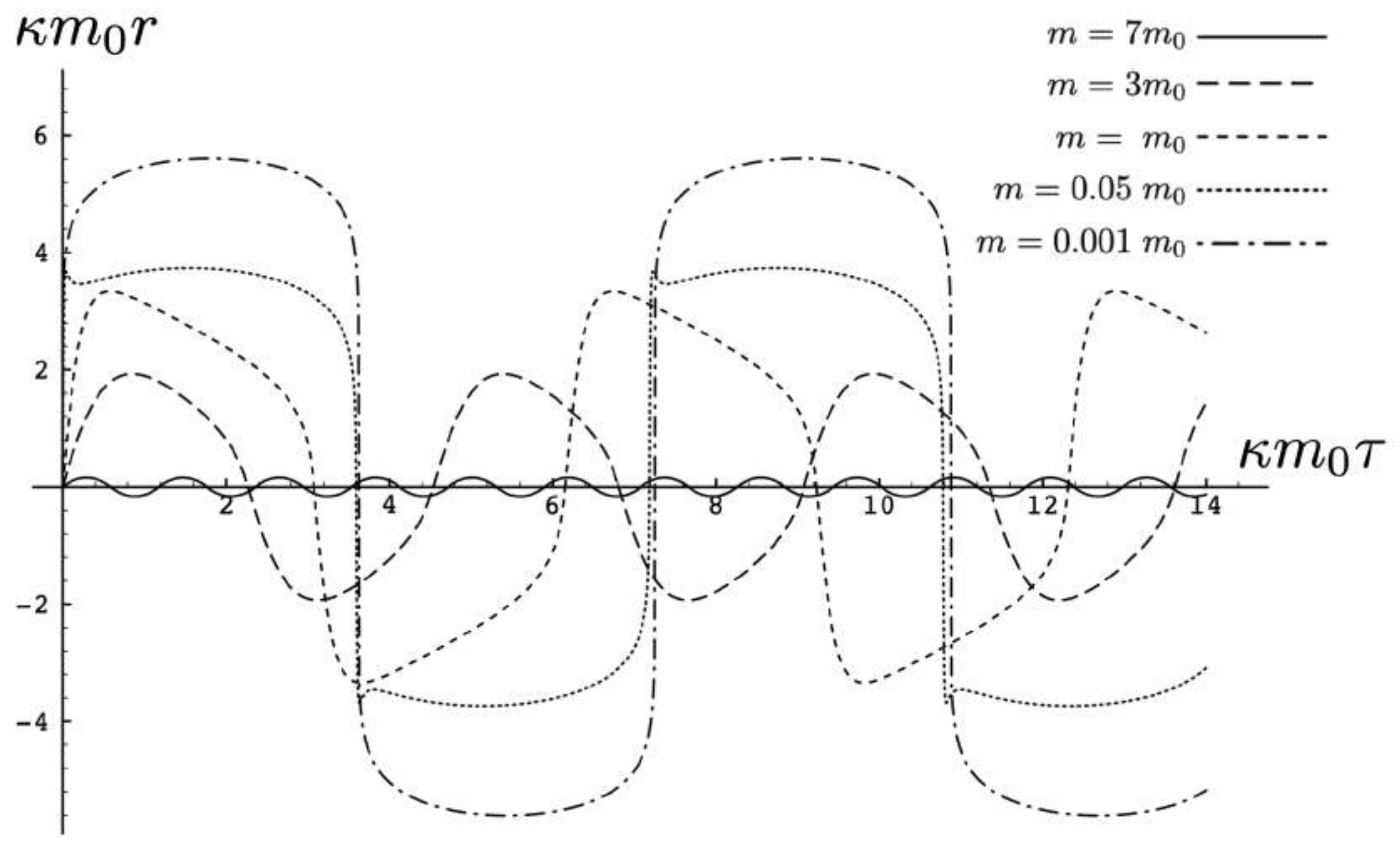
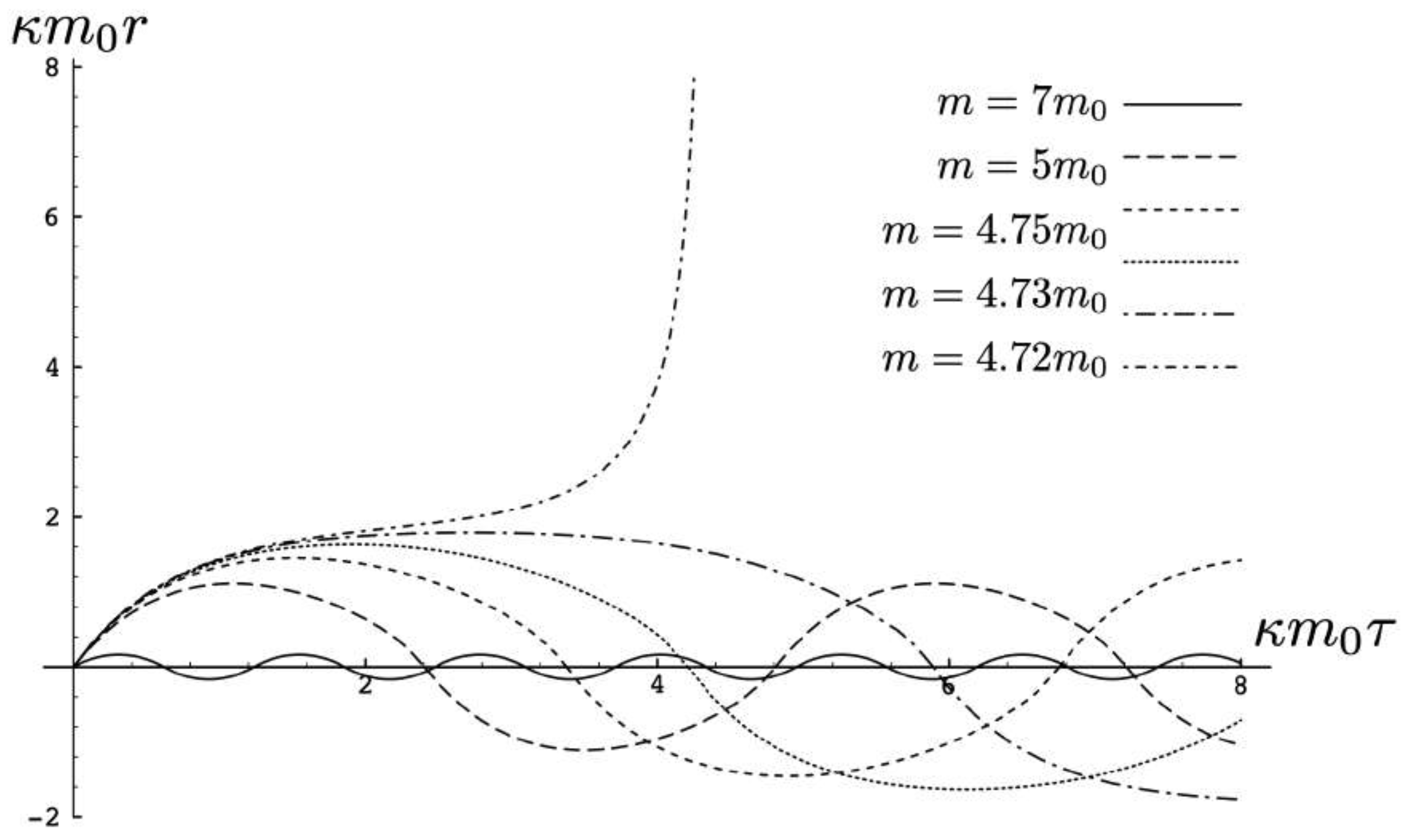



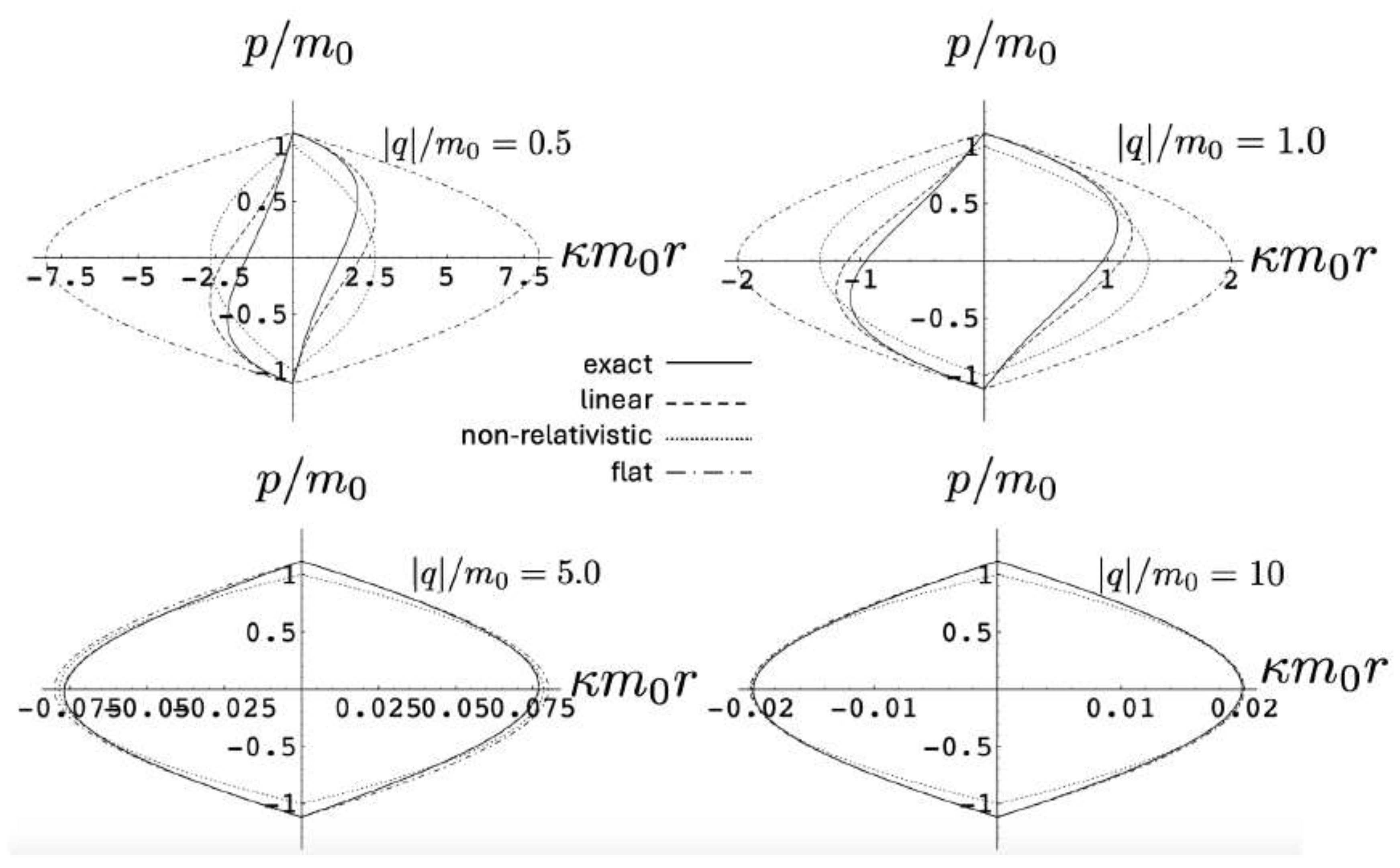


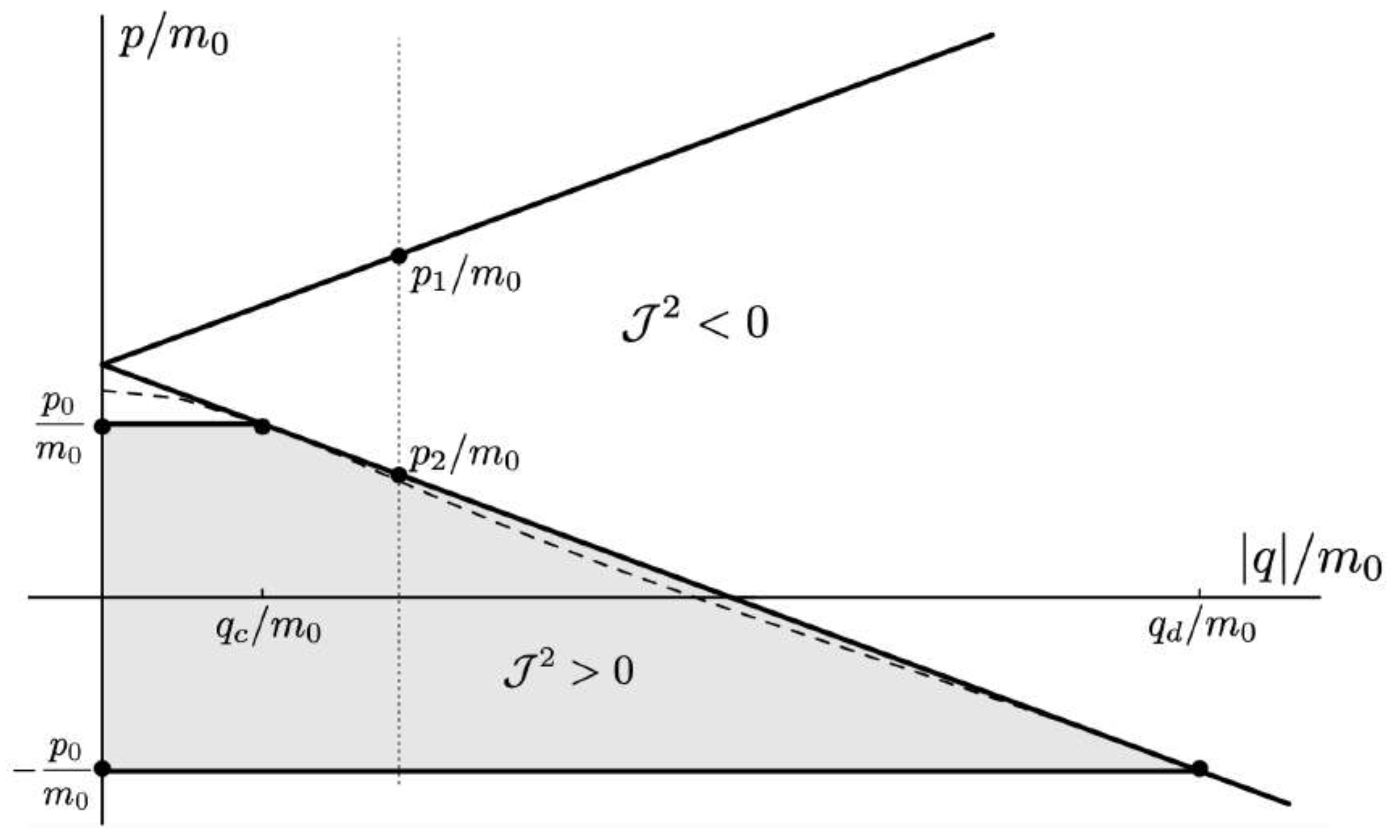

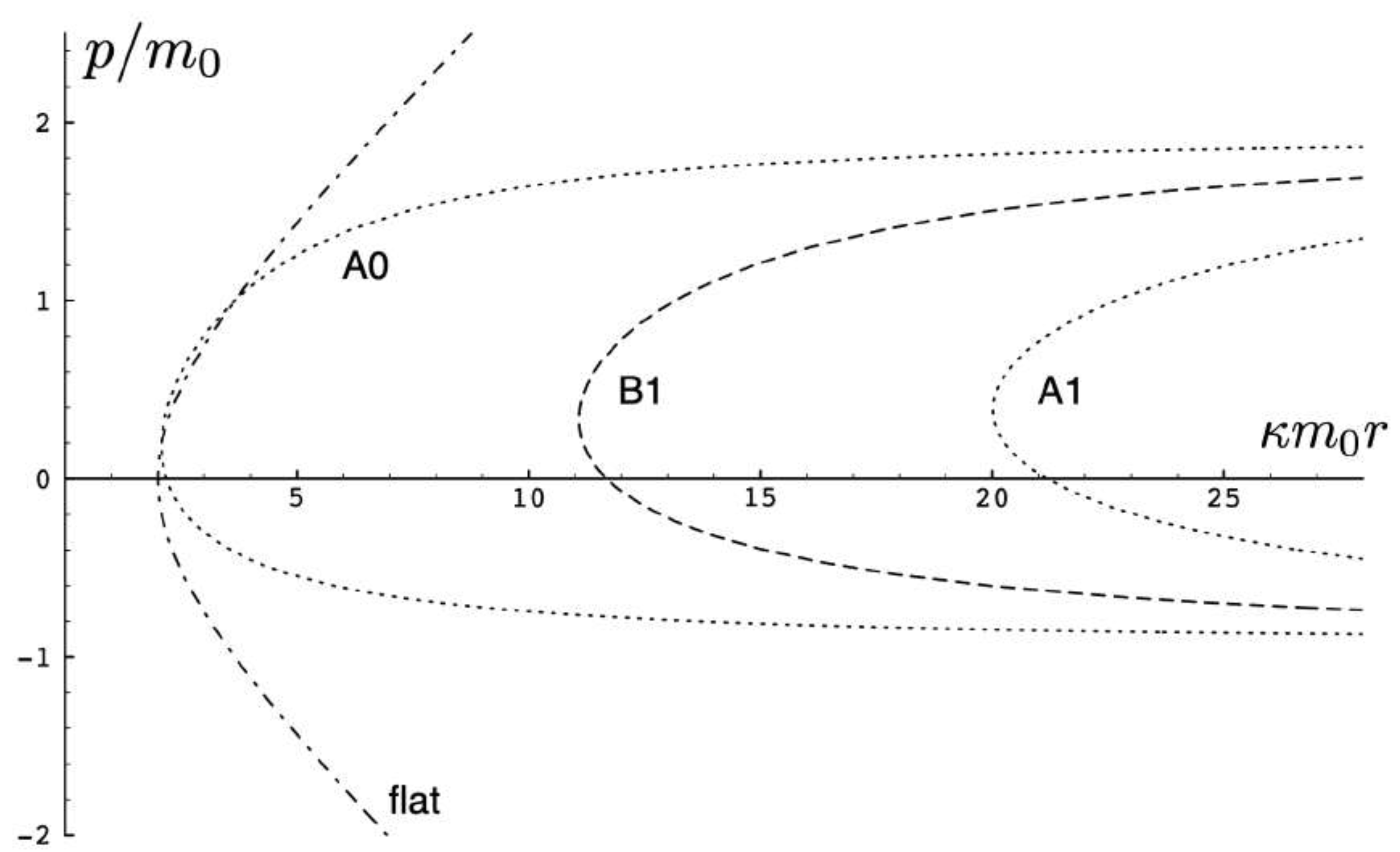
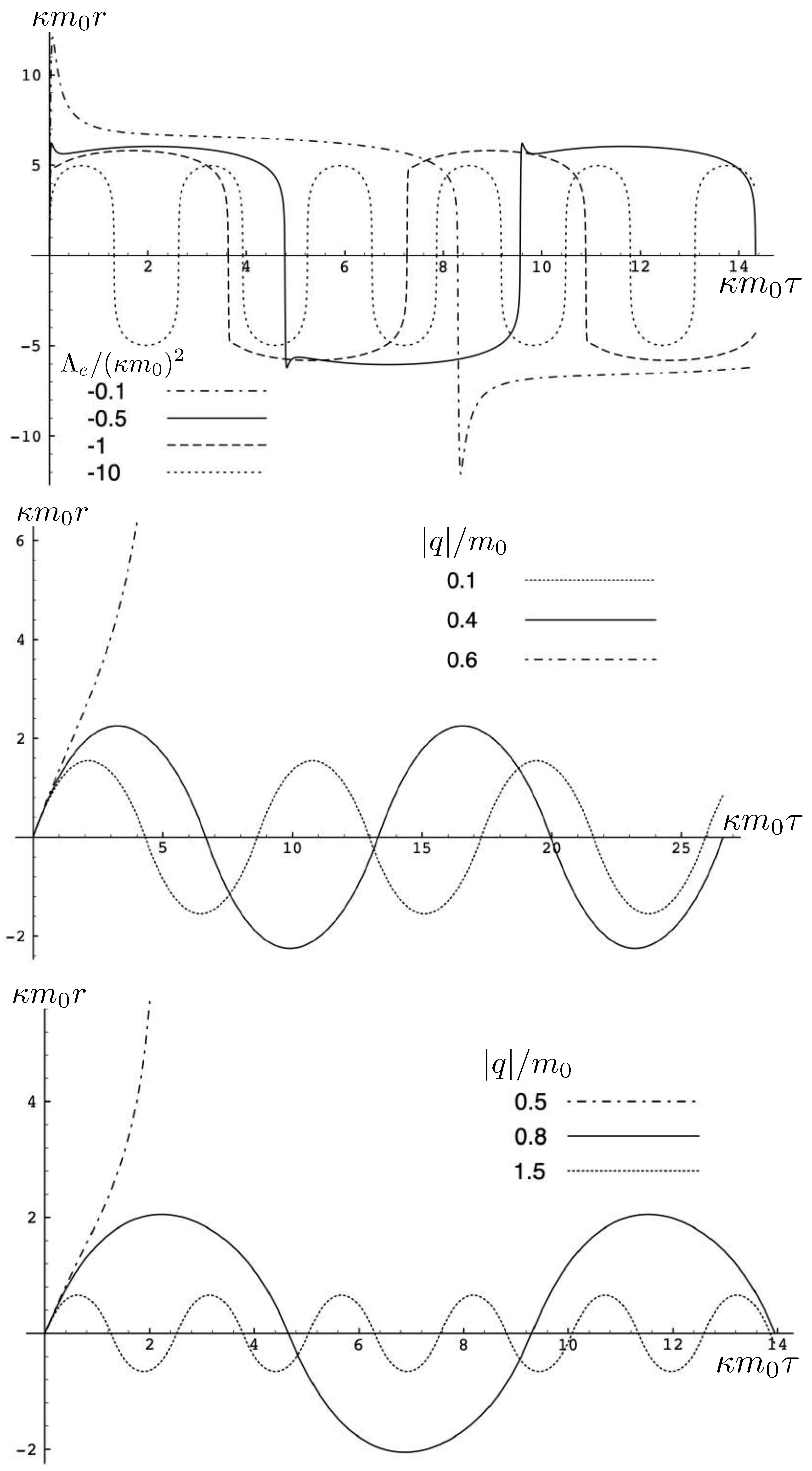
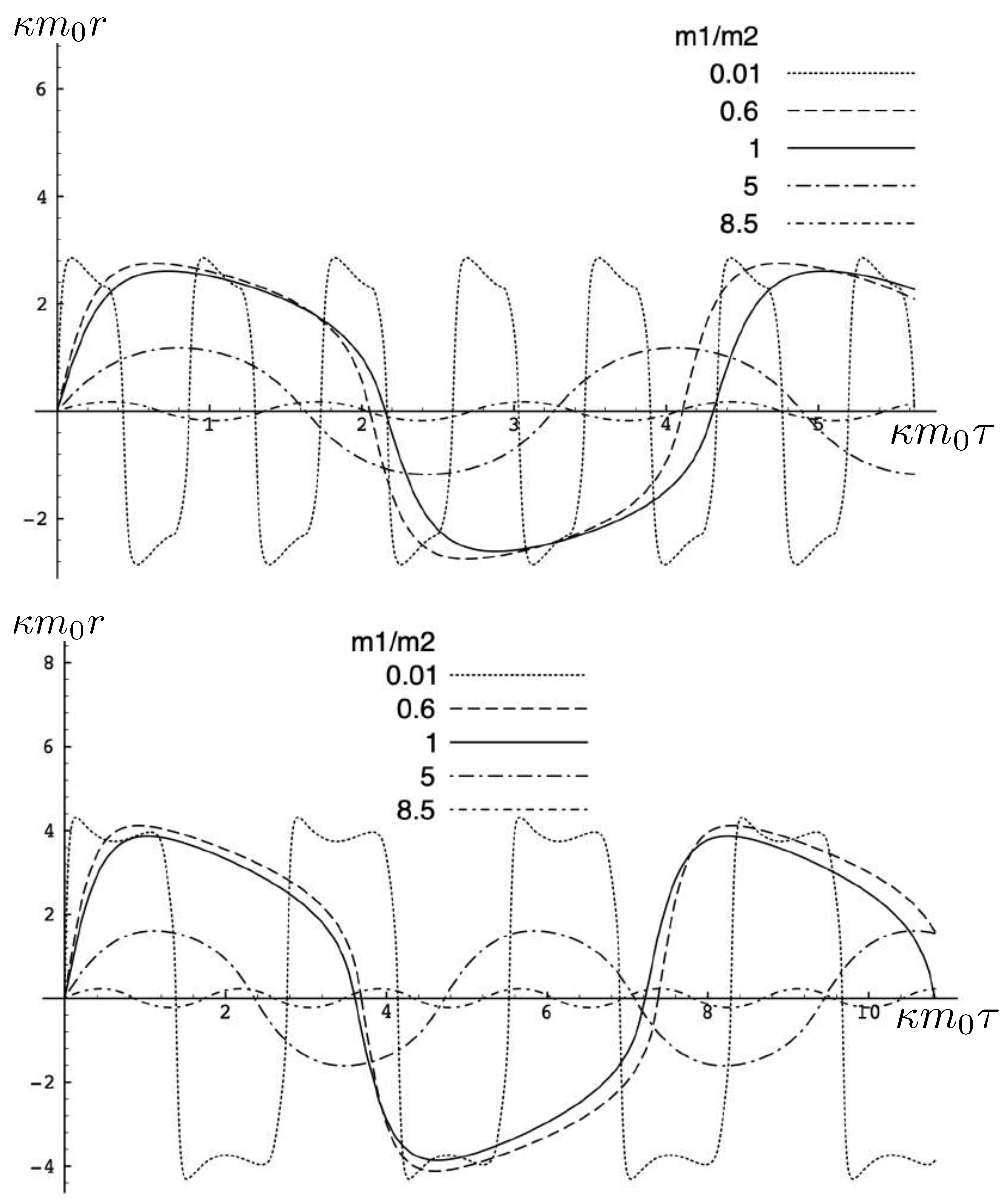
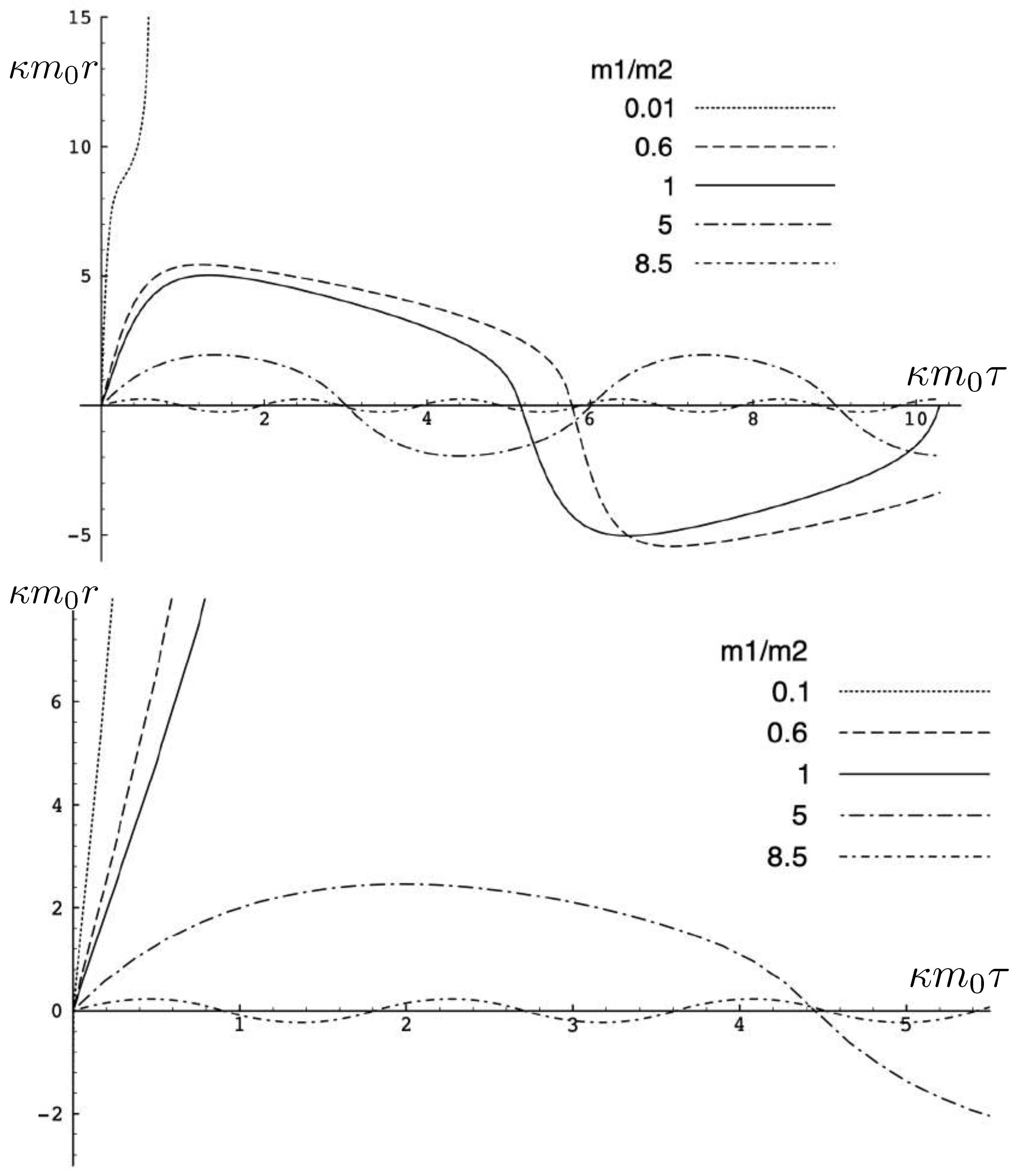
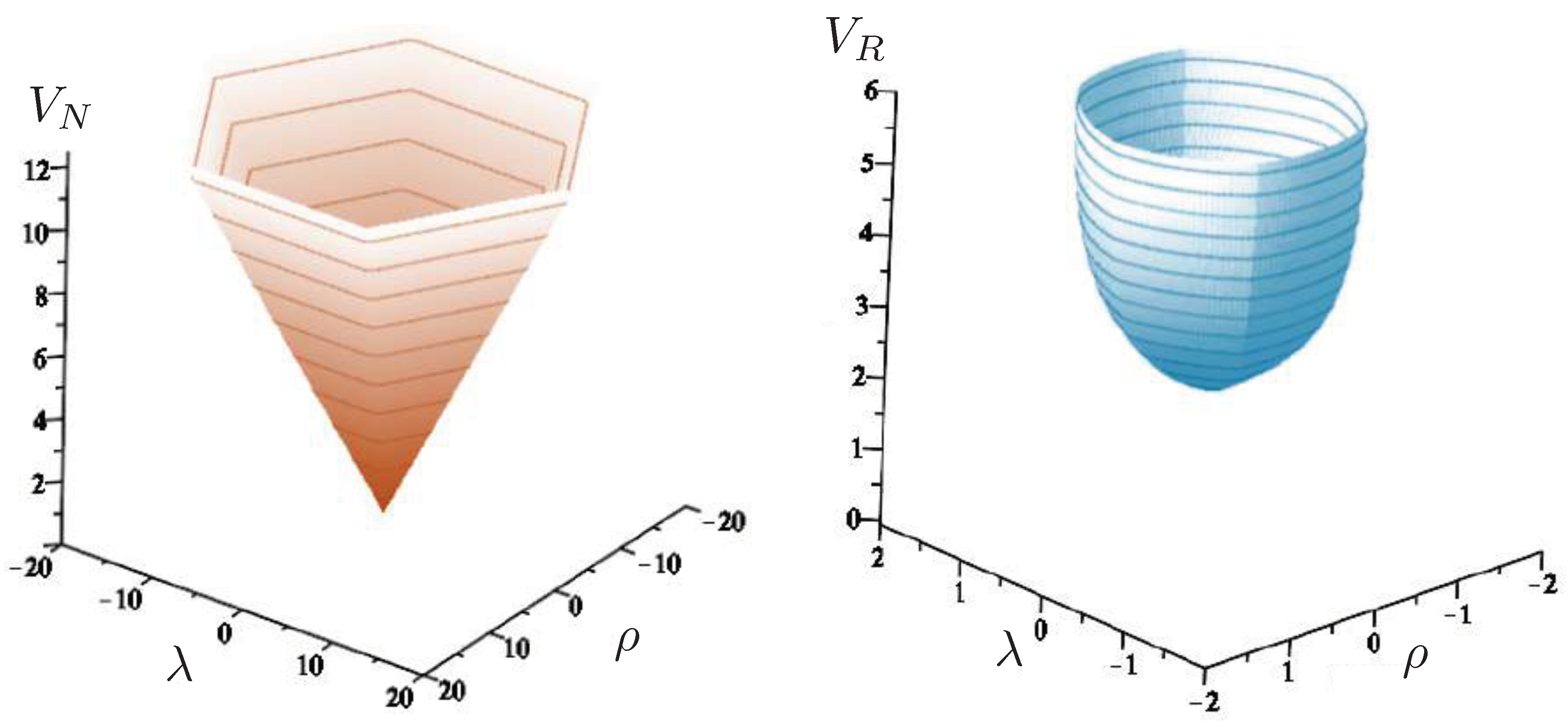
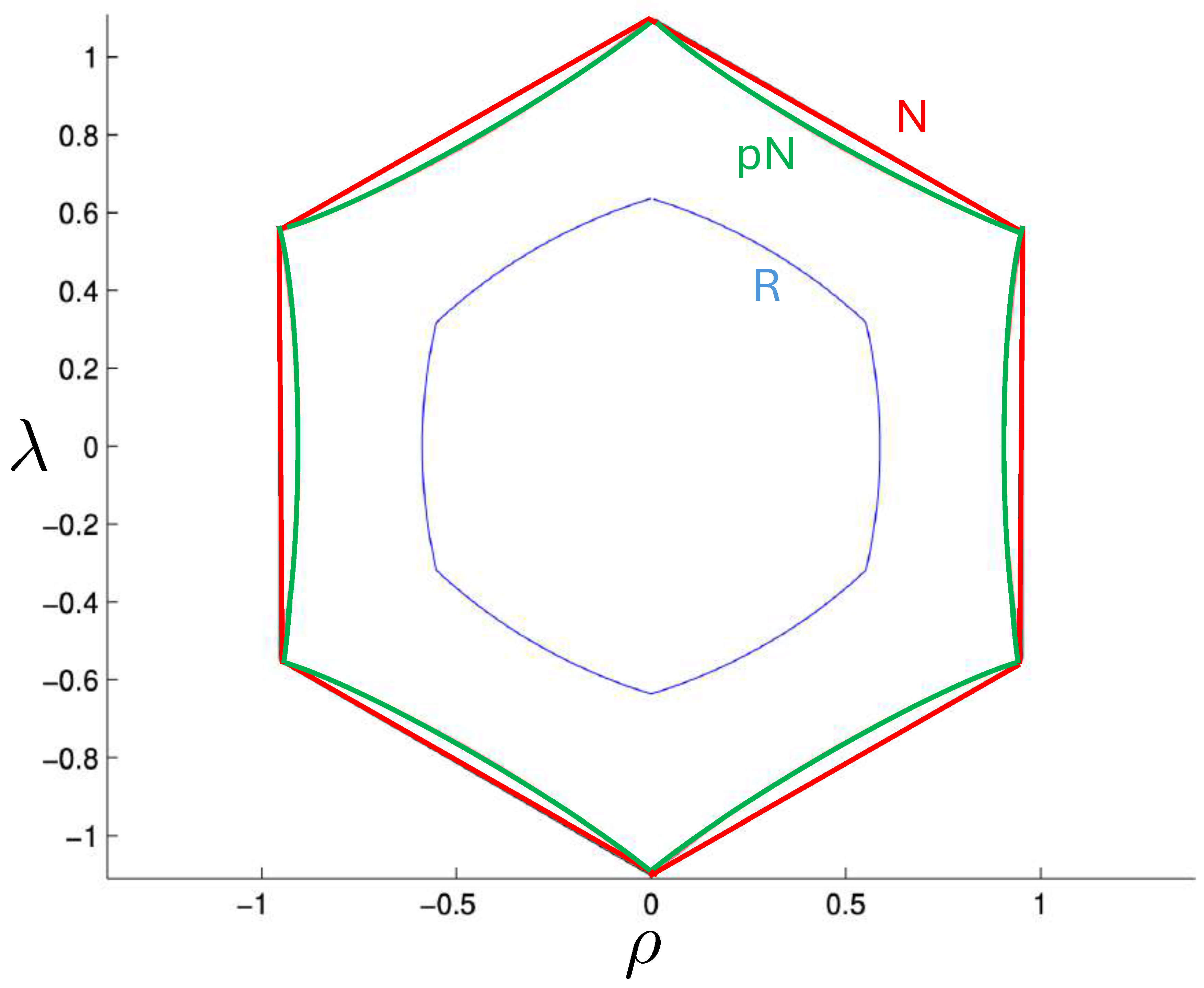
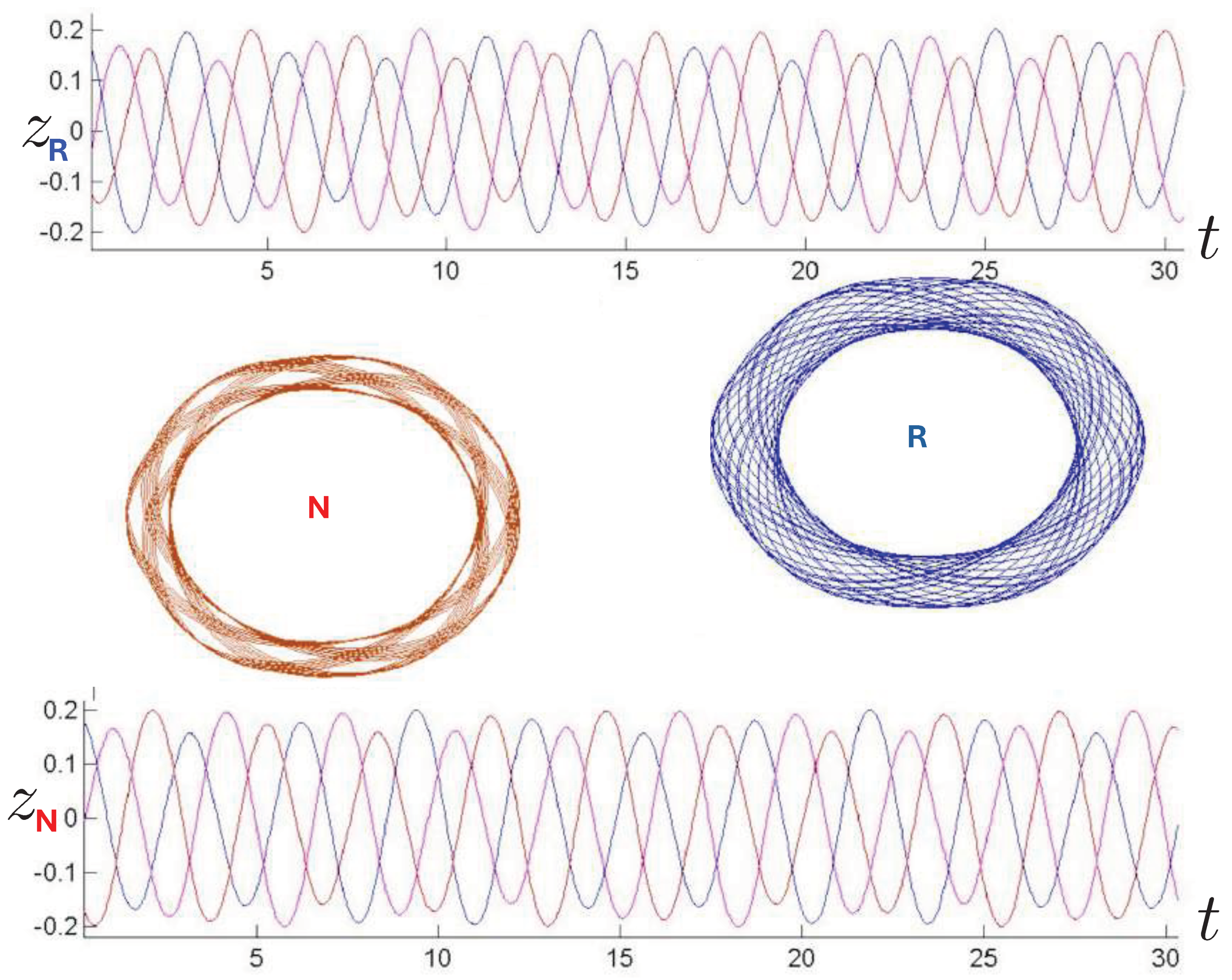
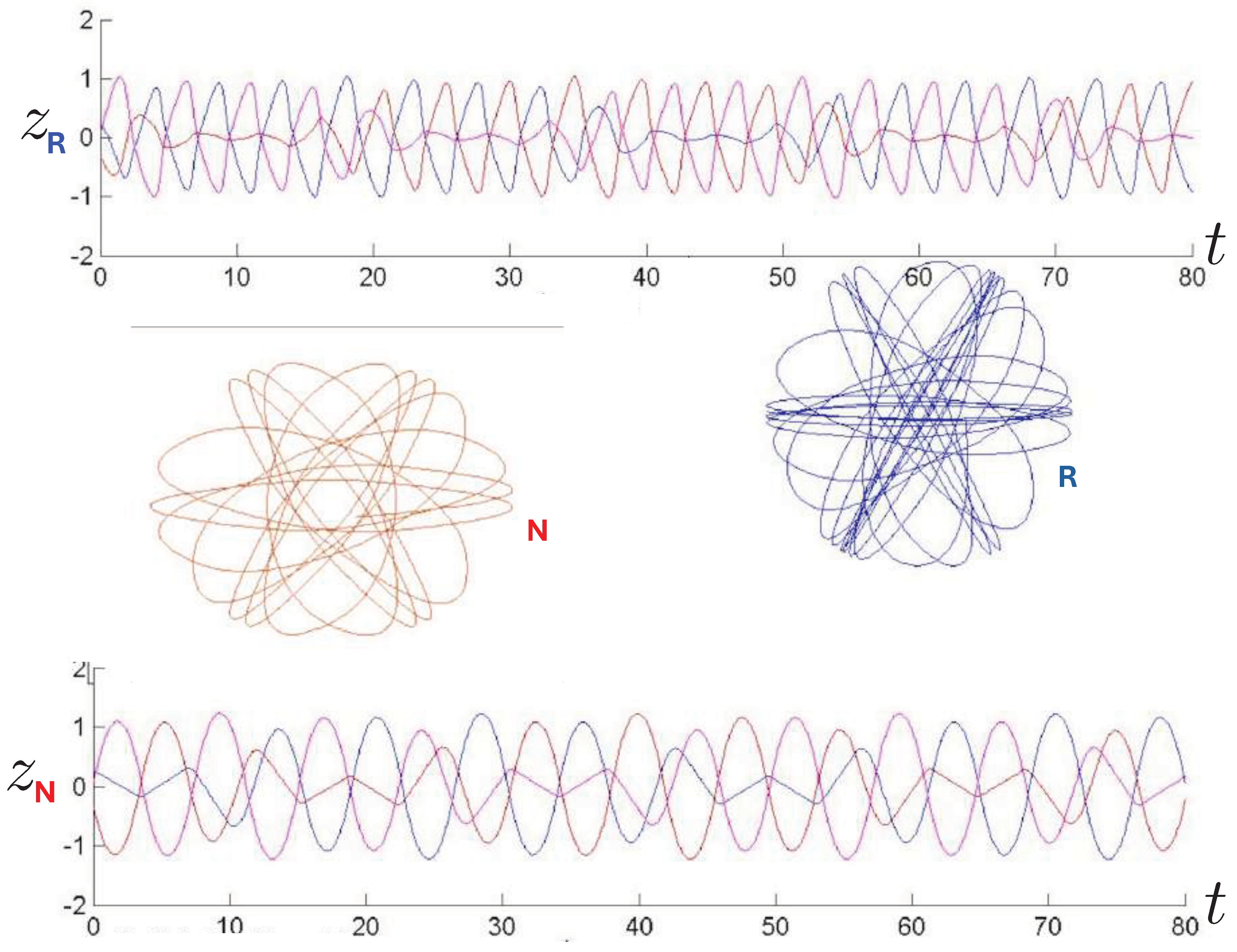
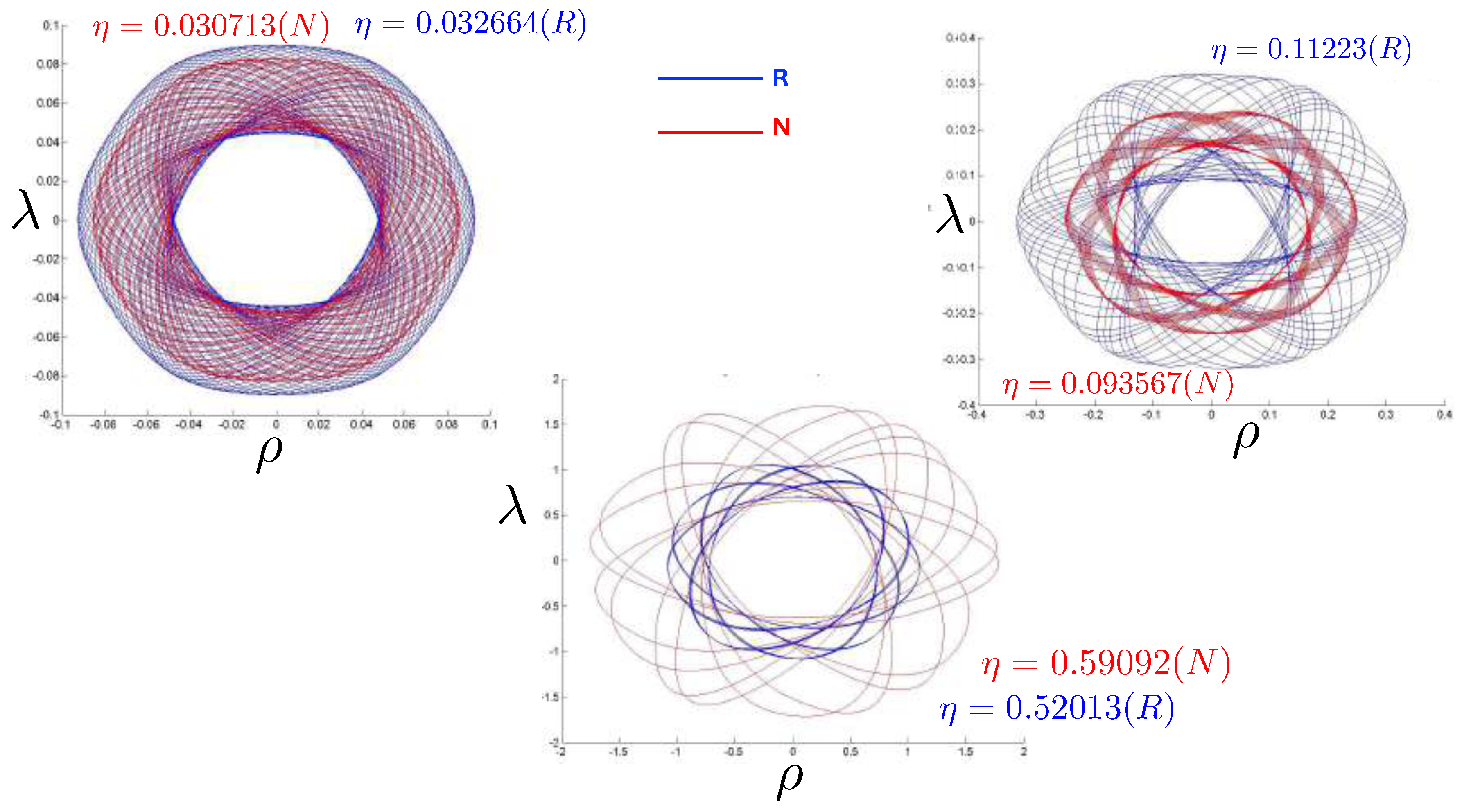
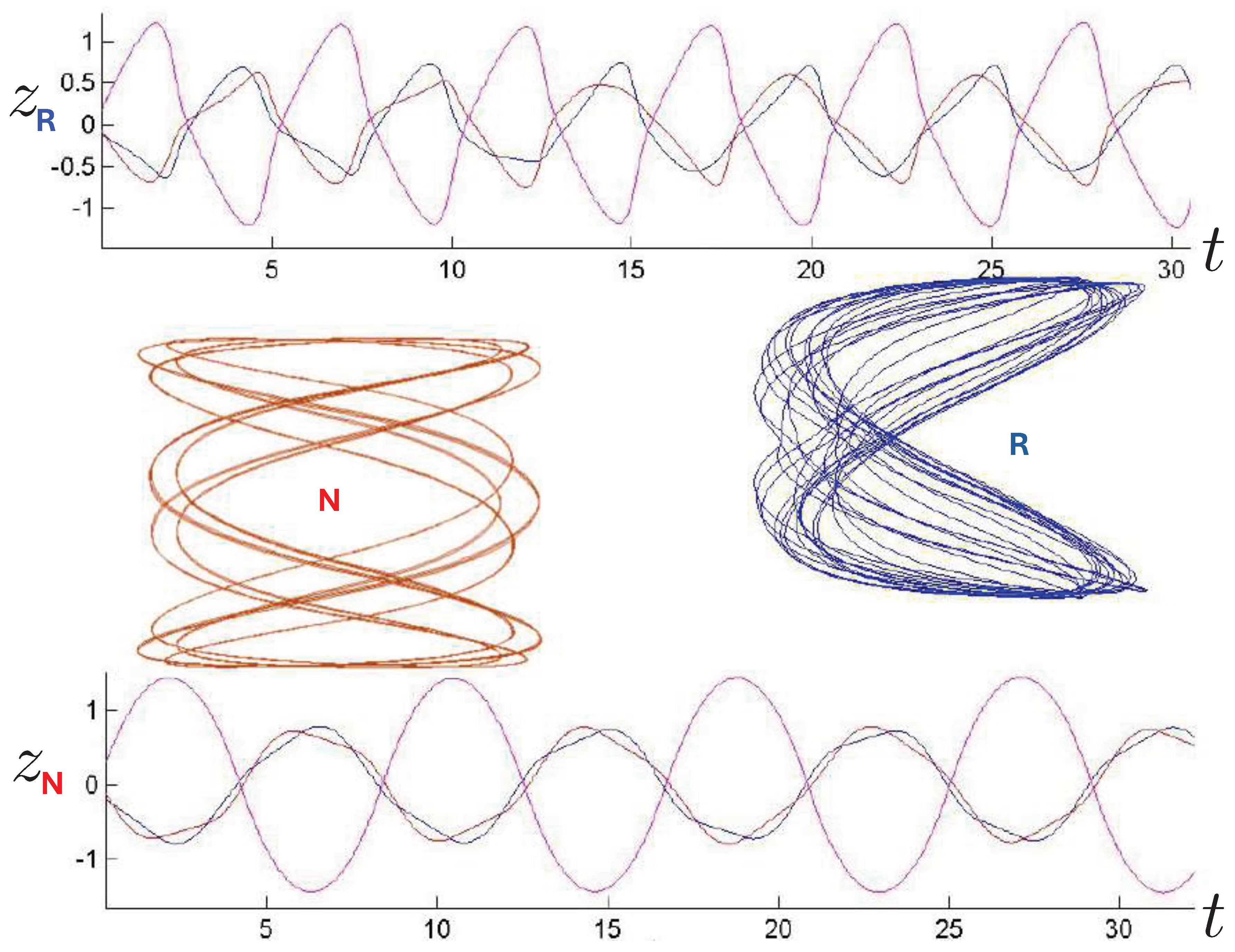
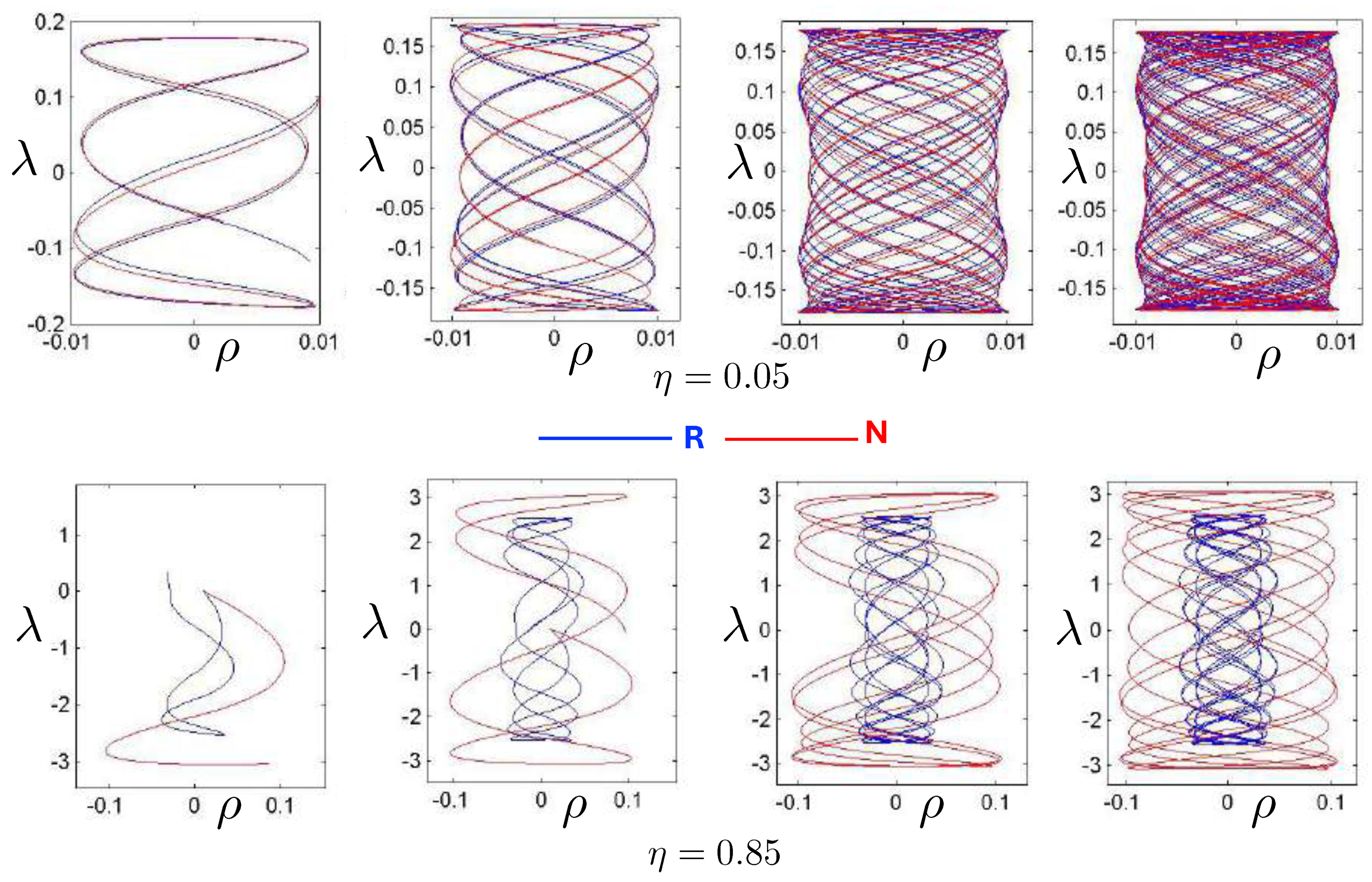
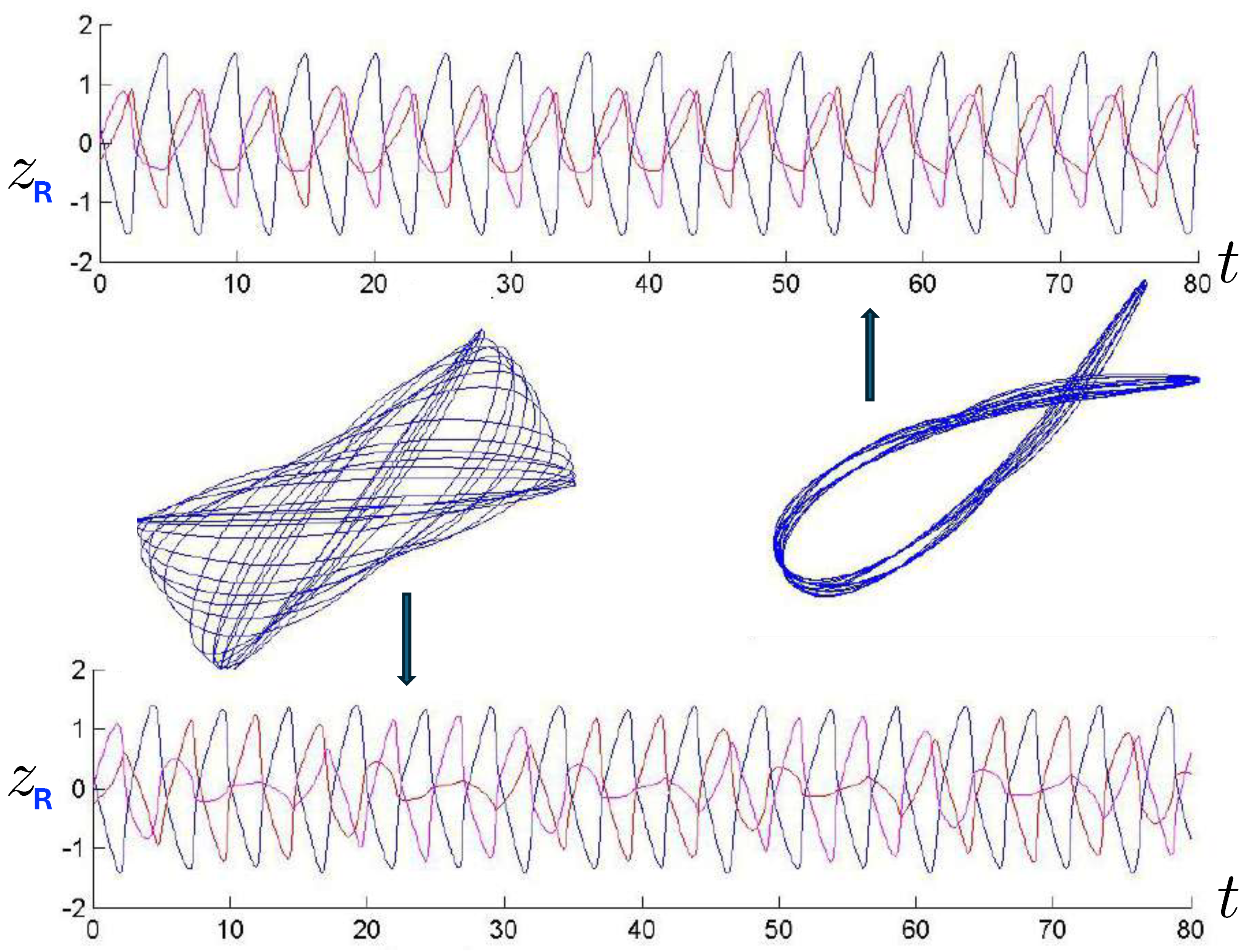
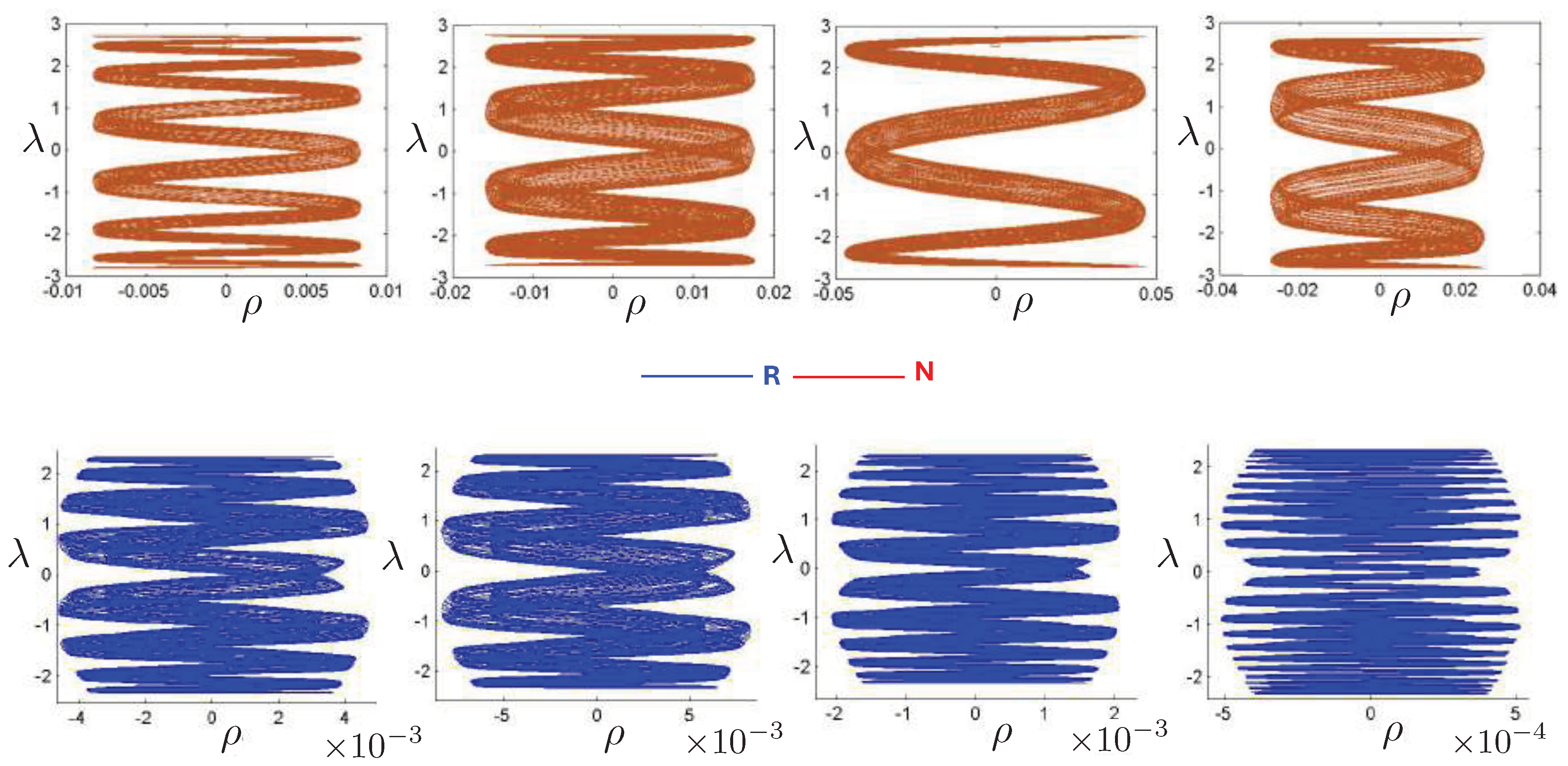
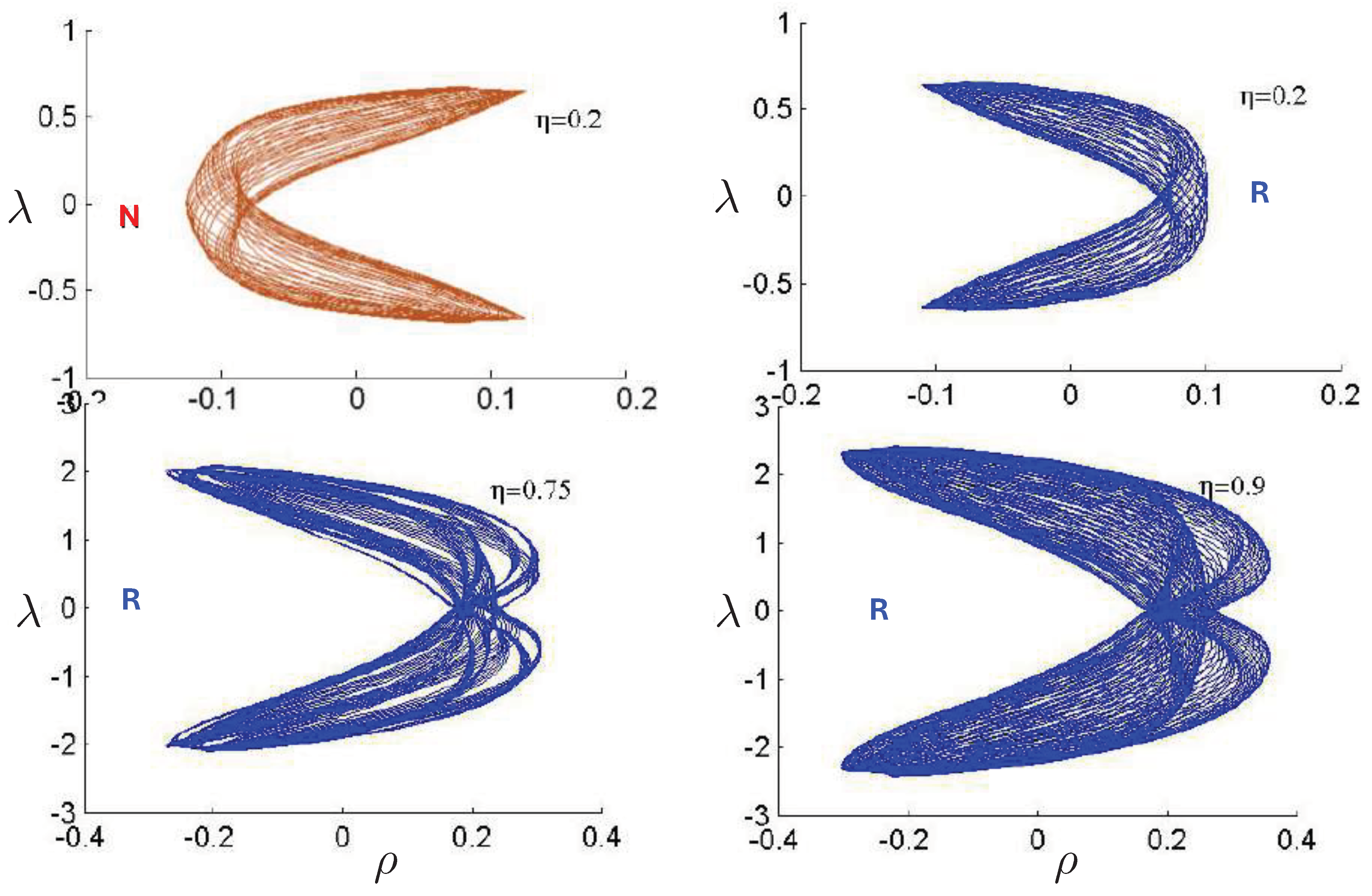
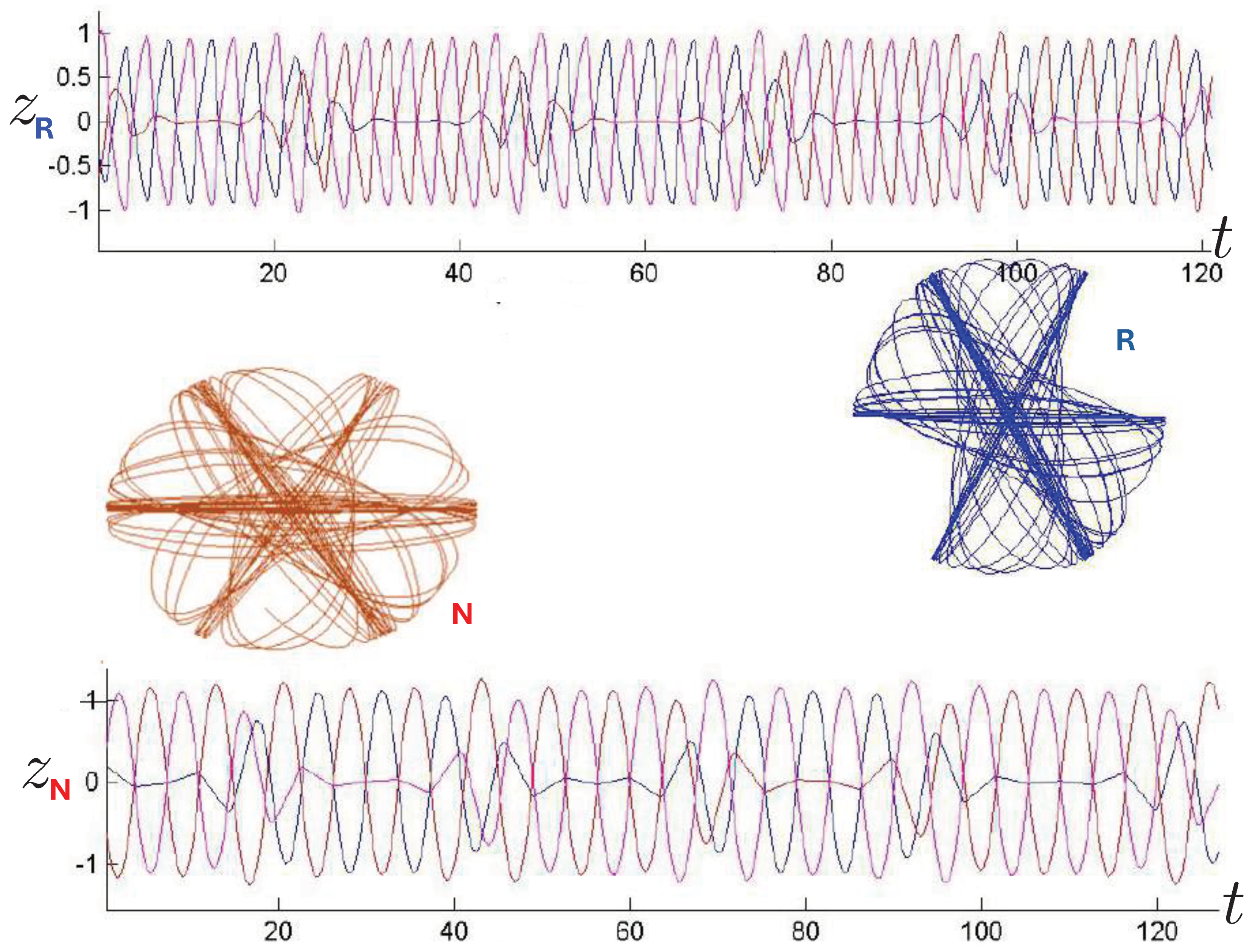
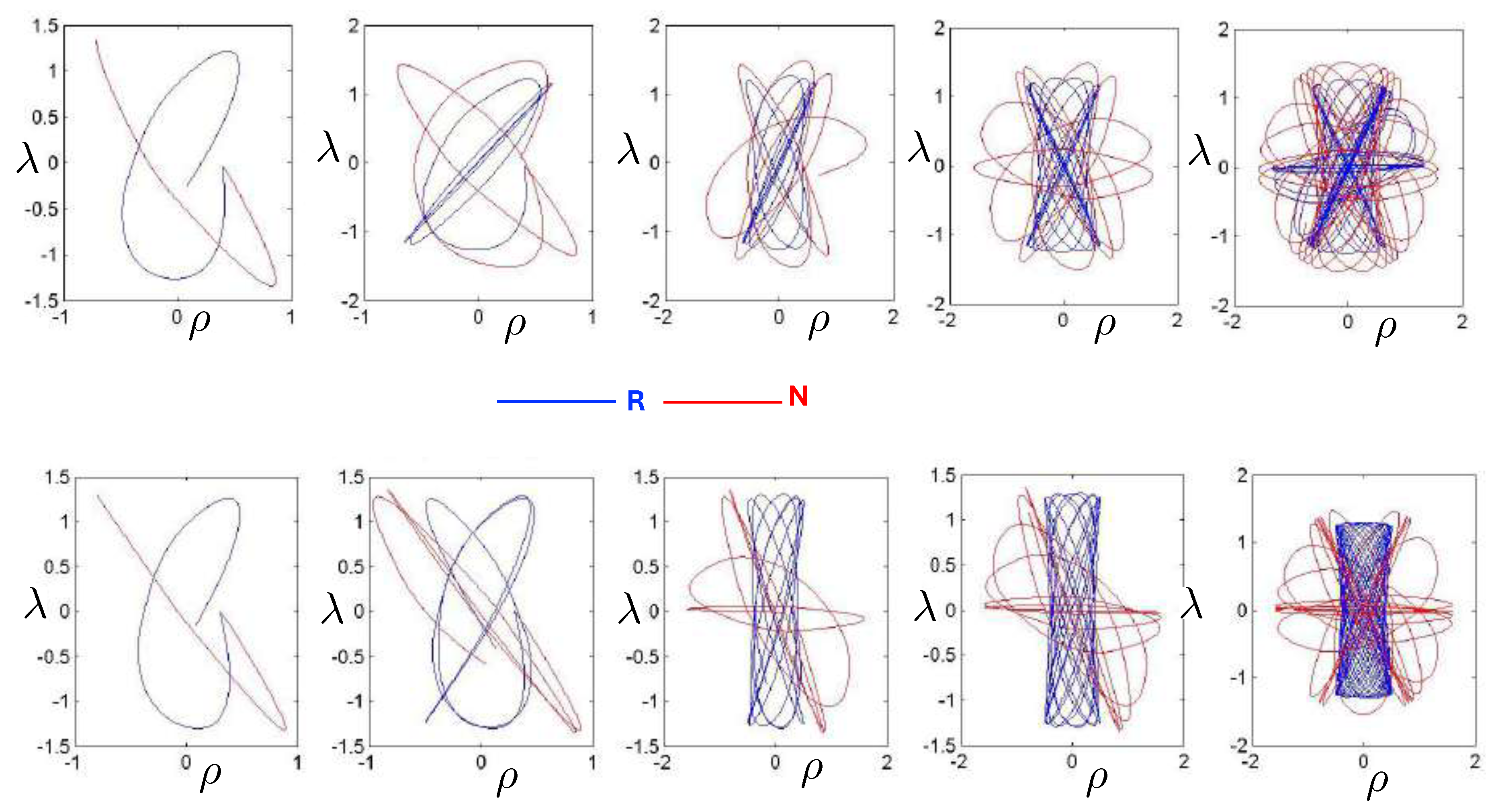
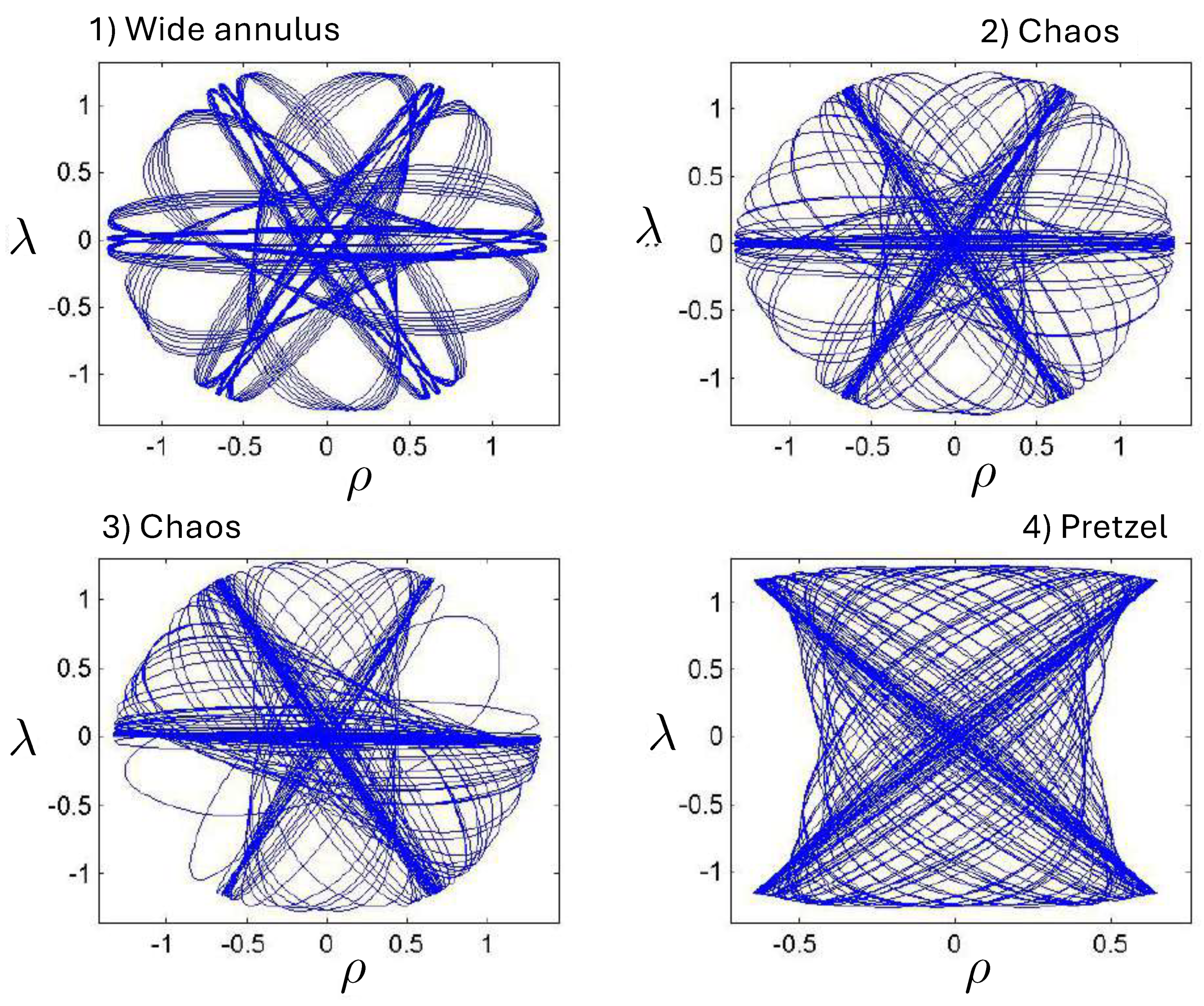
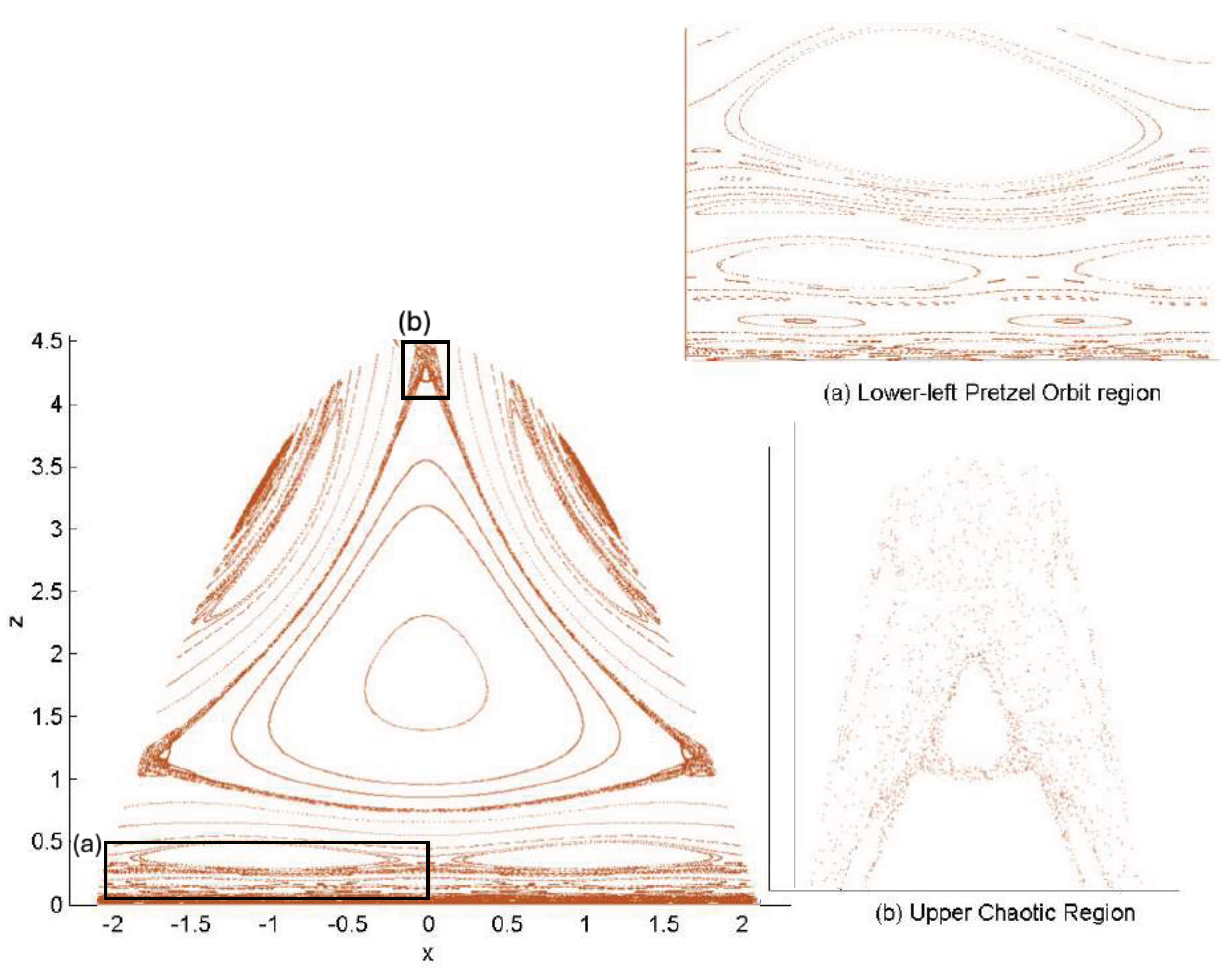
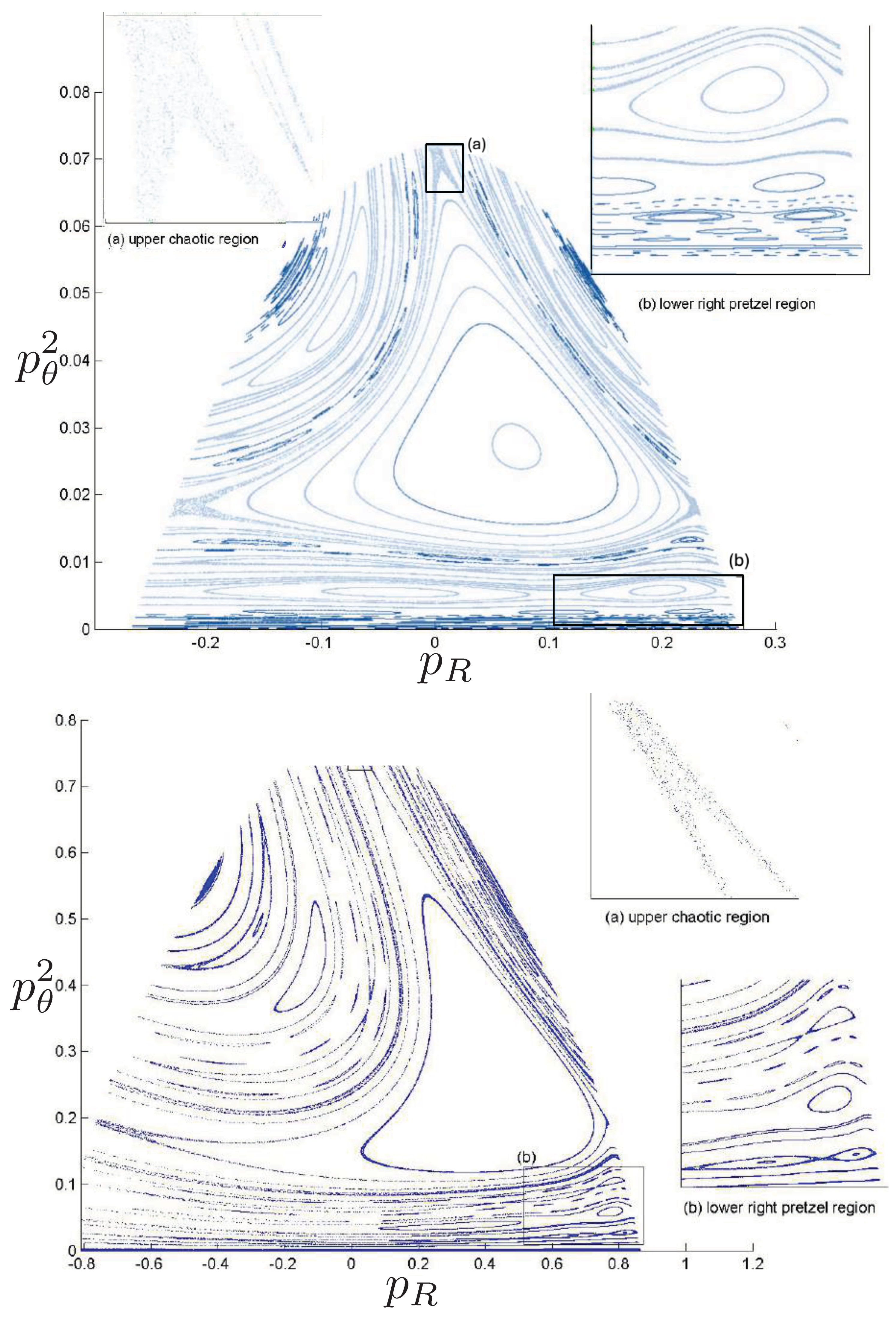
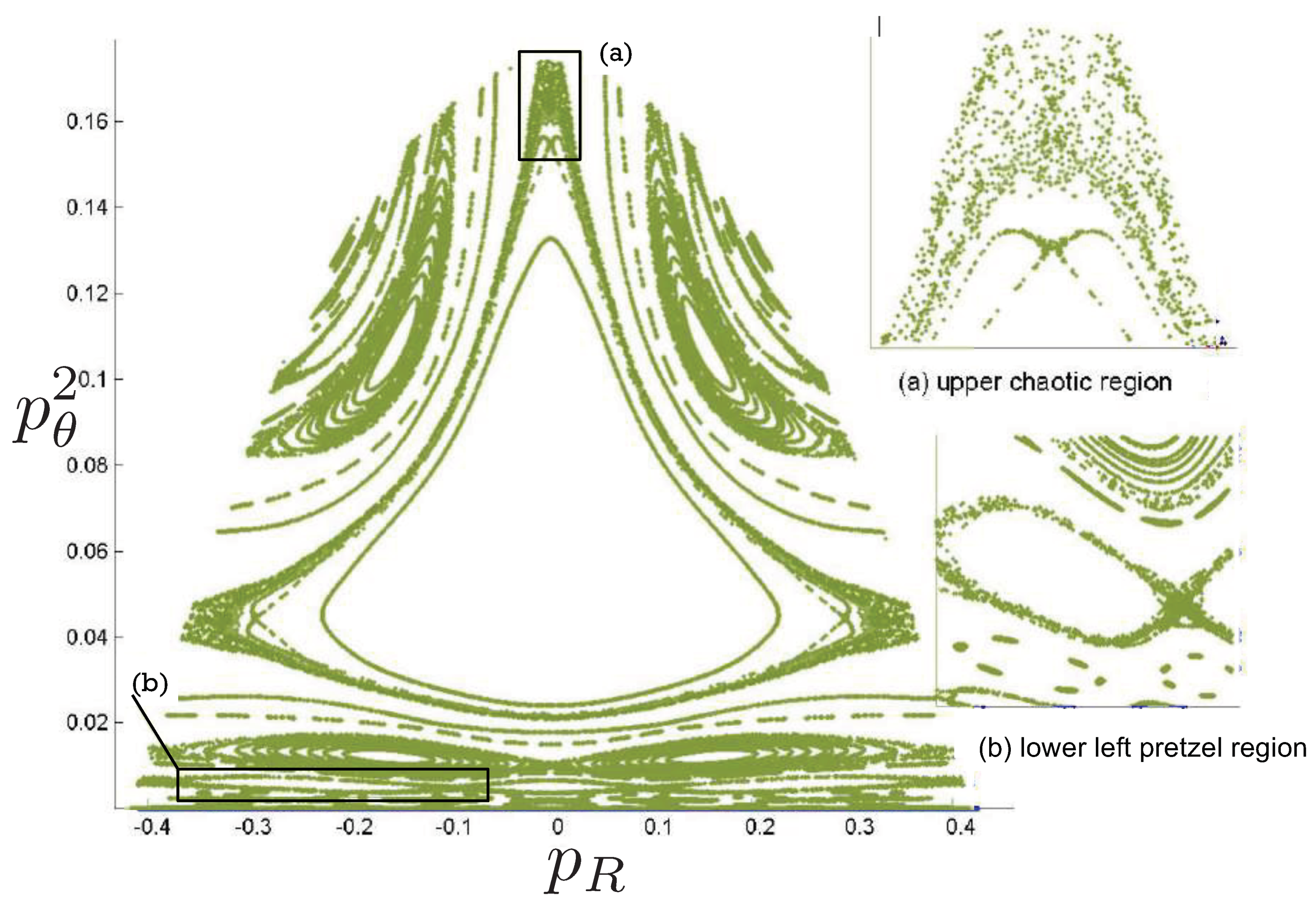
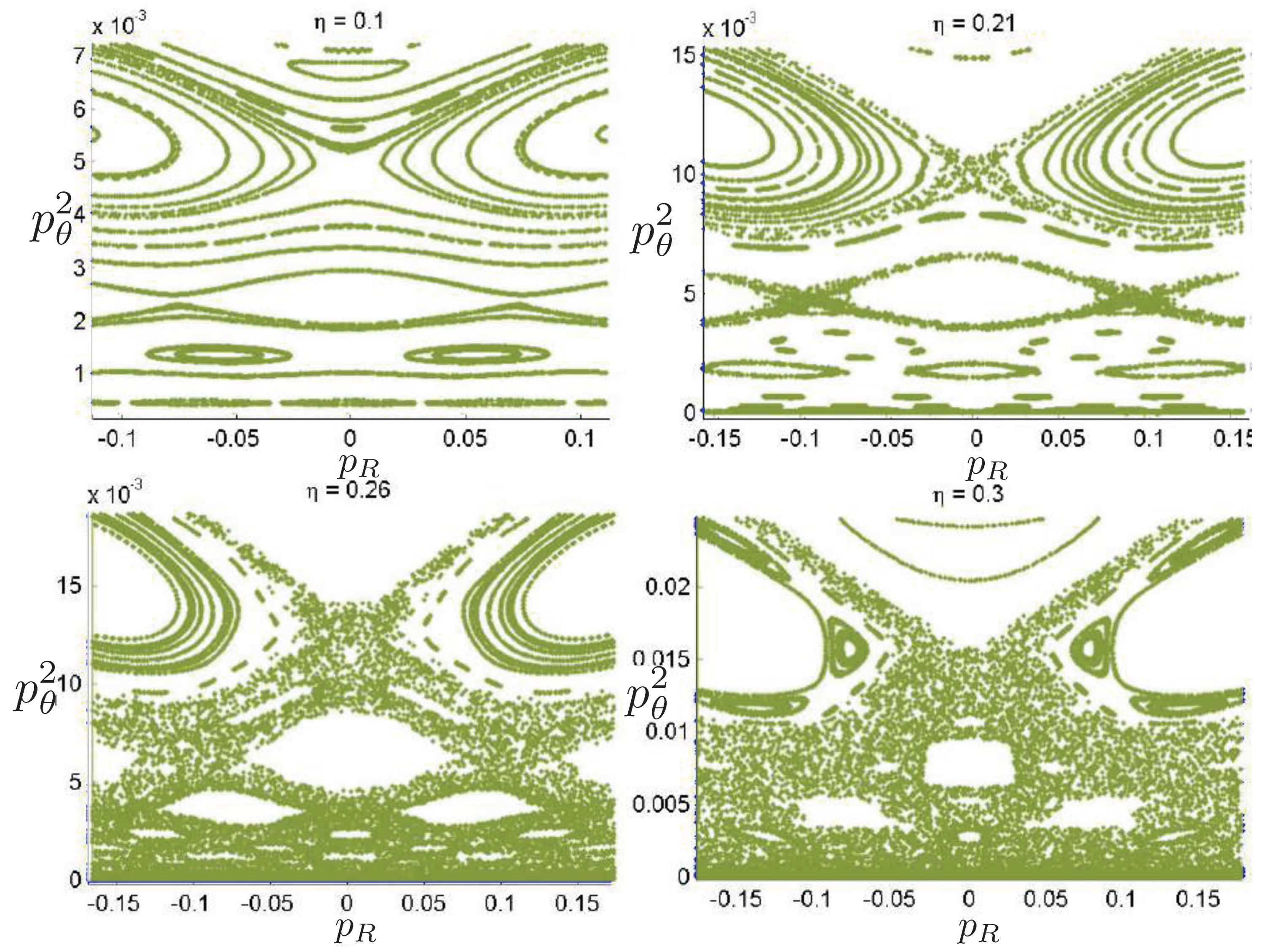
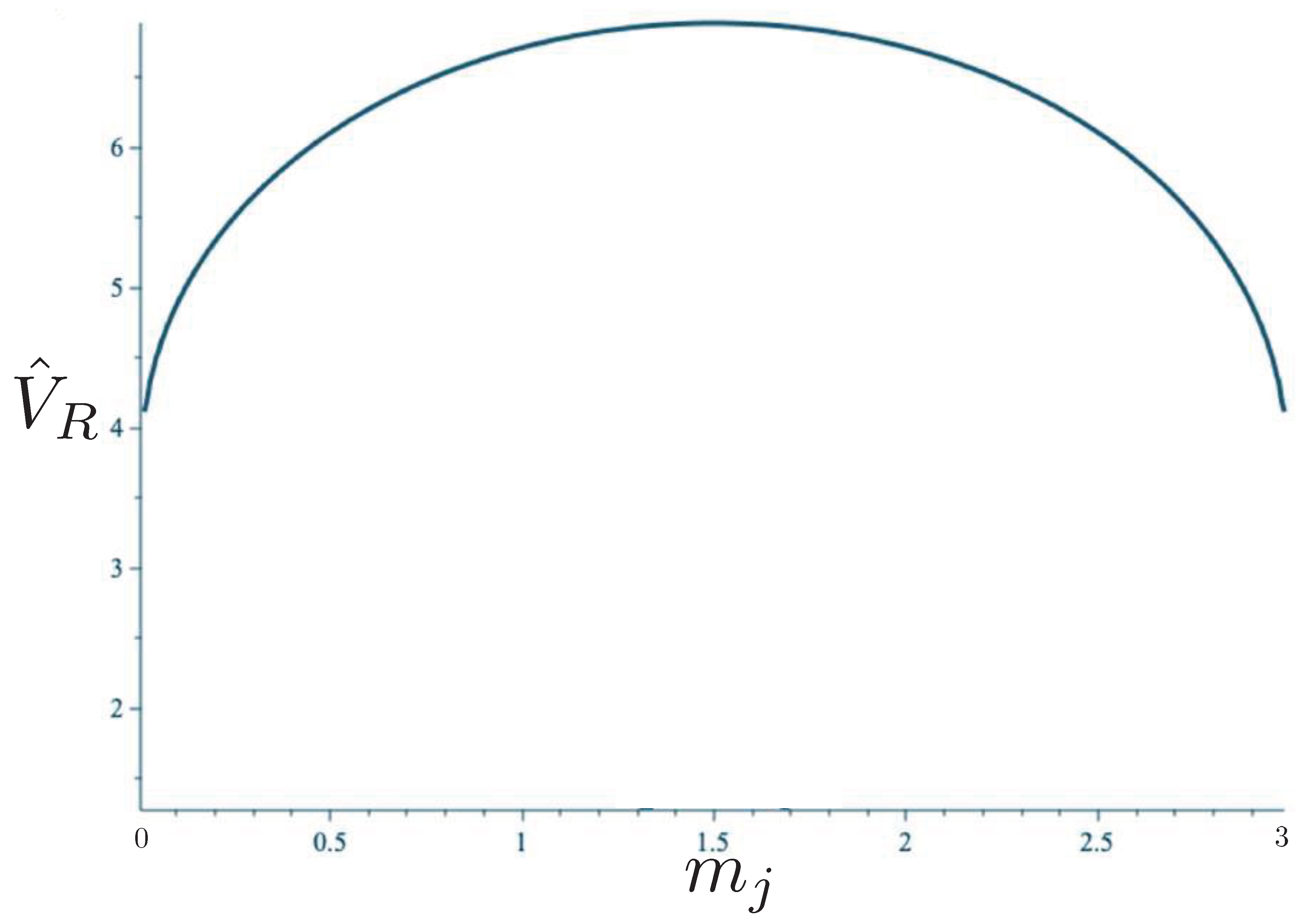
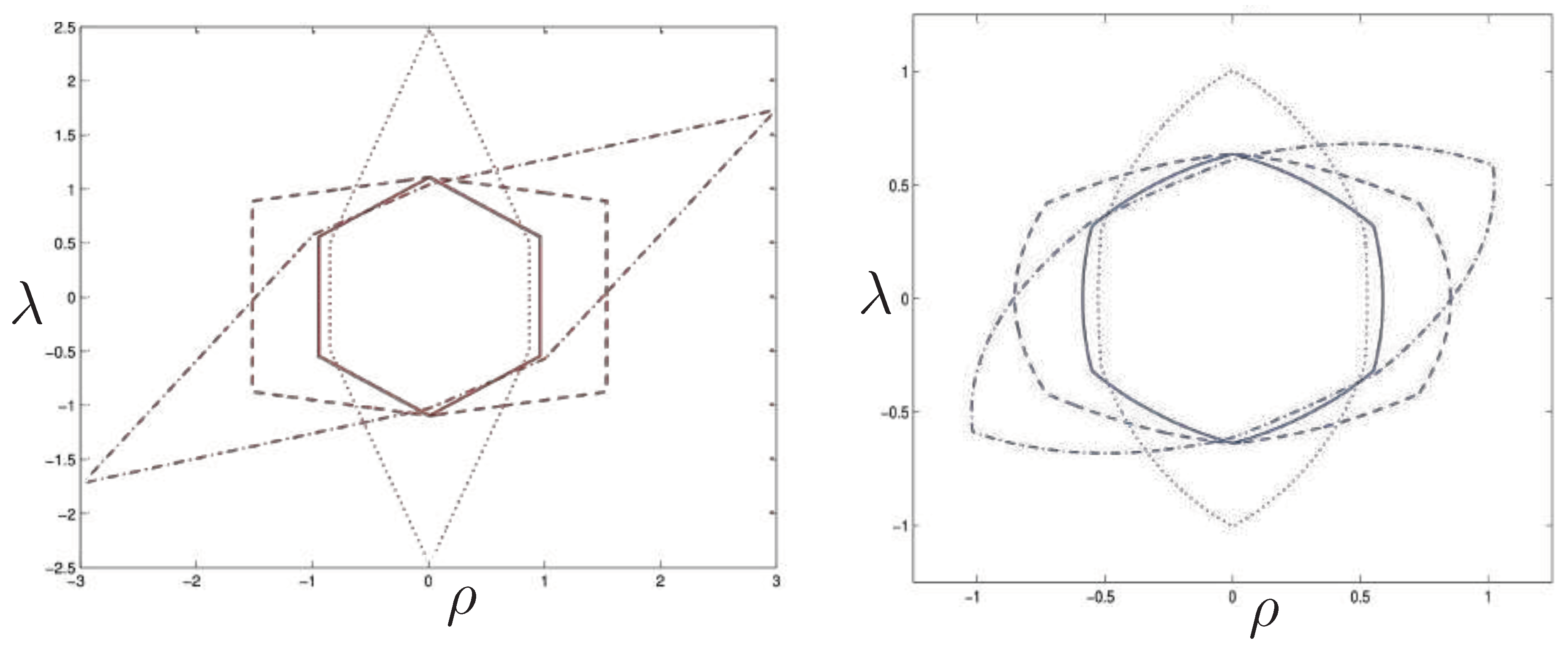
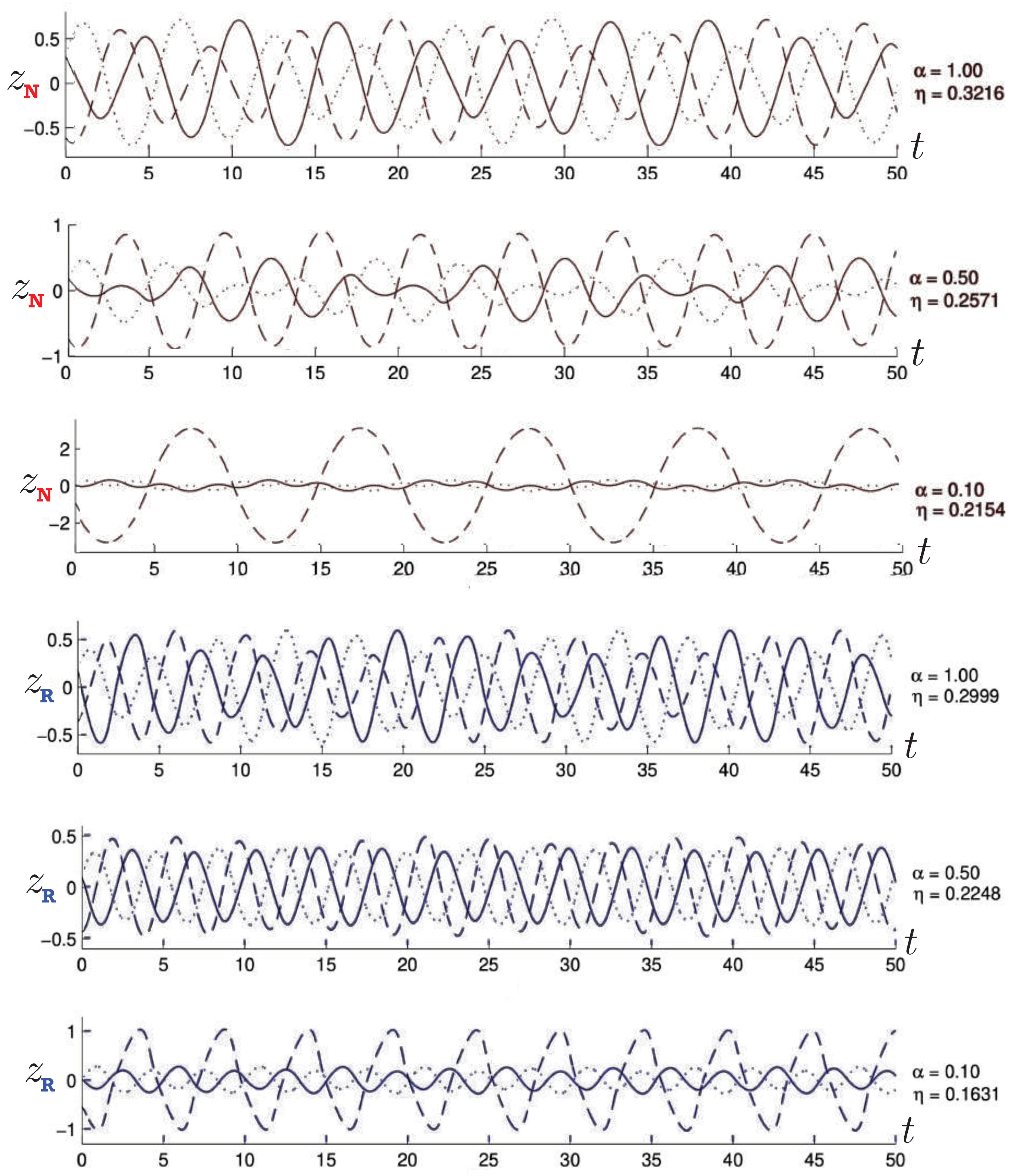
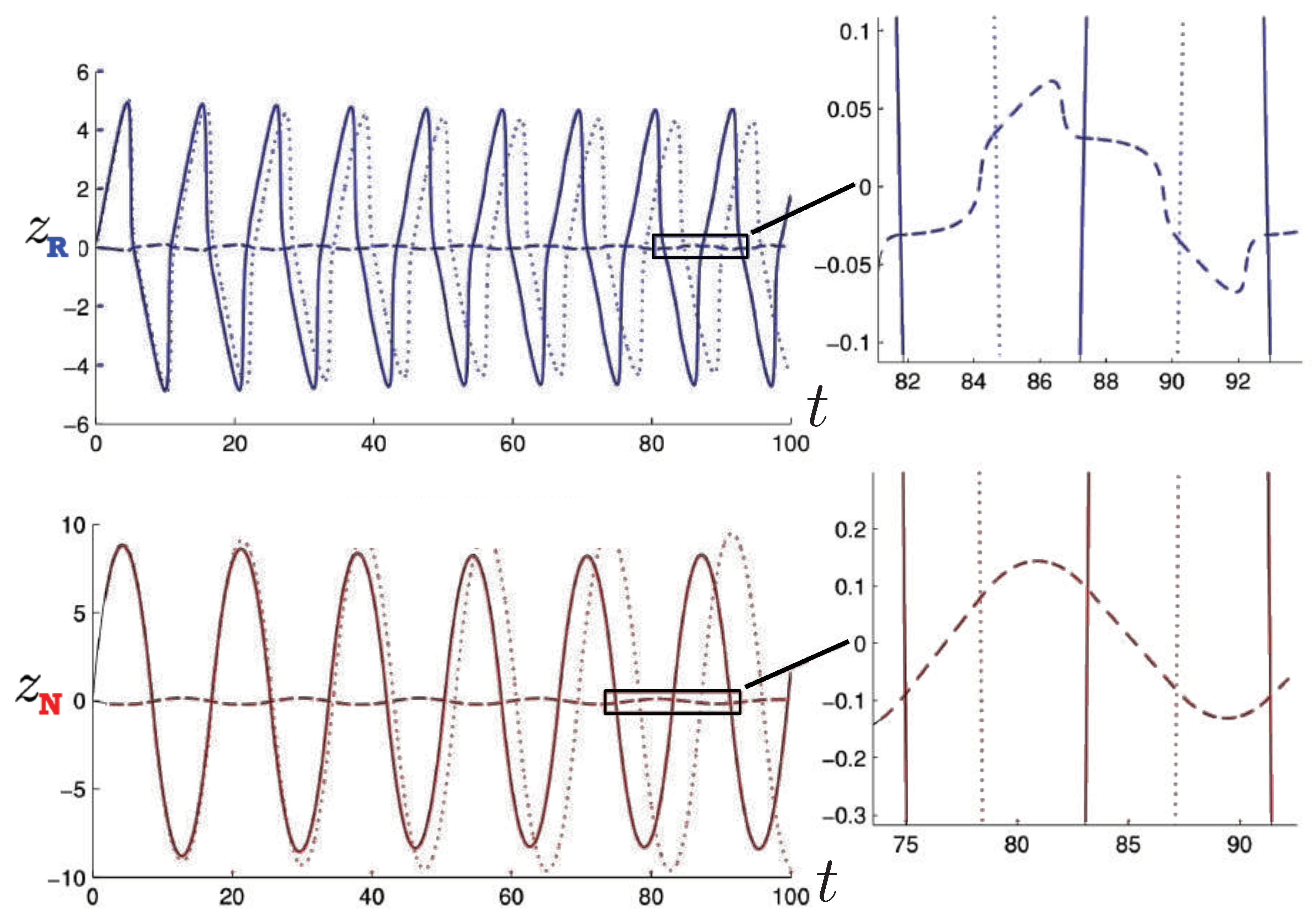
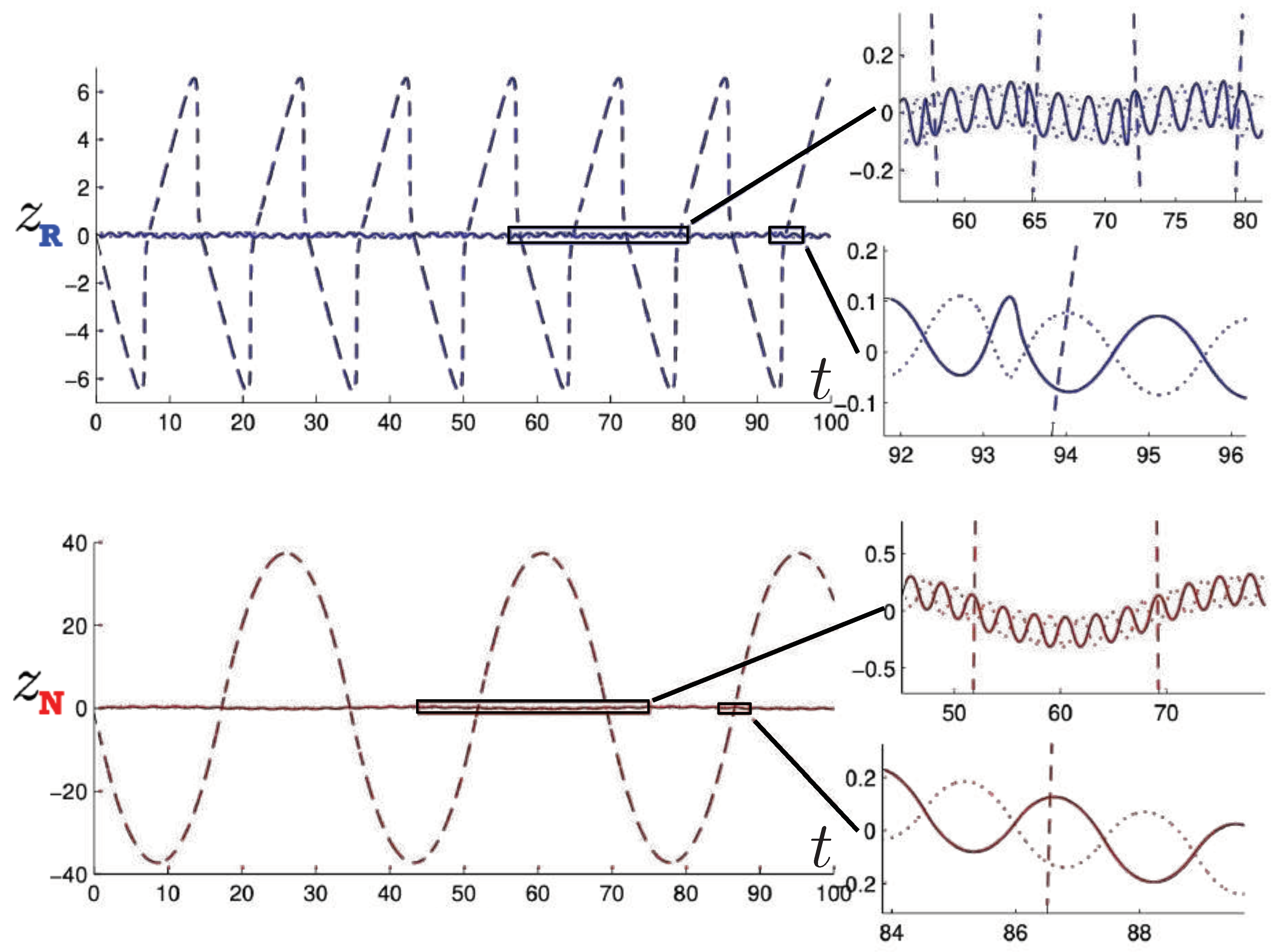
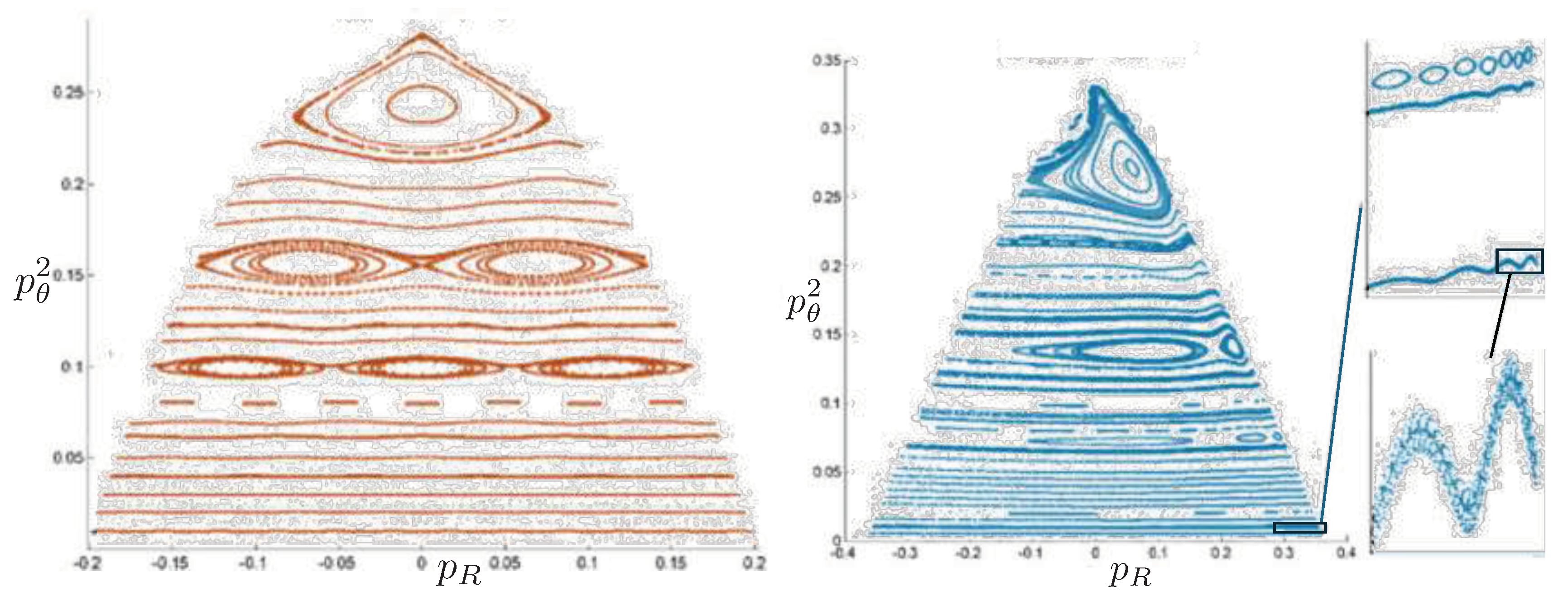
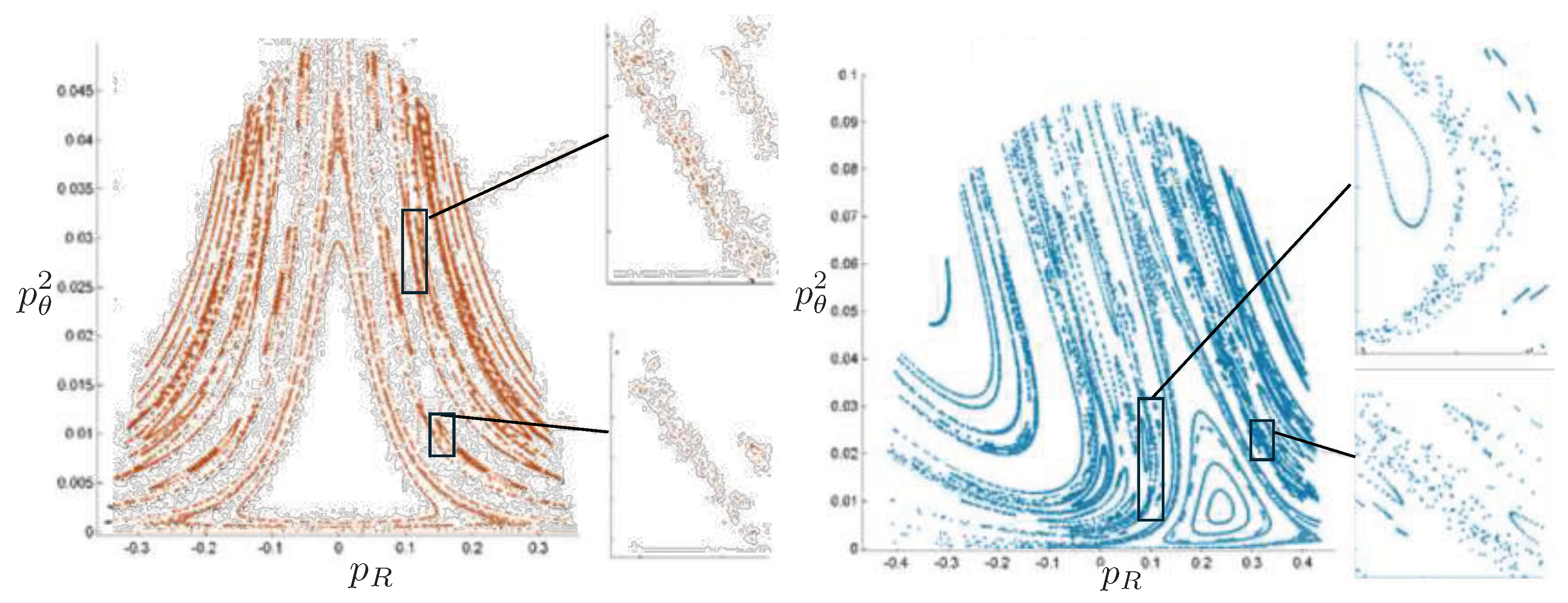
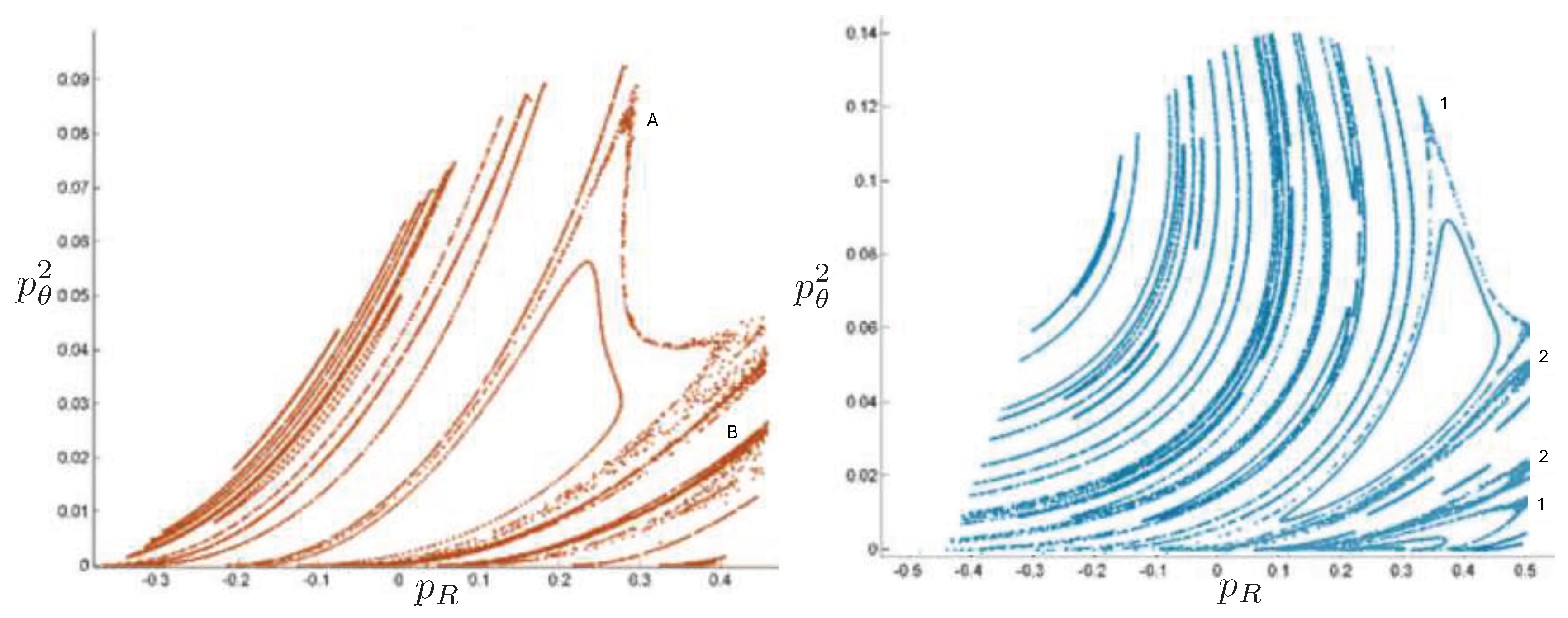
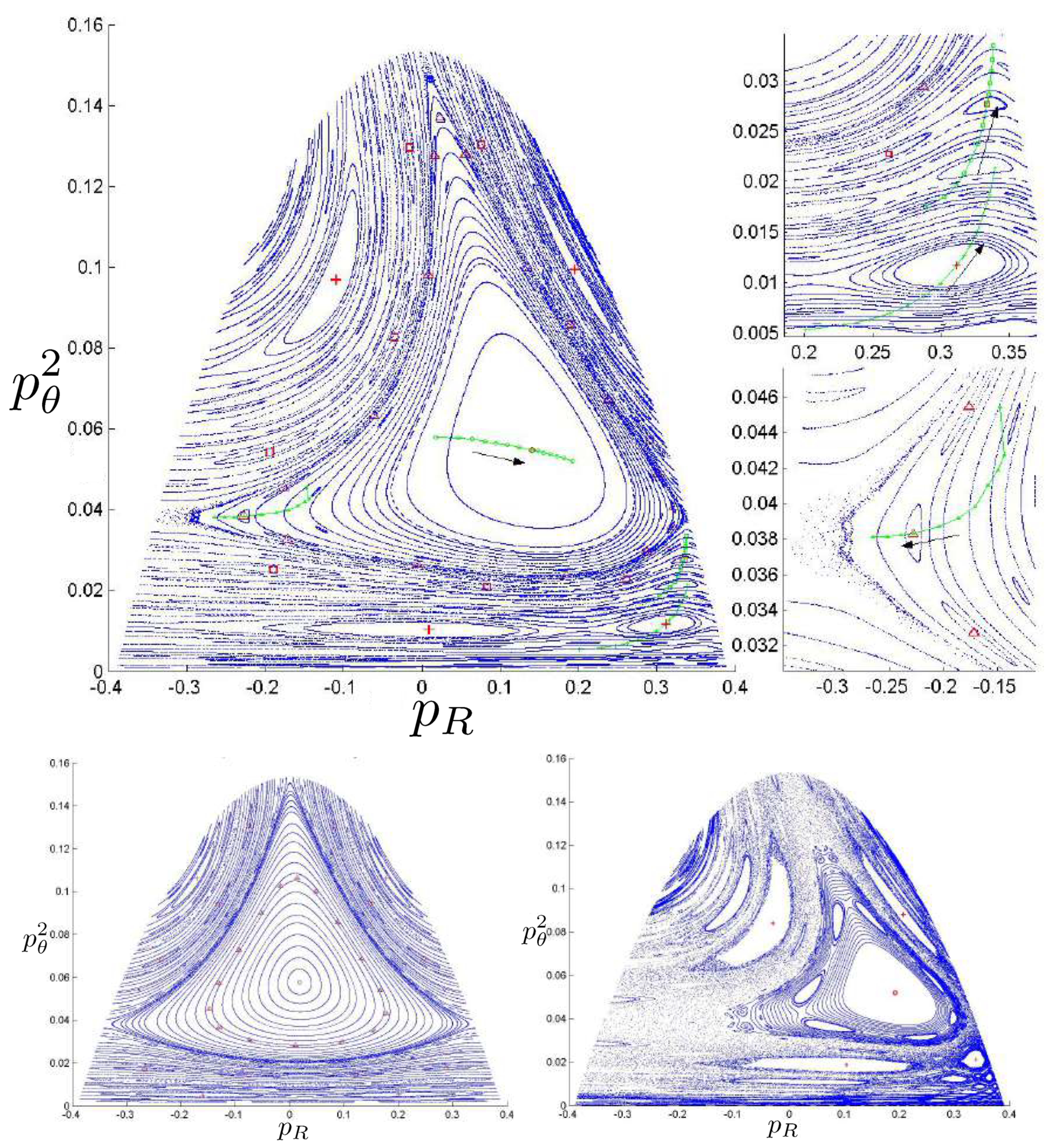
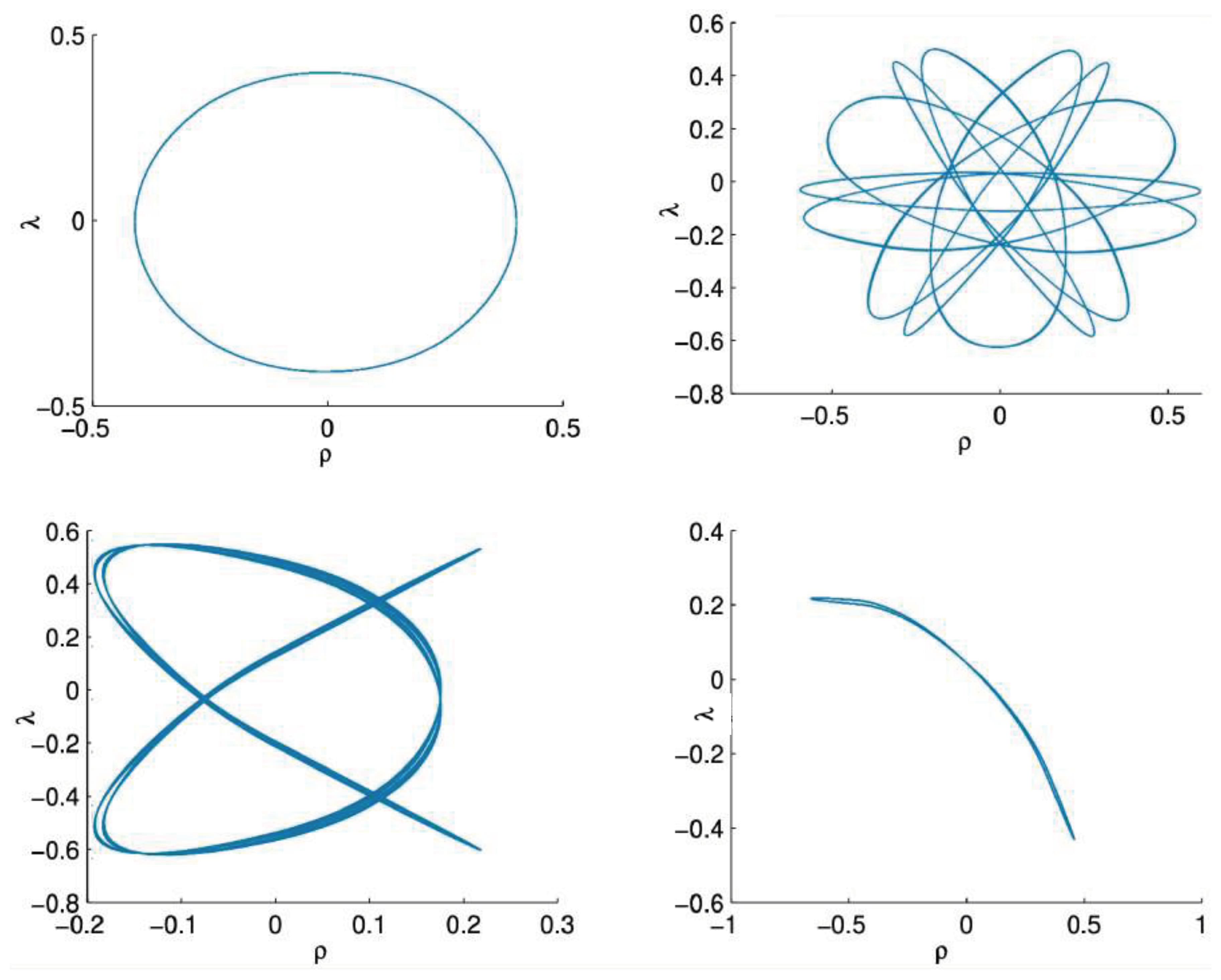
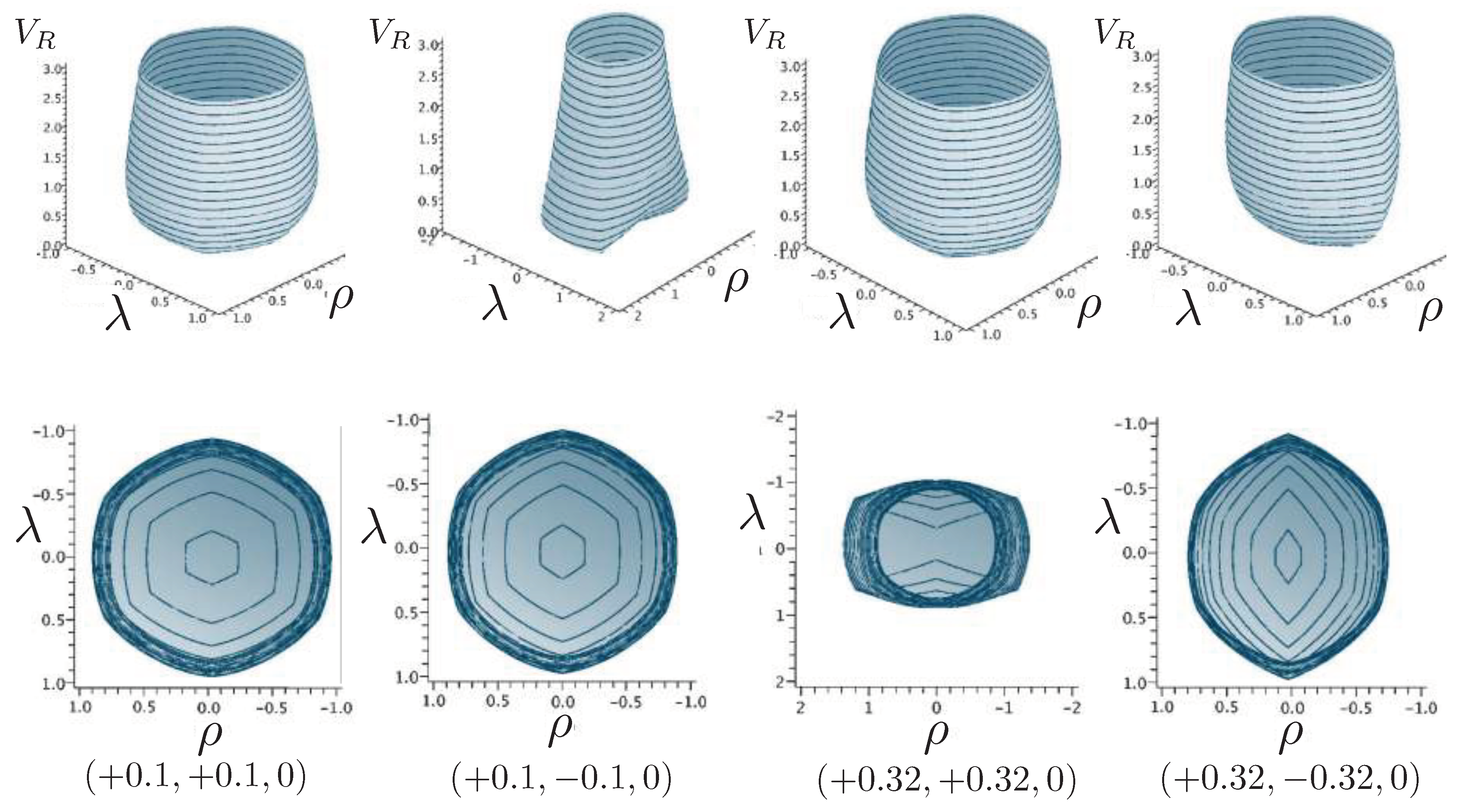
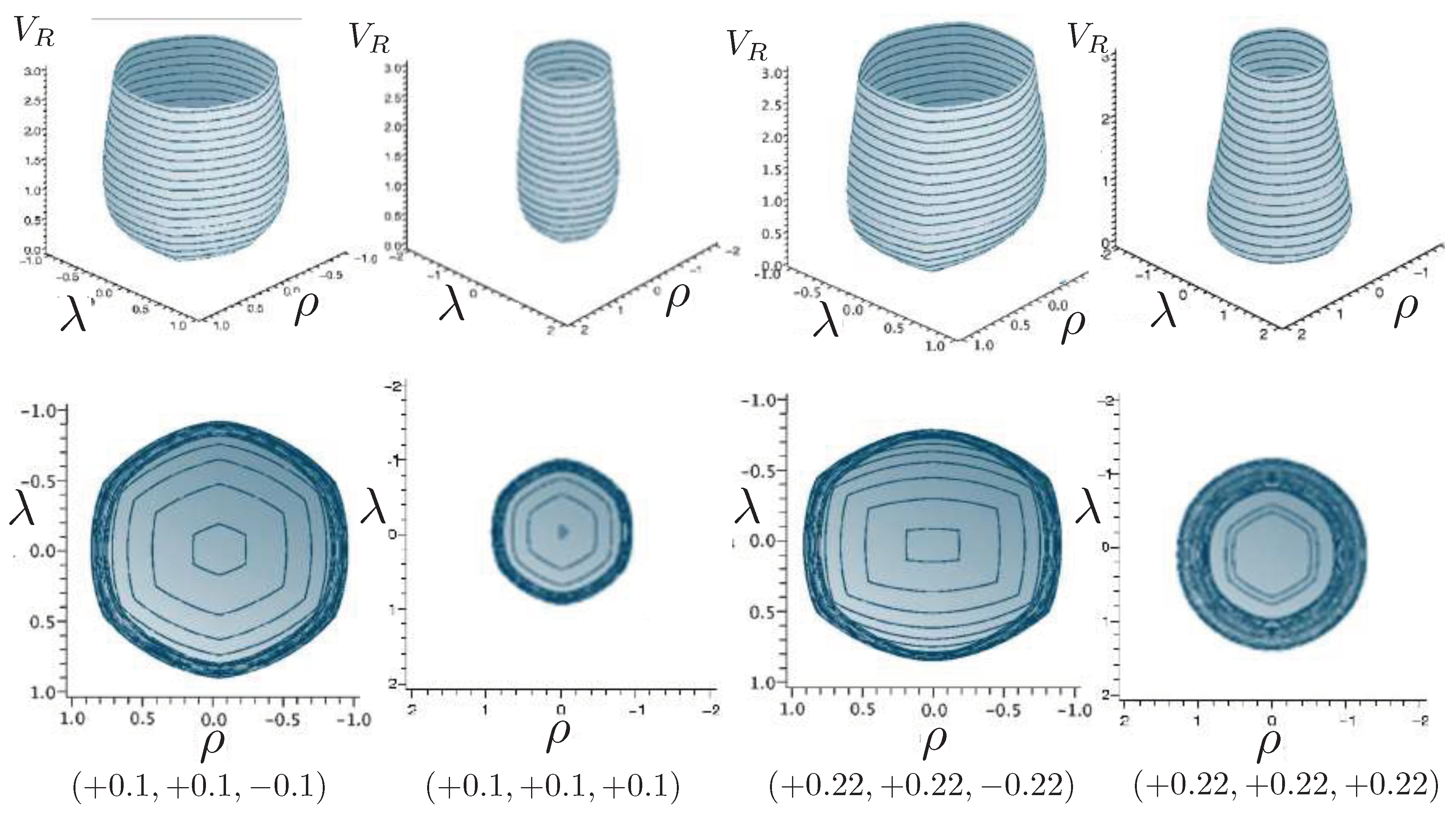
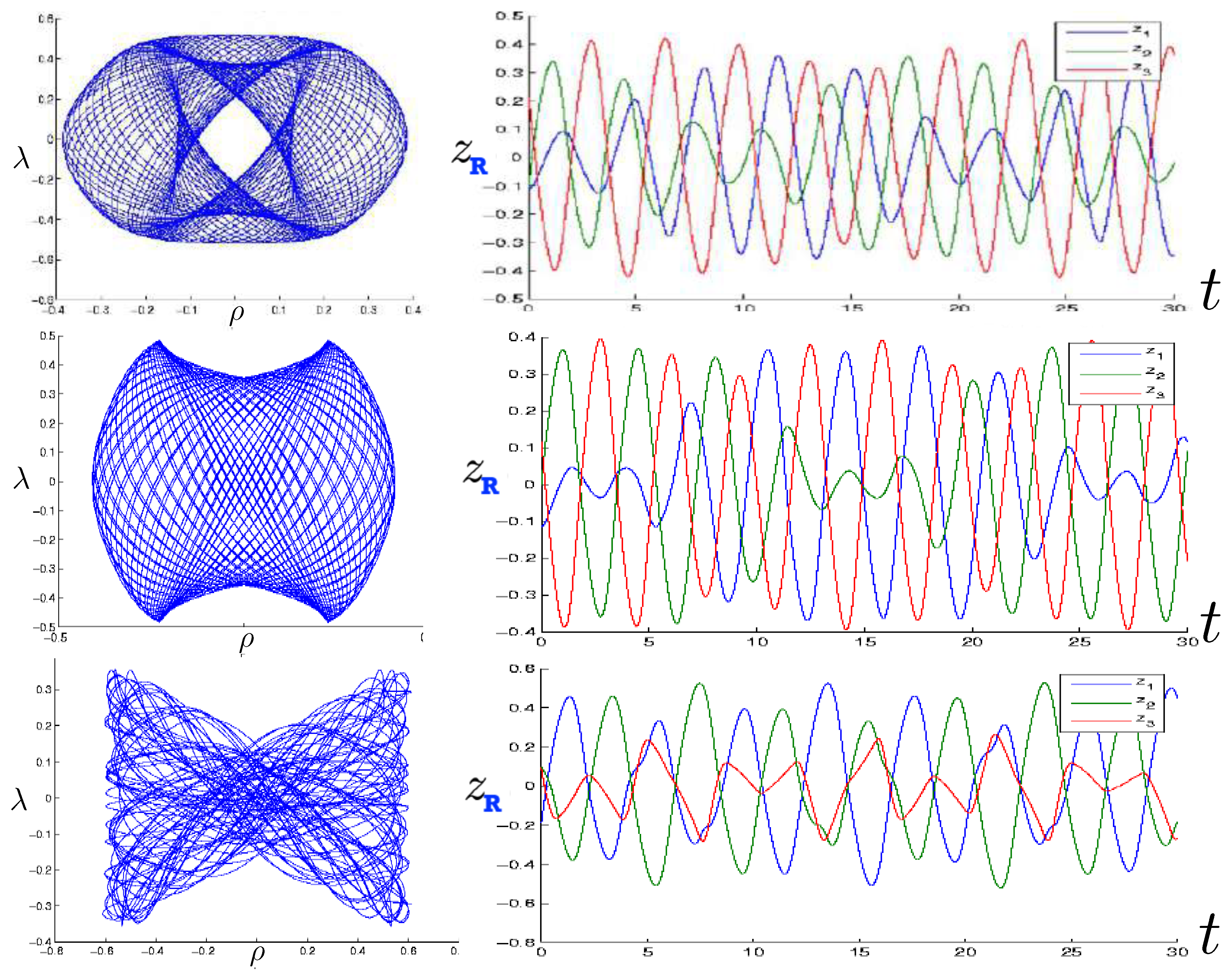
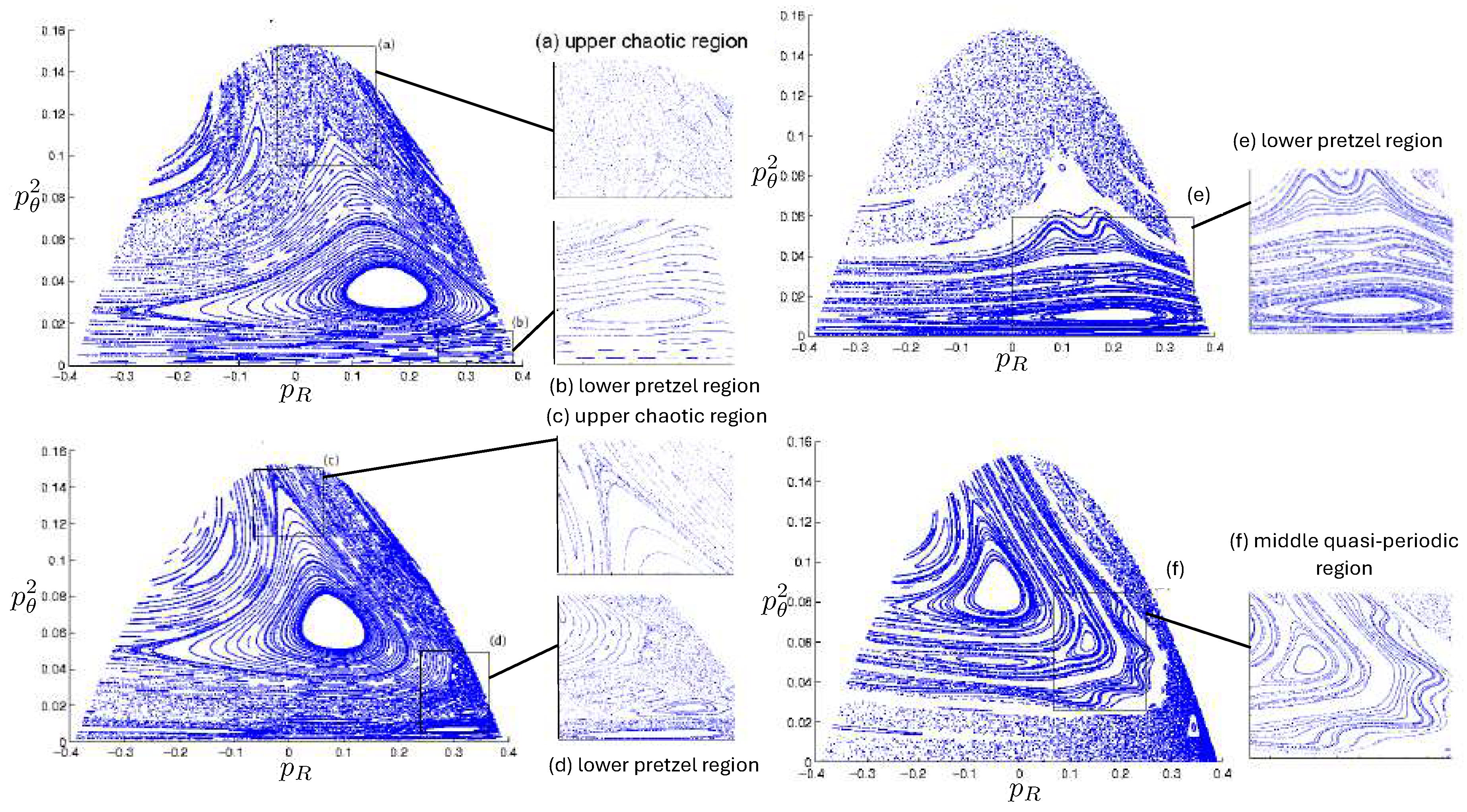
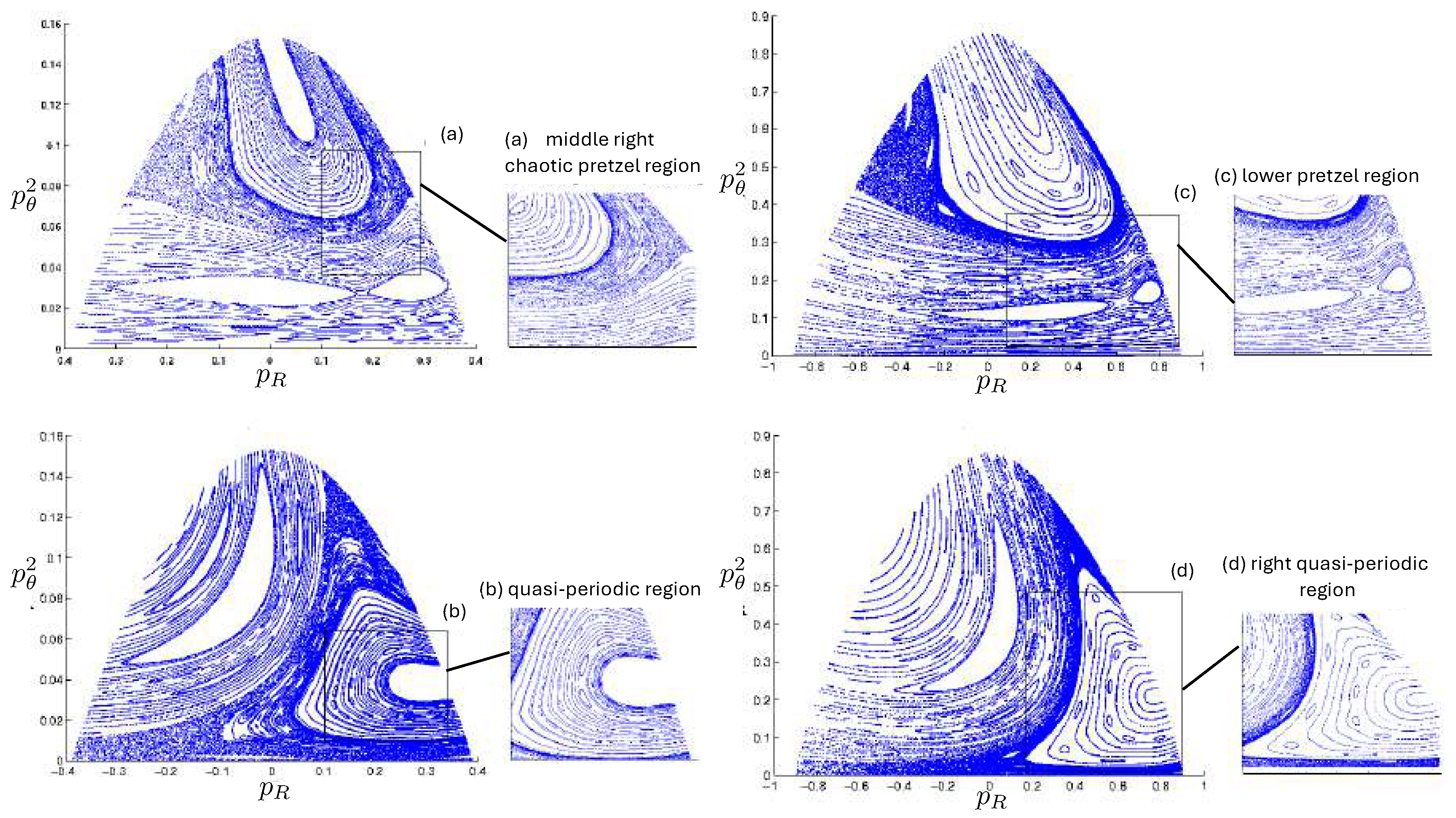
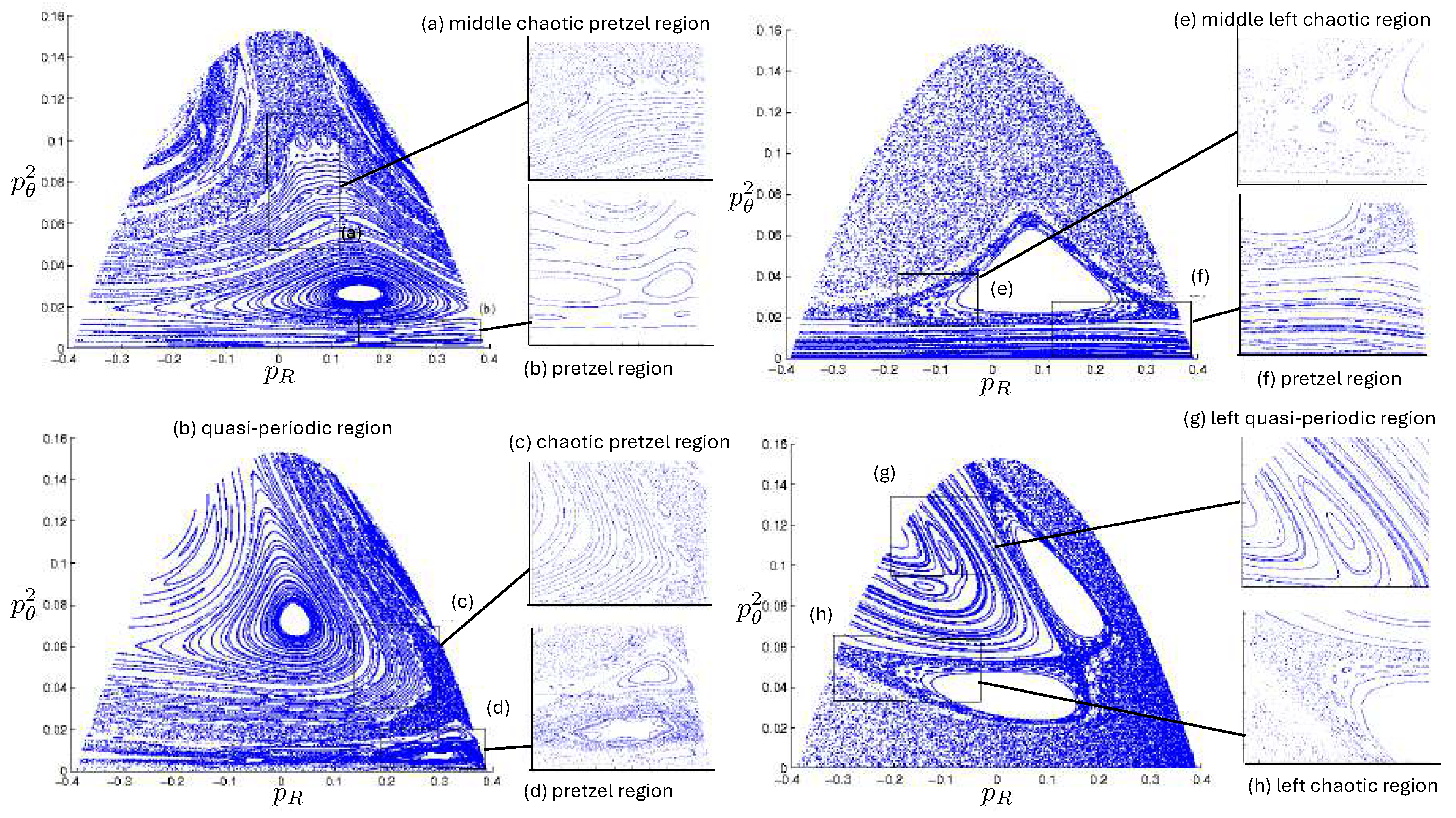
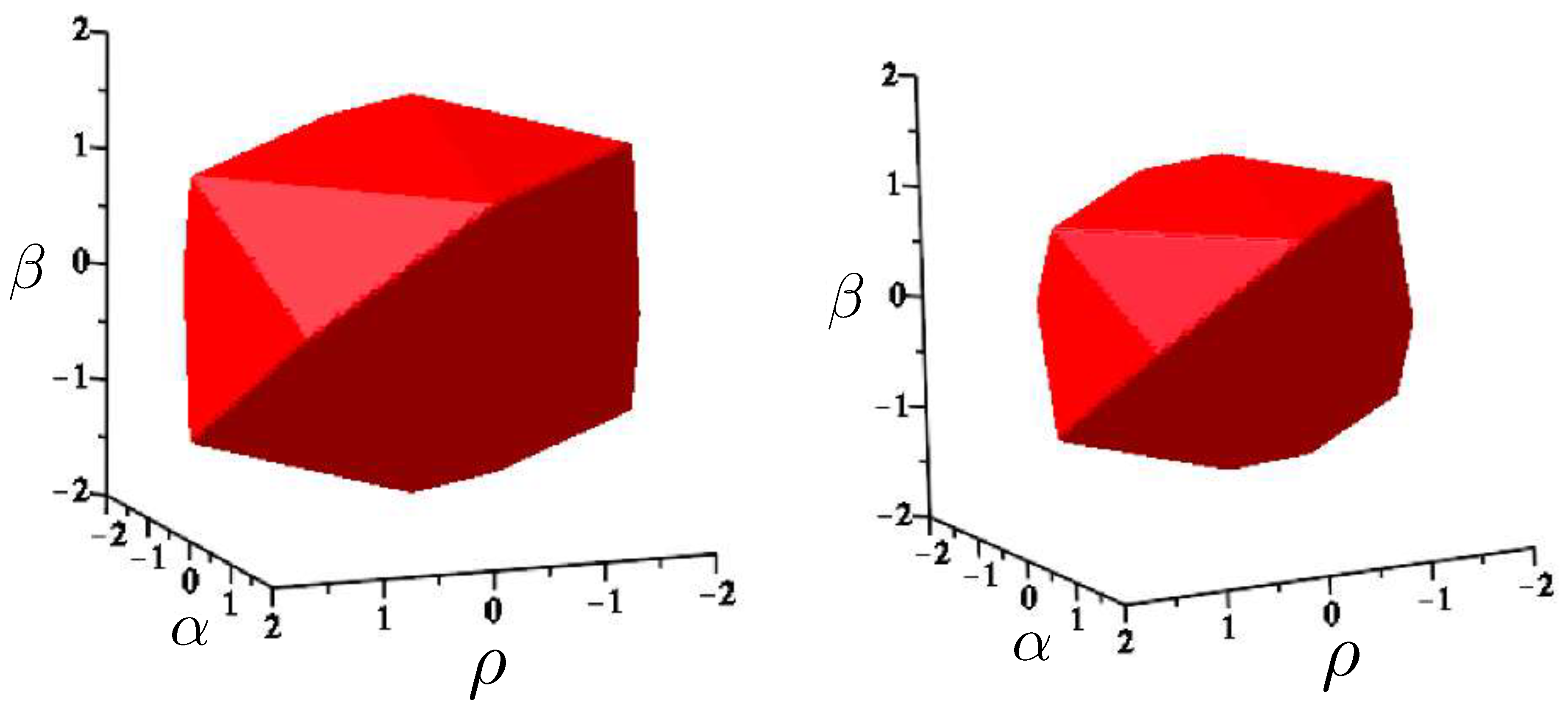
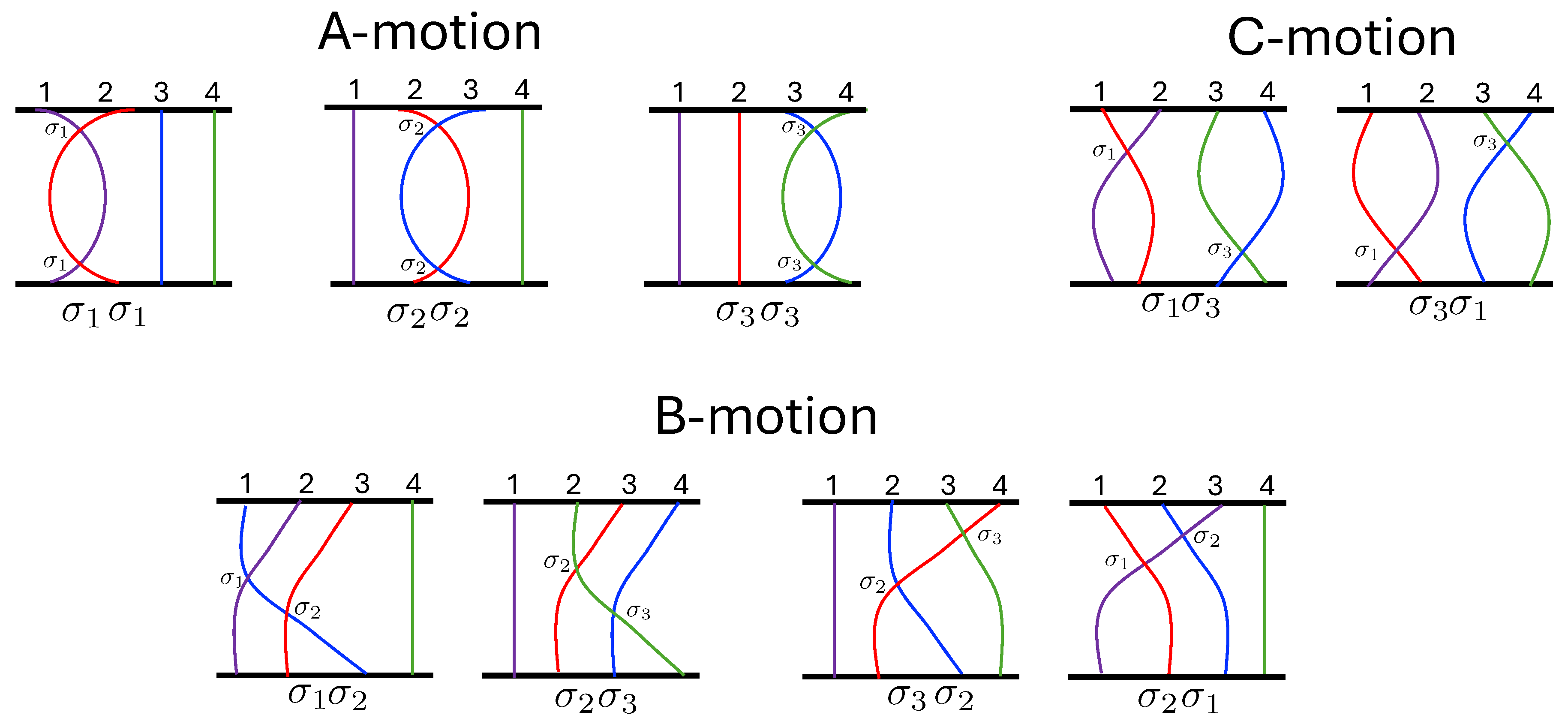
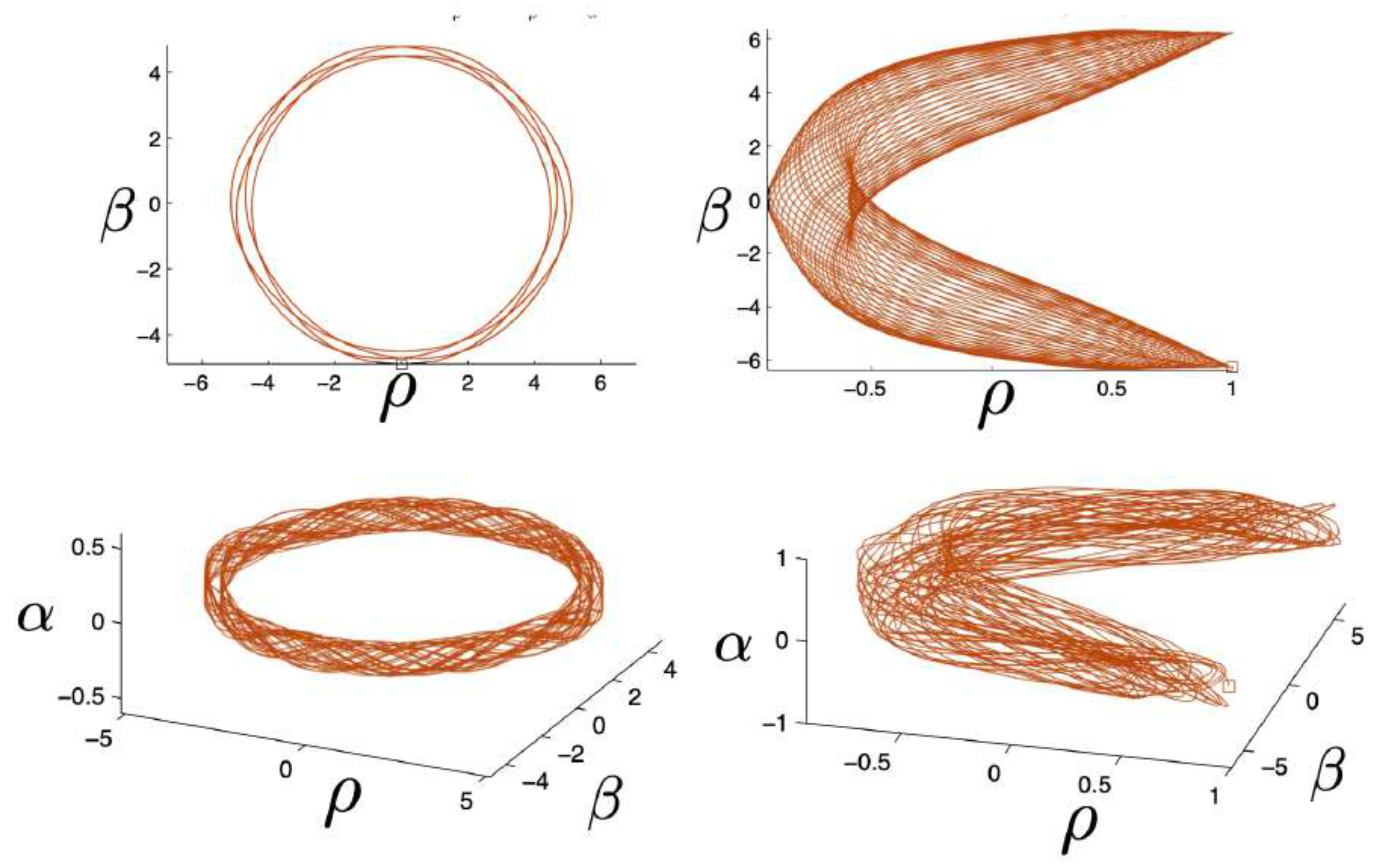
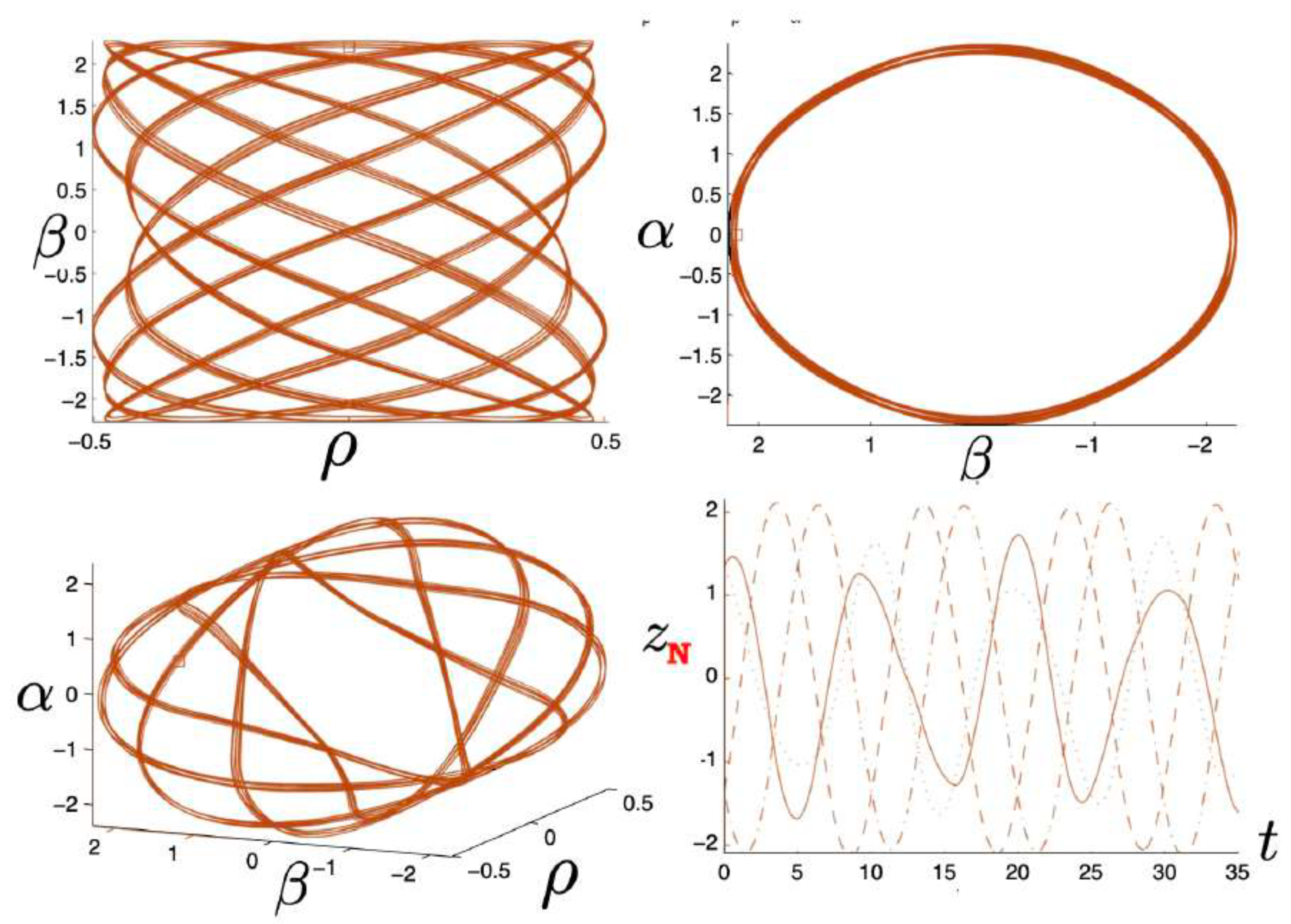
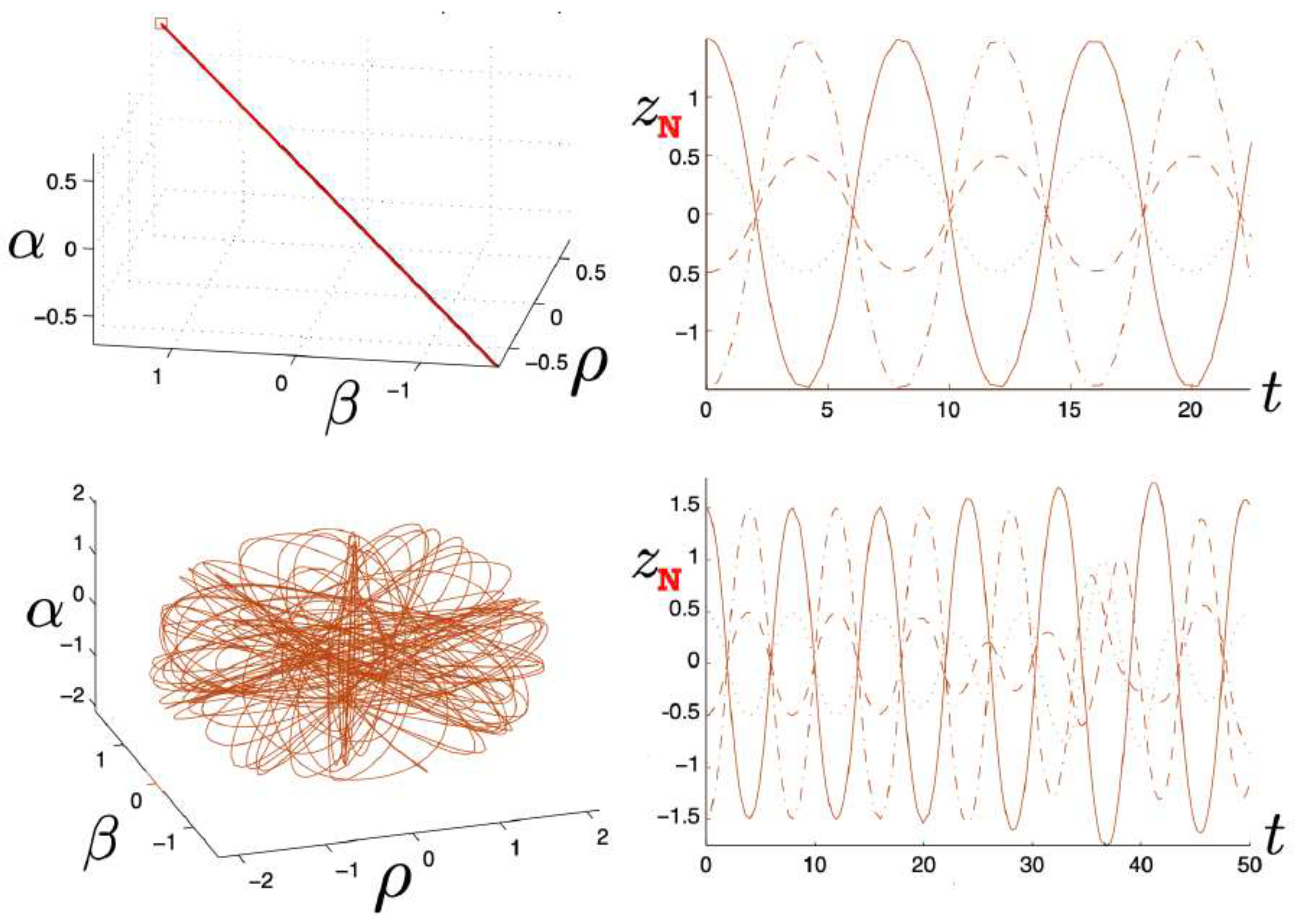
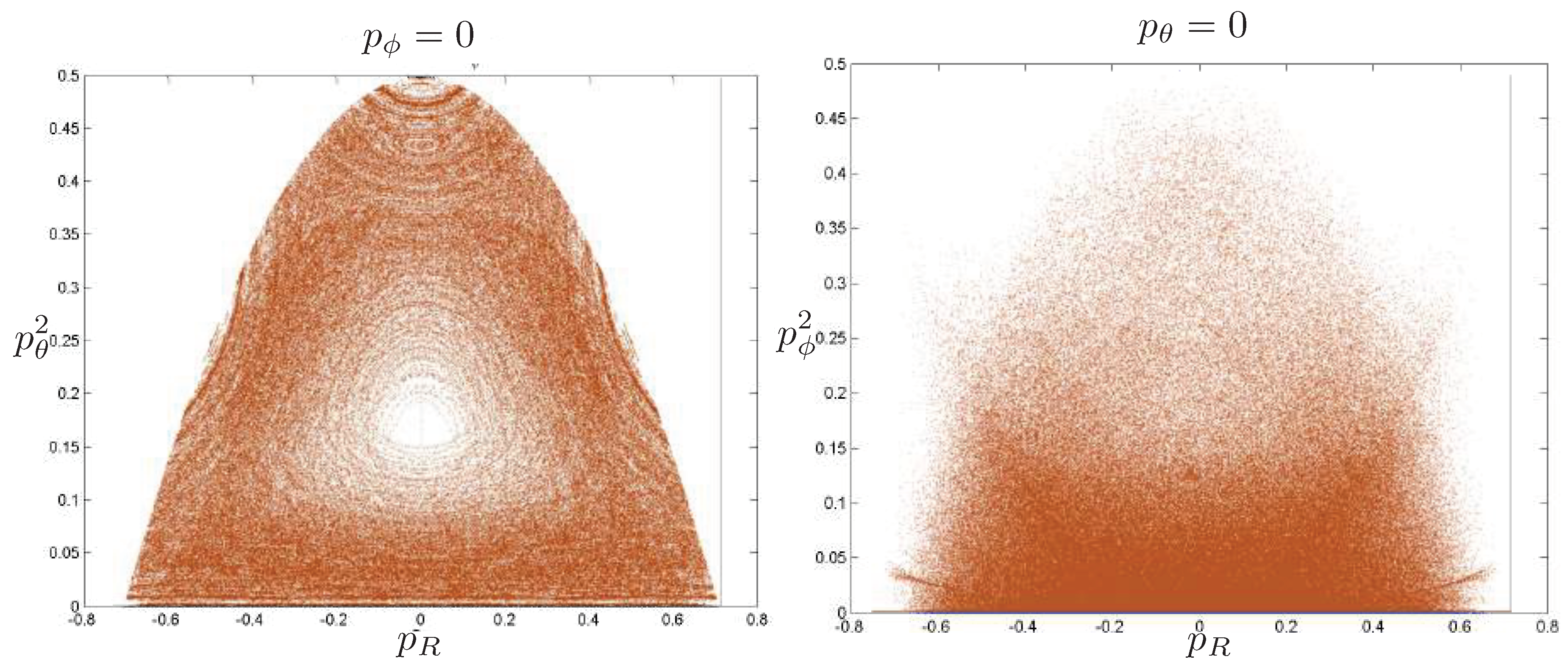
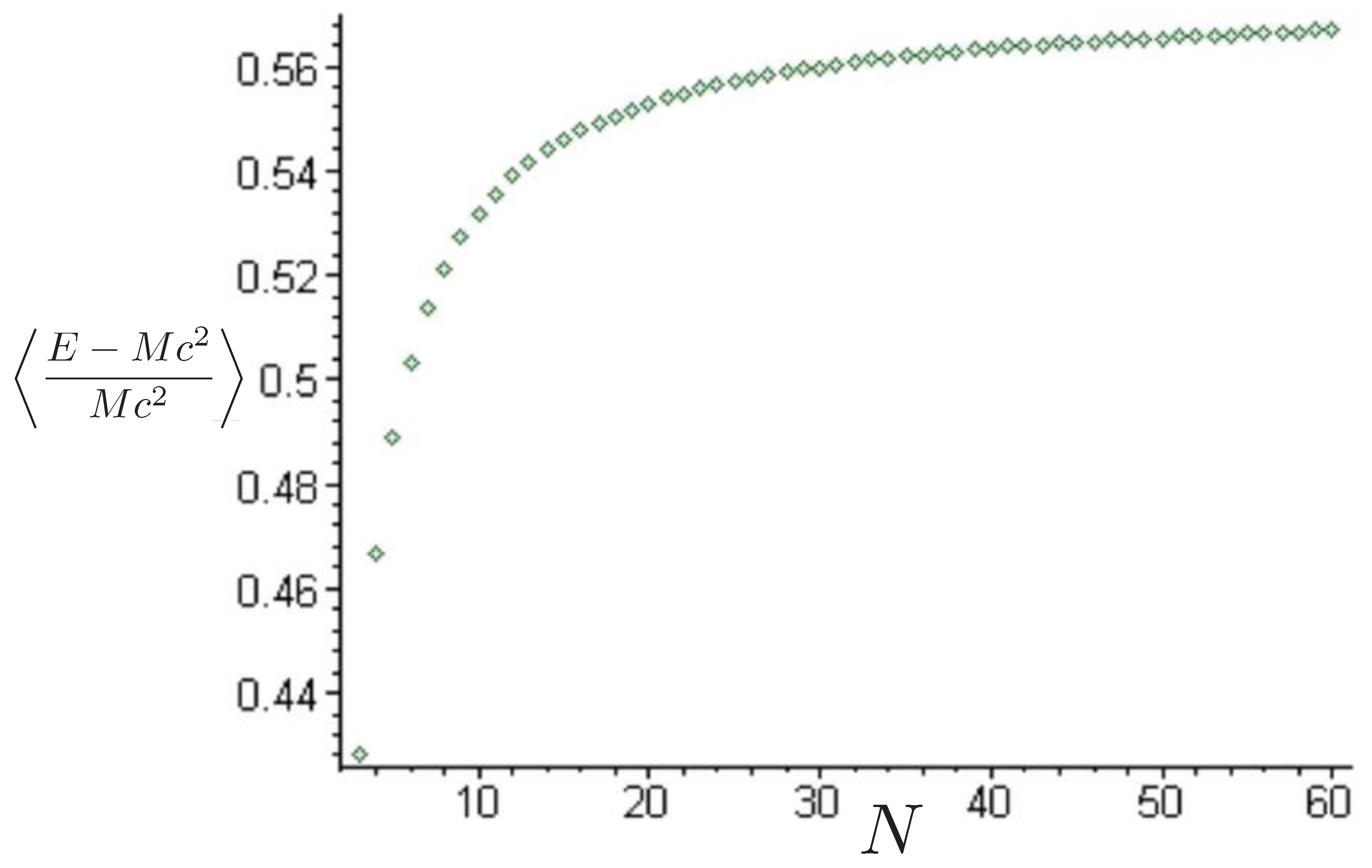
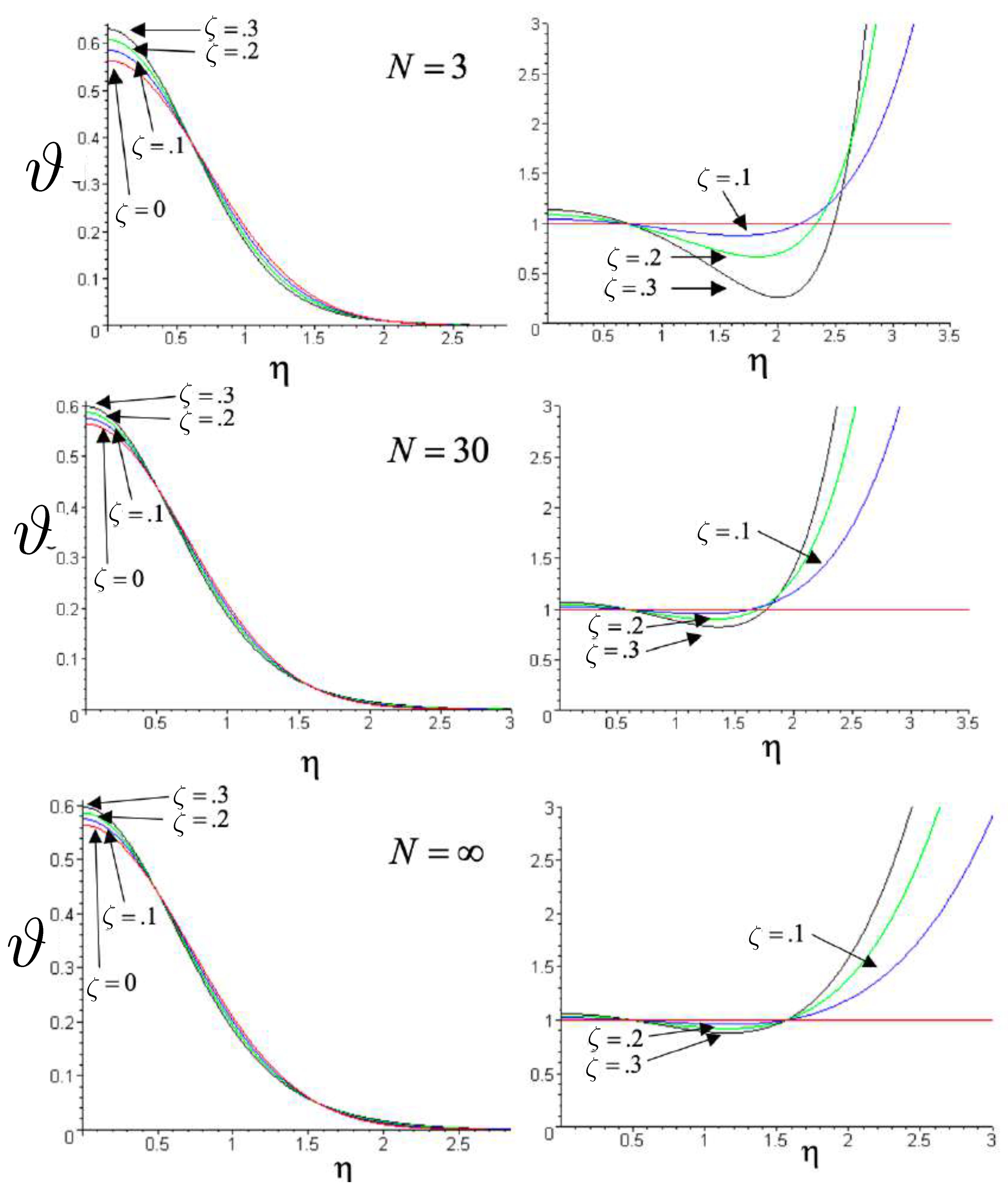
Disclaimer/Publisher’s Note: The statements, opinions and data contained in all publications are solely those of the individual author(s) and contributor(s) and not of MDPI and/or the editor(s). MDPI and/or the editor(s) disclaim responsibility for any injury to people or property resulting from any ideas, methods, instructions or products referred to in the content. |
© 2024 by the authors. Licensee MDPI, Basel, Switzerland. This article is an open access article distributed under the terms and conditions of the Creative Commons Attribution (CC BY) license (http://creativecommons.org/licenses/by/4.0/).




